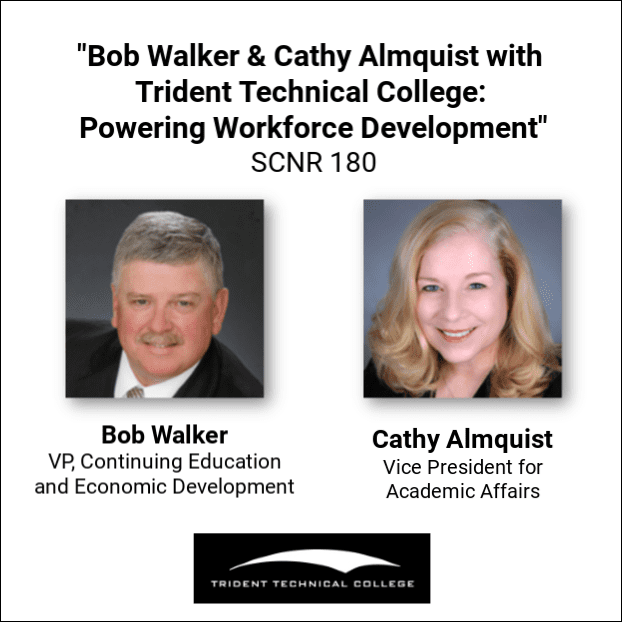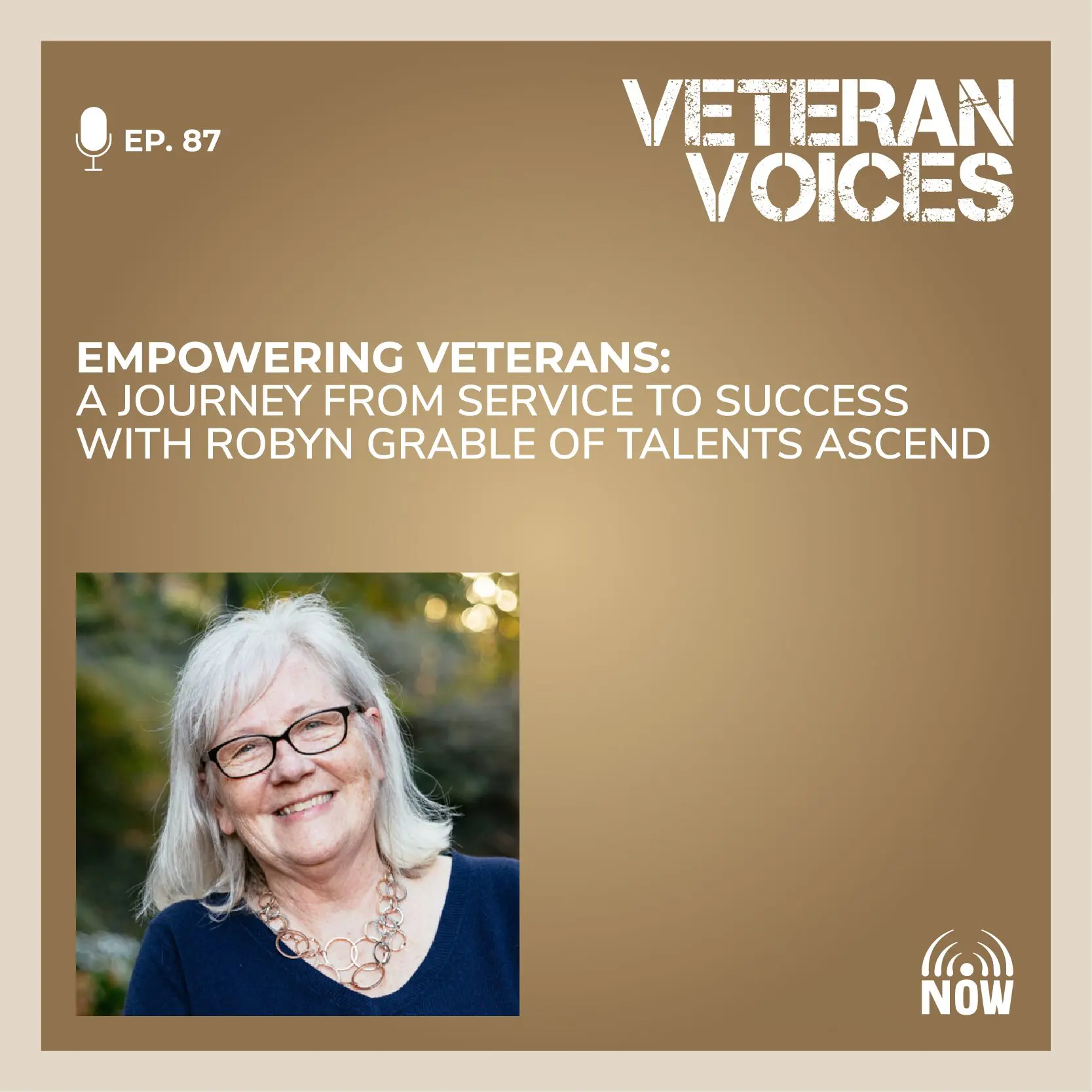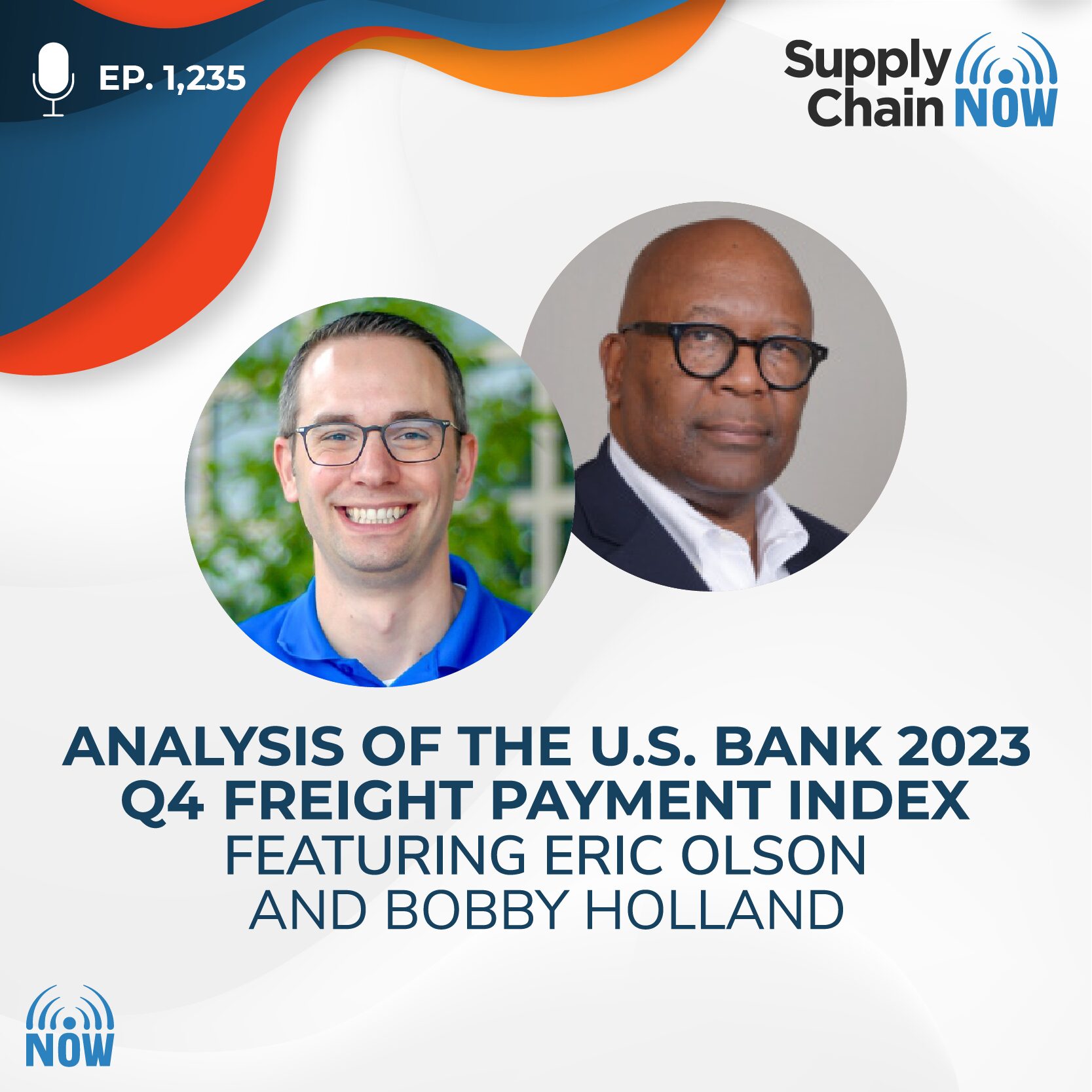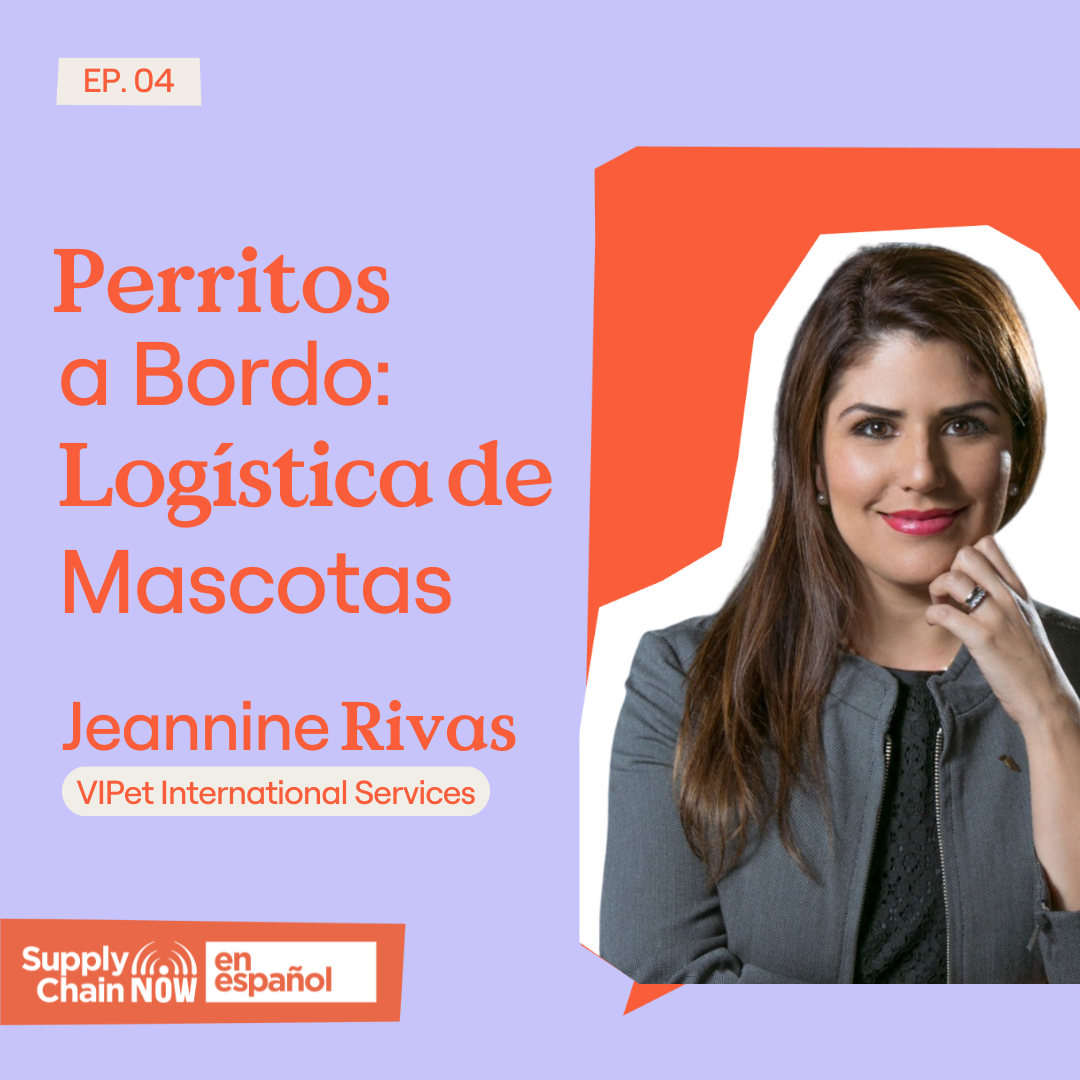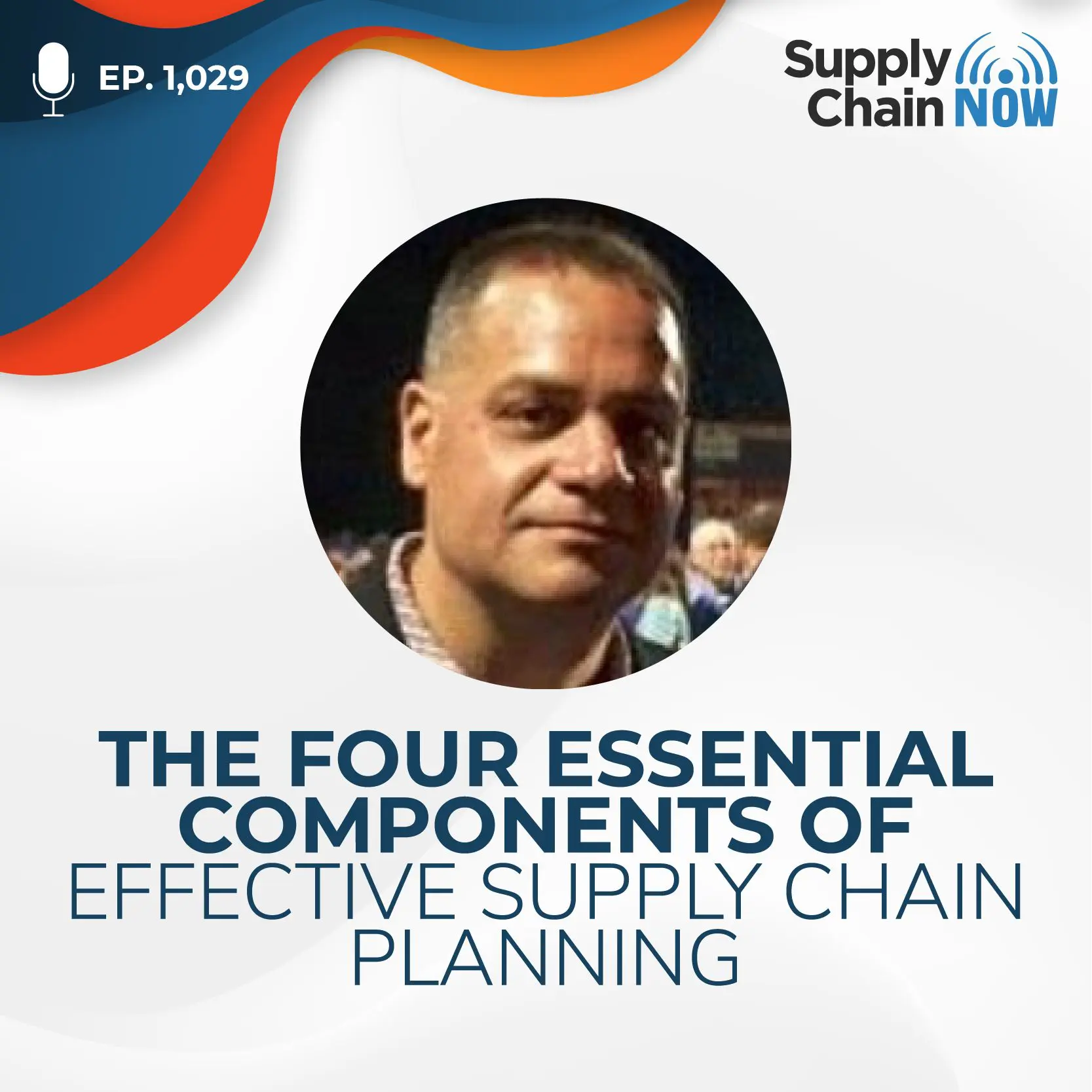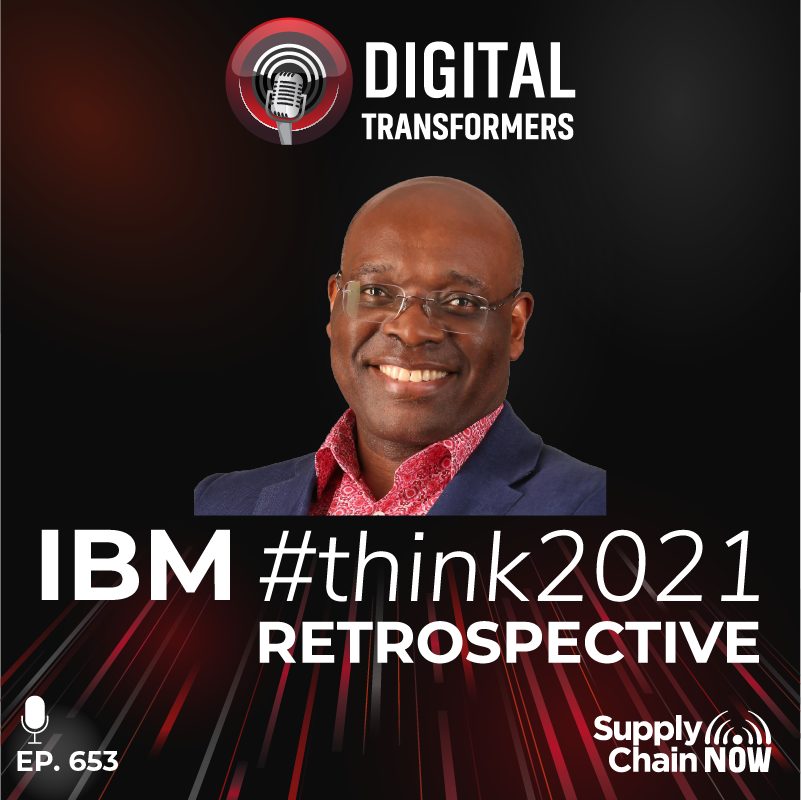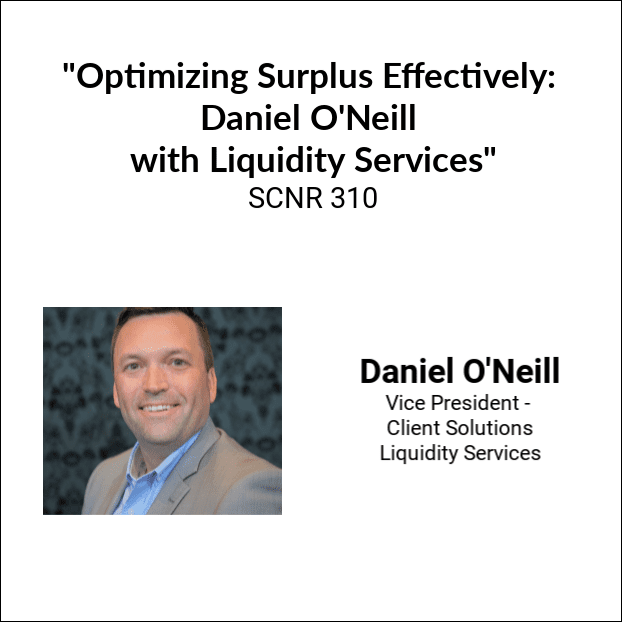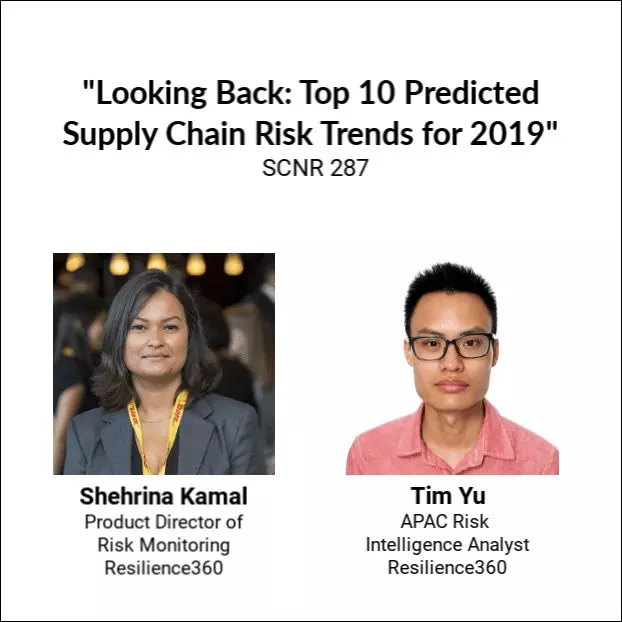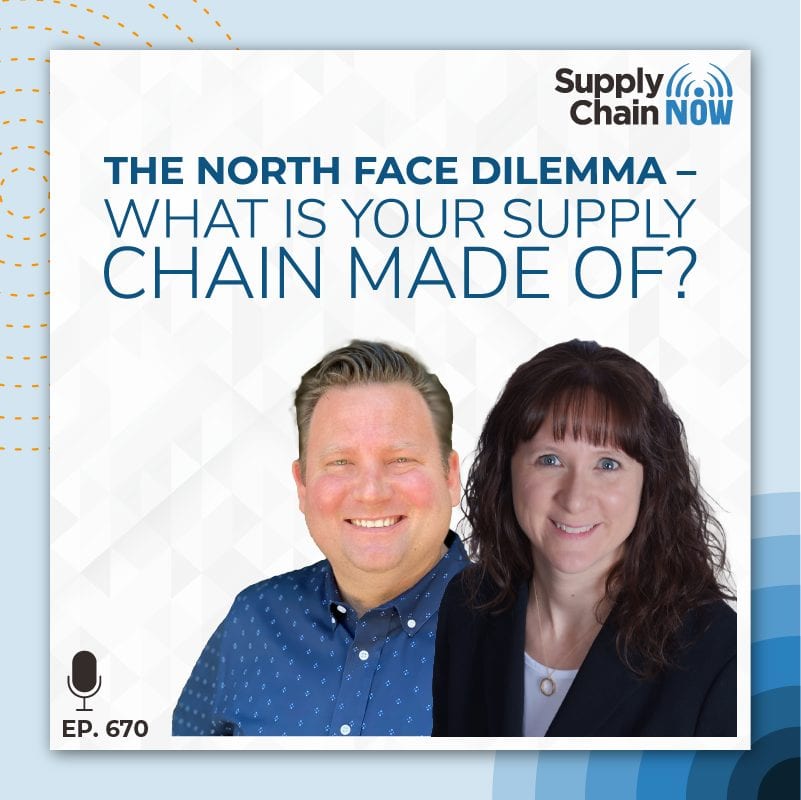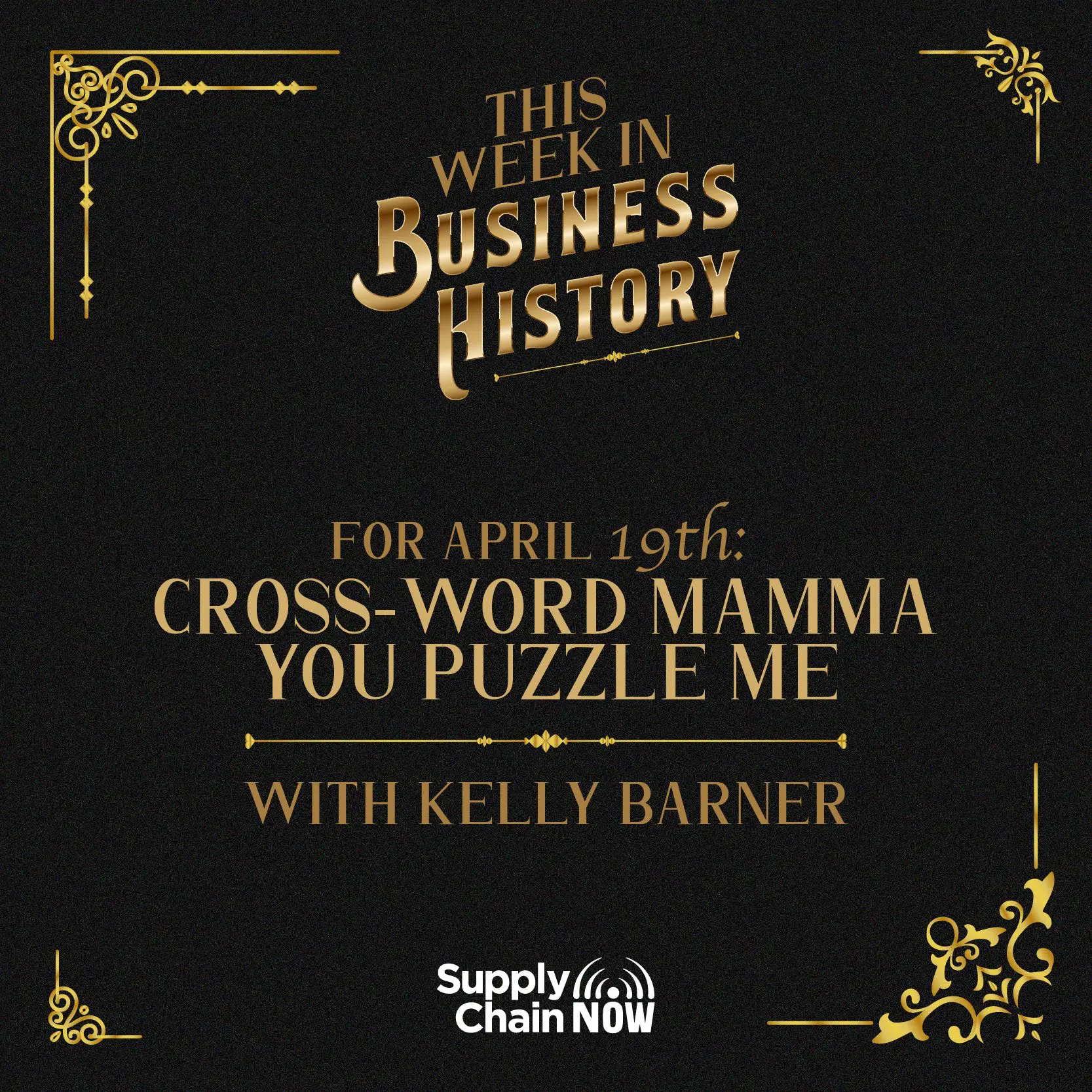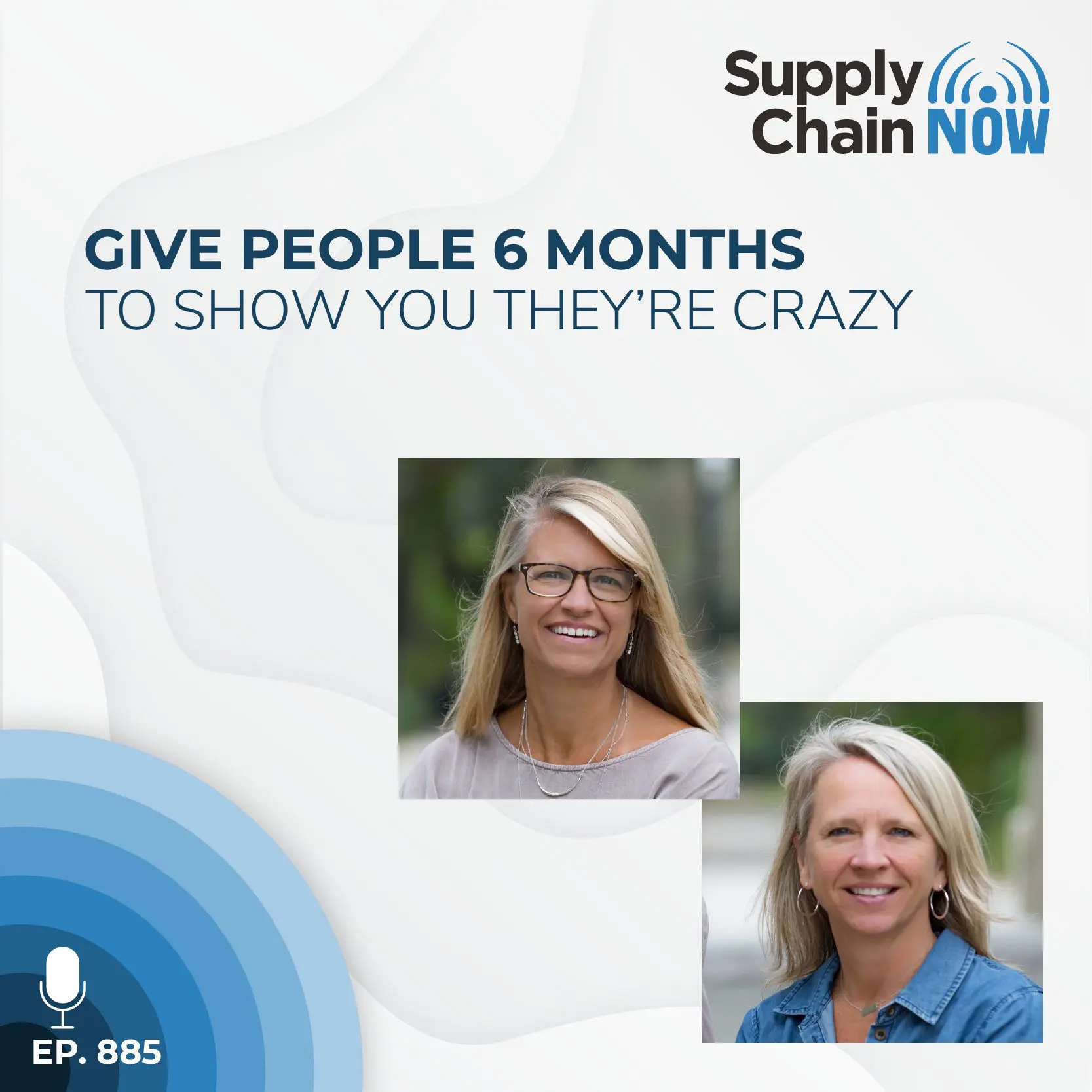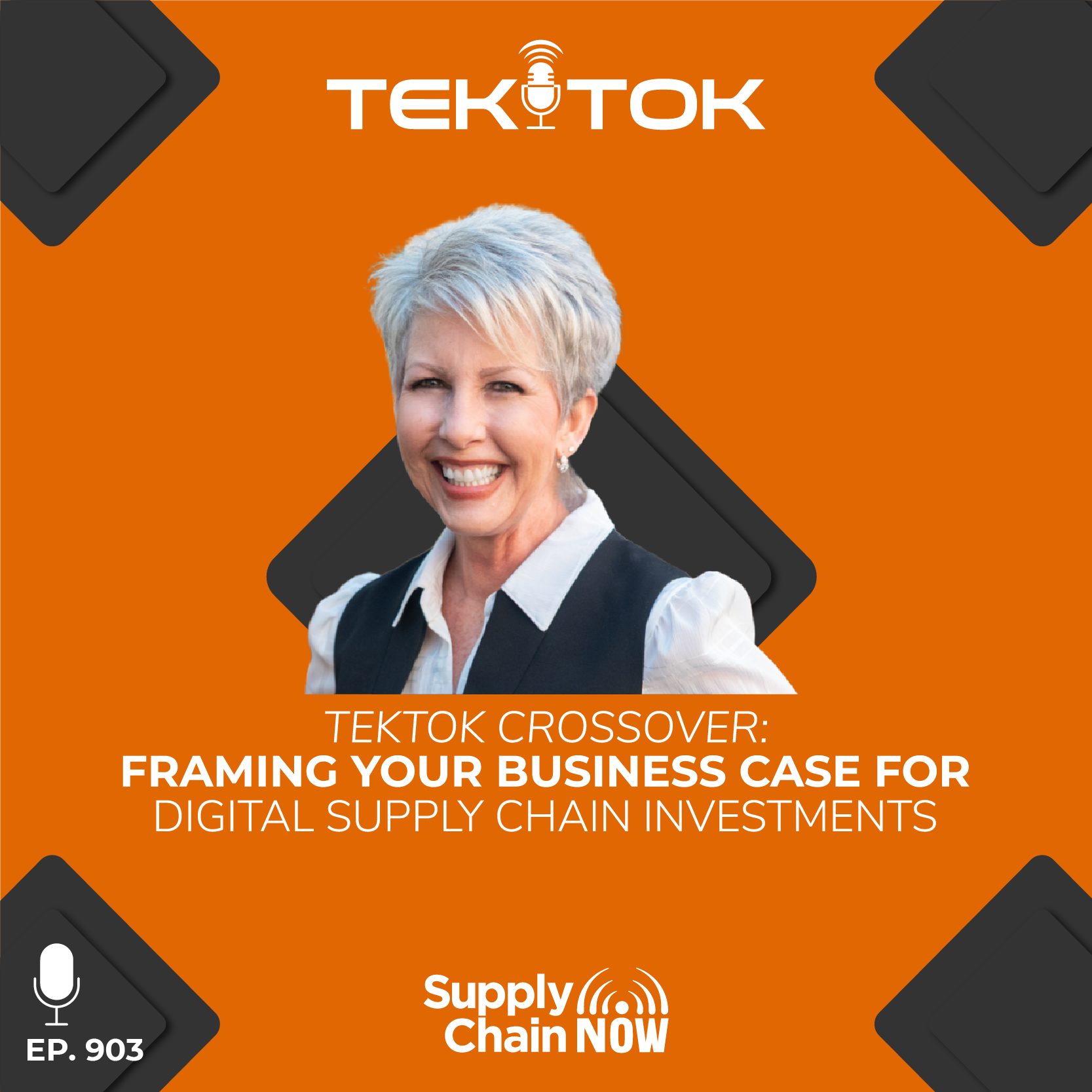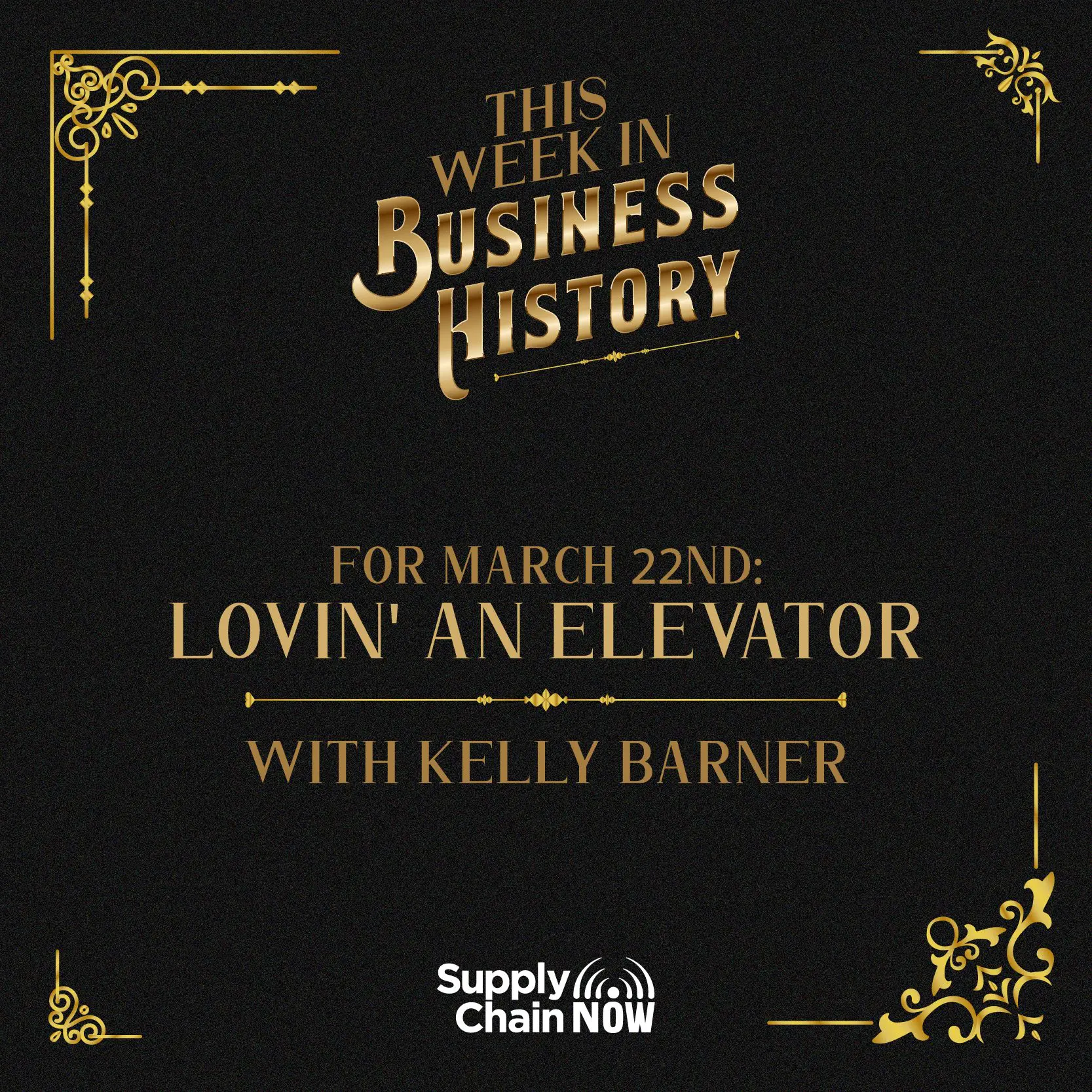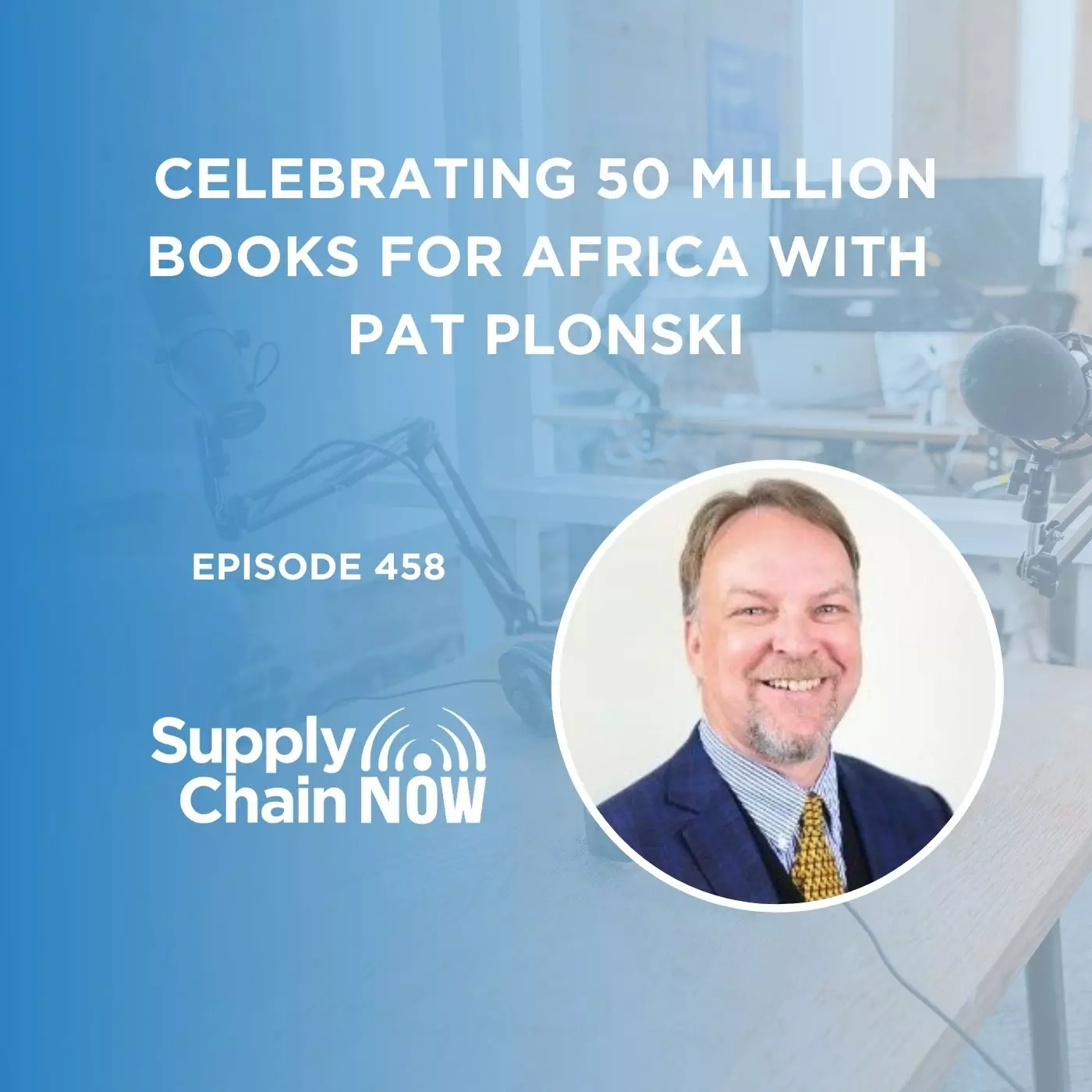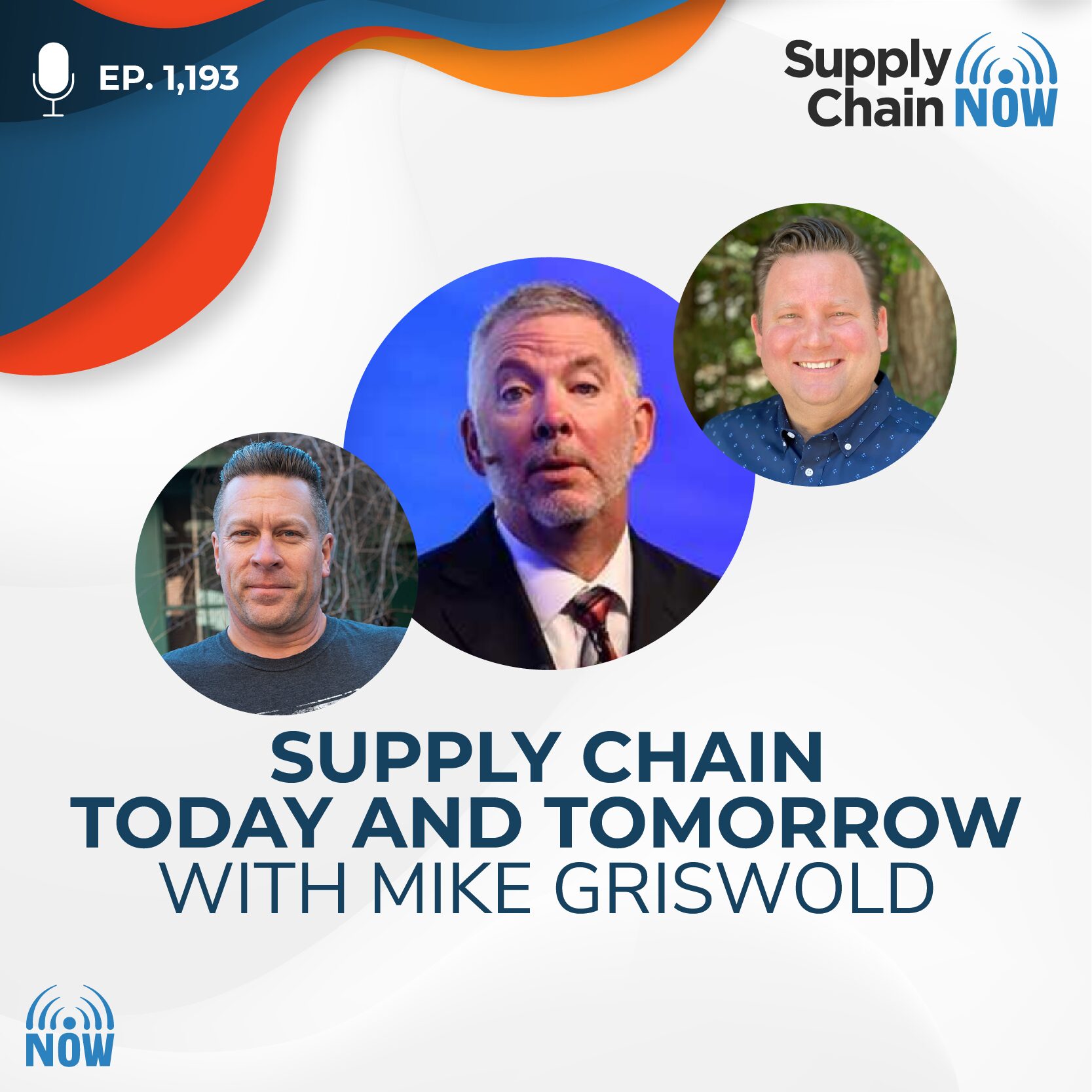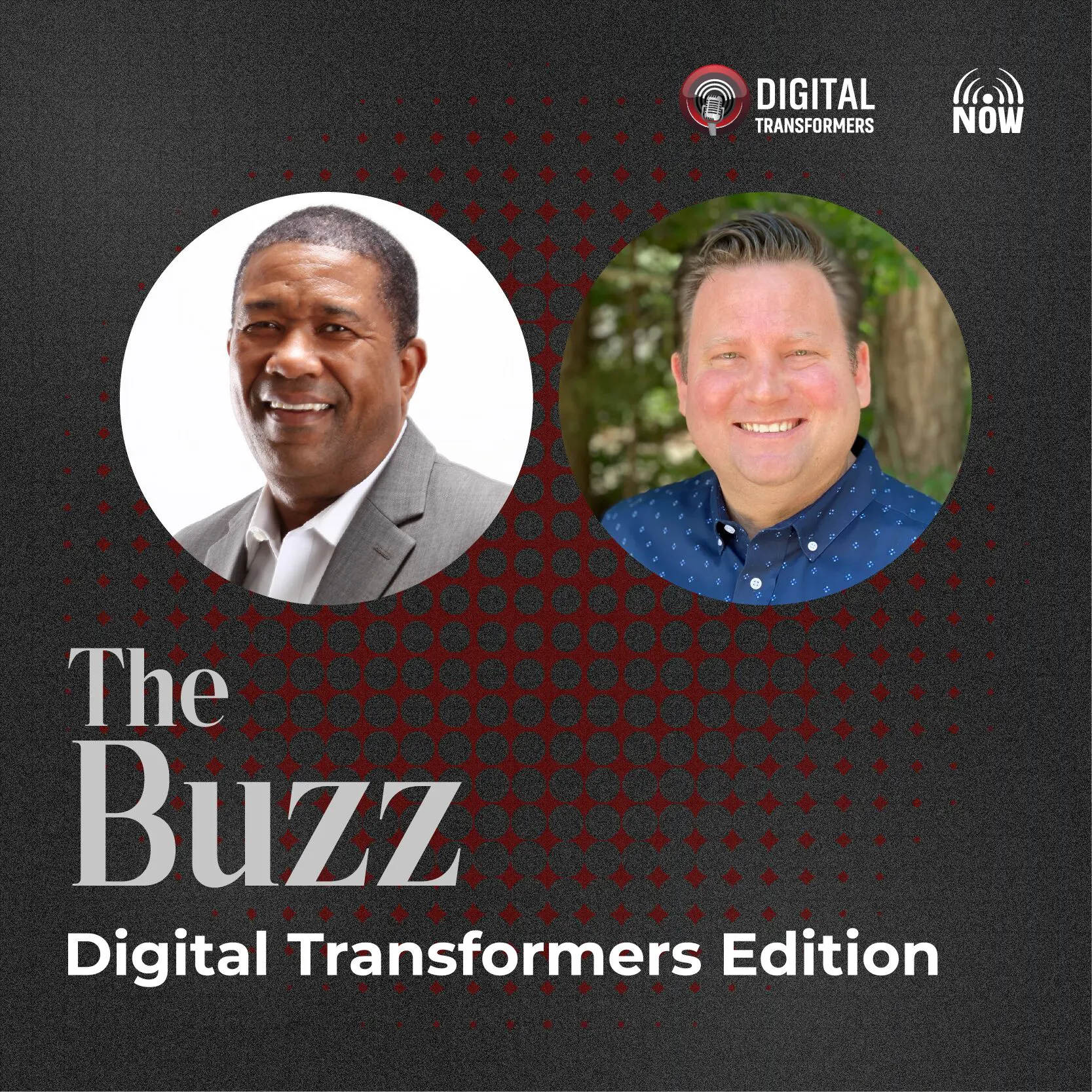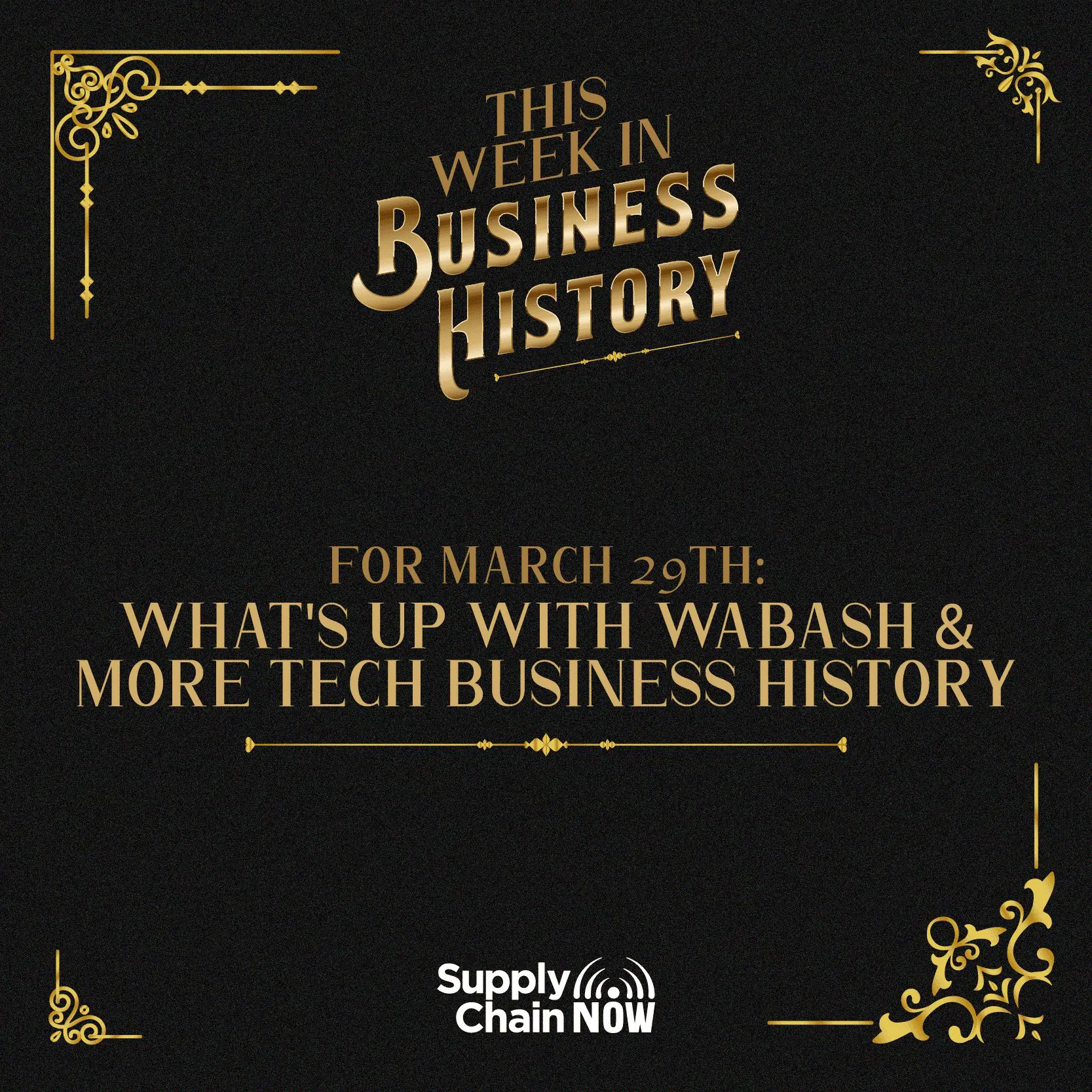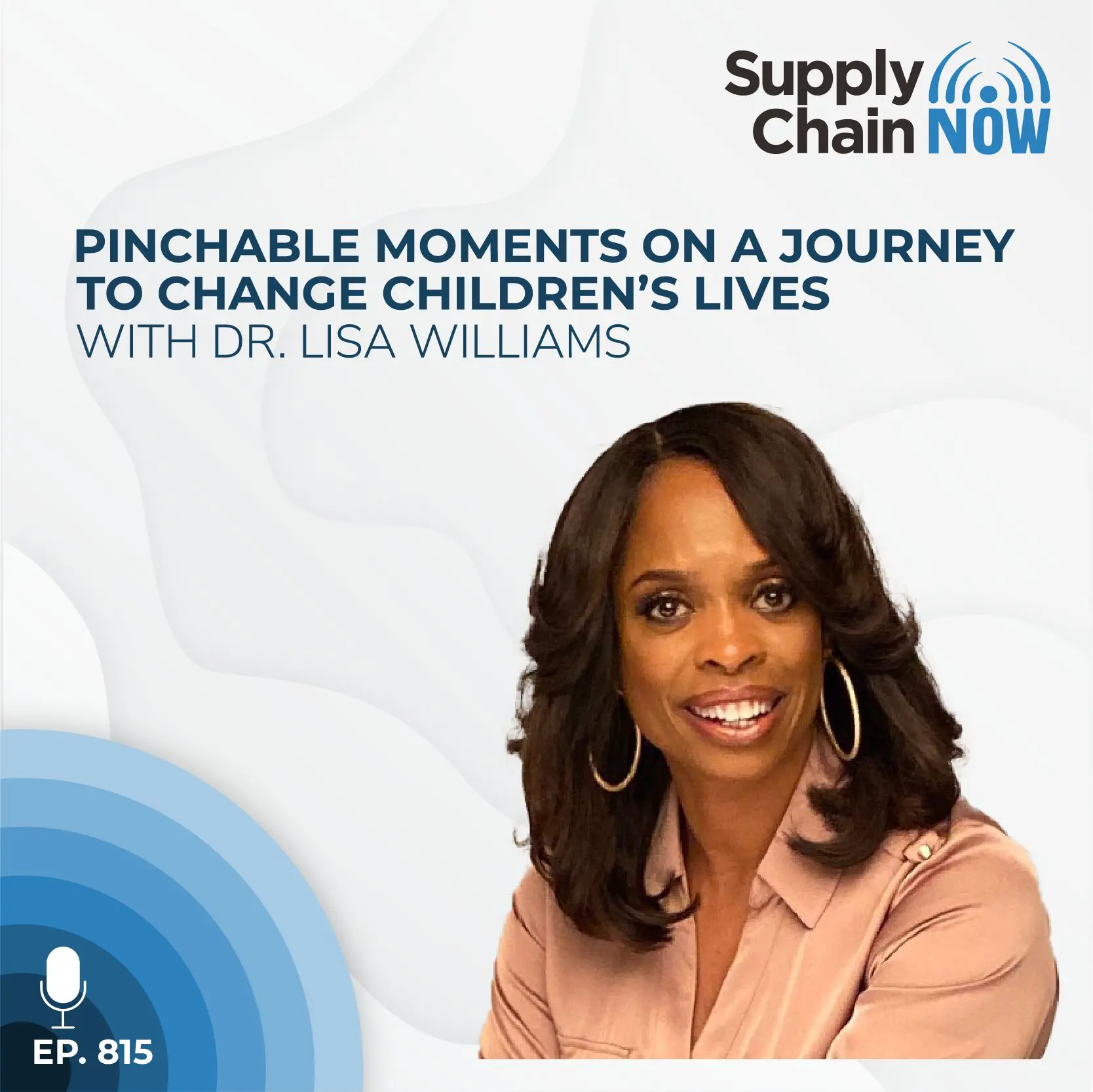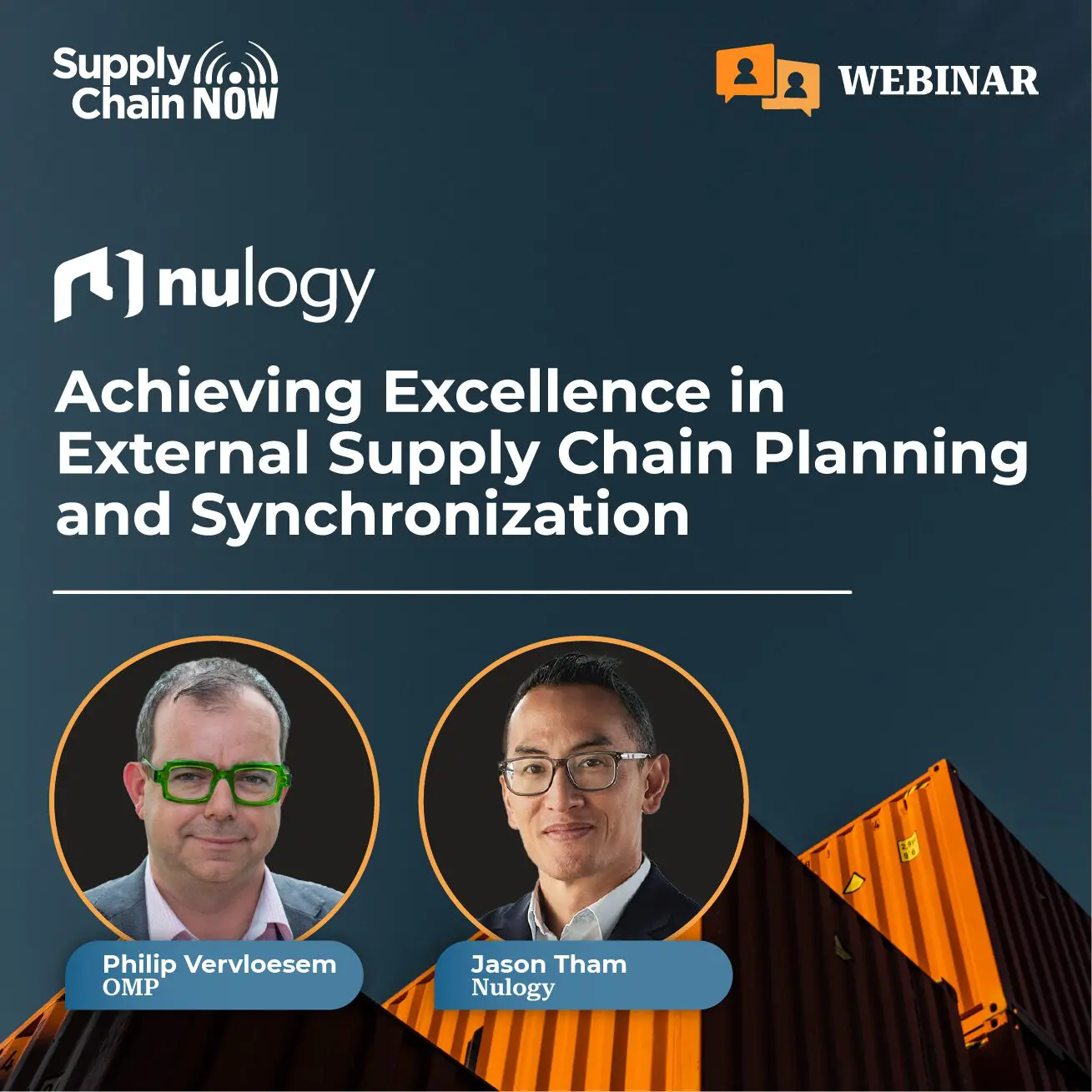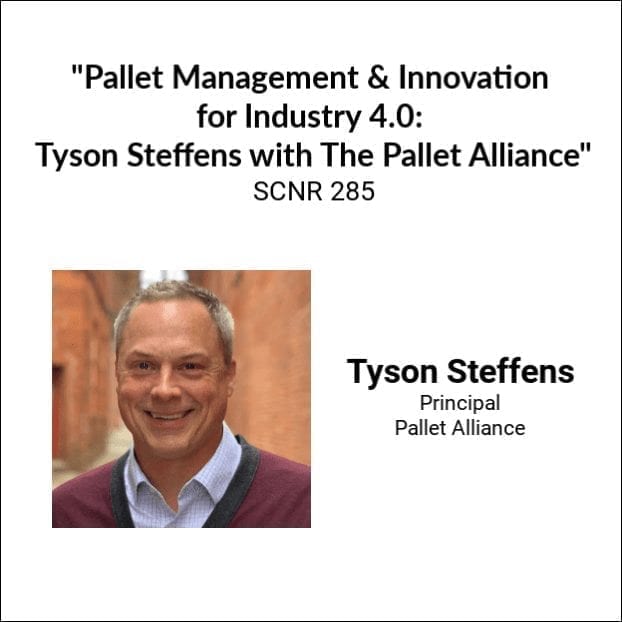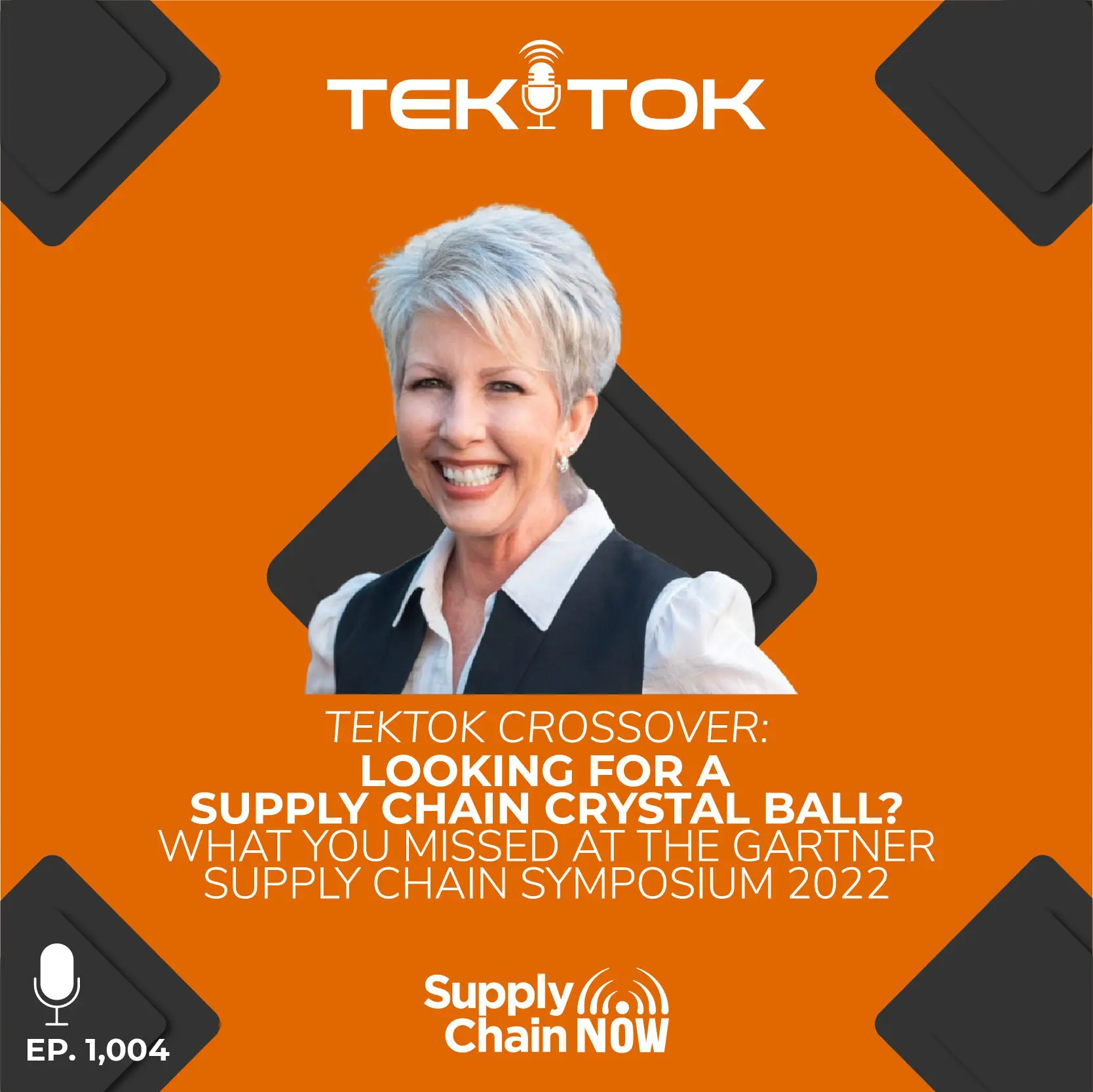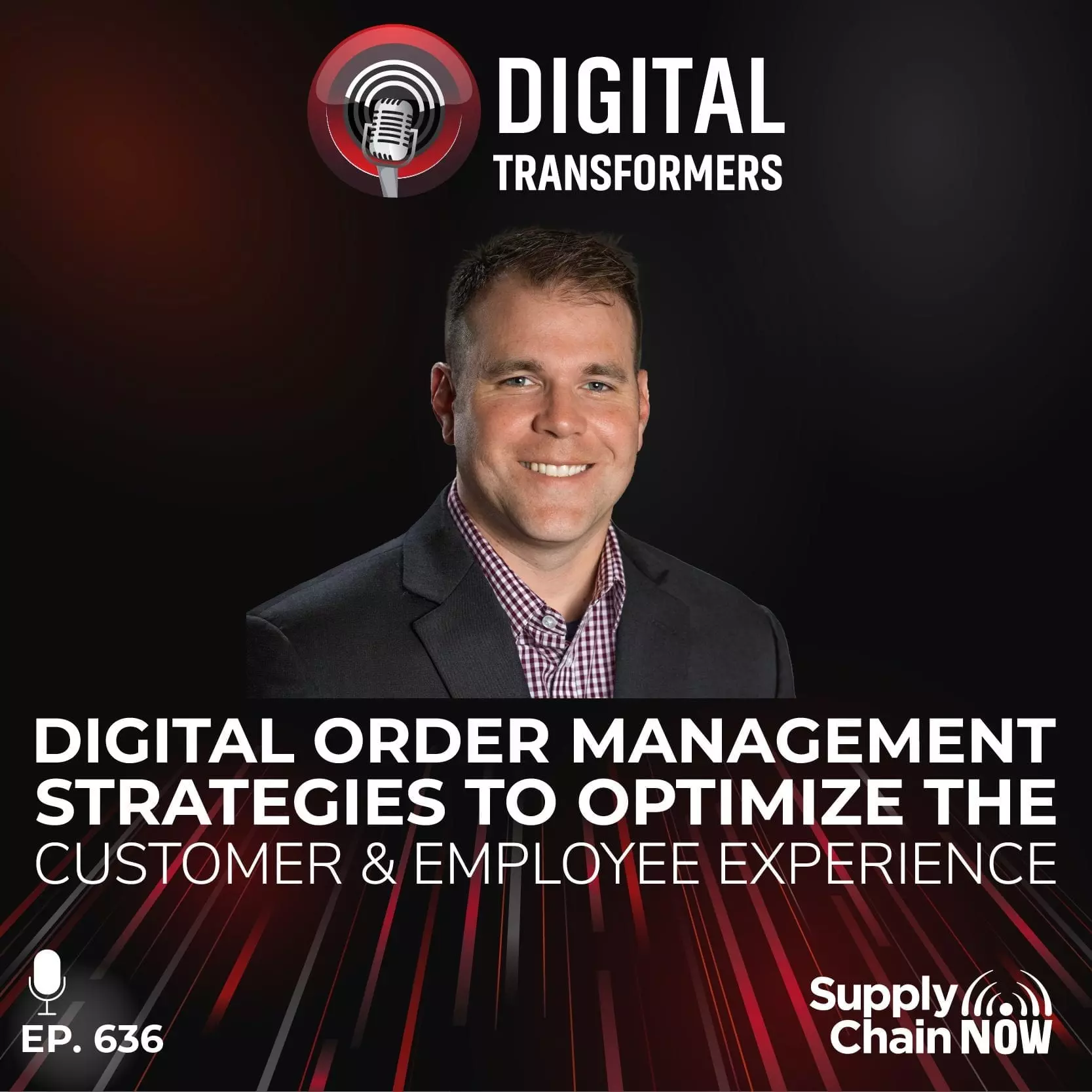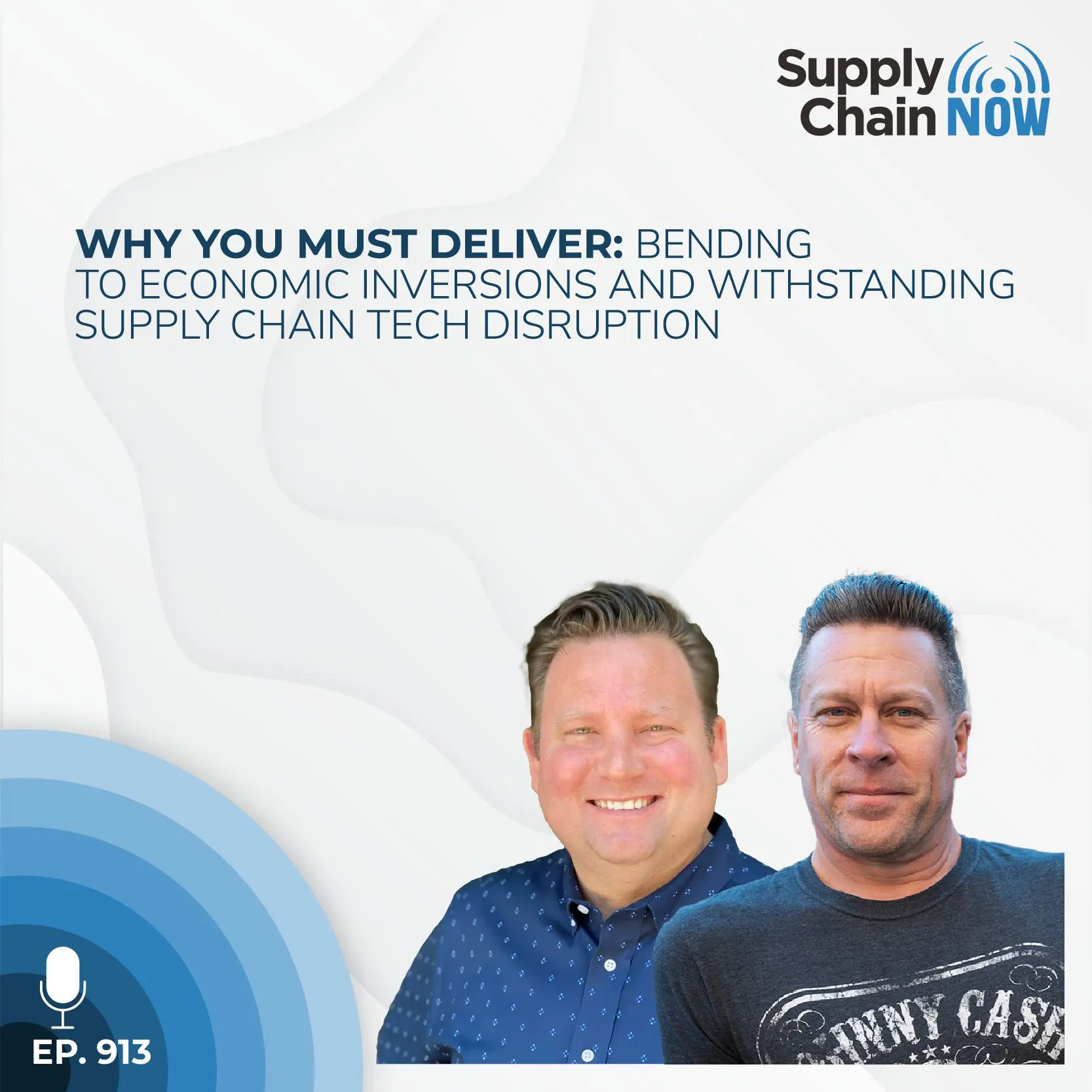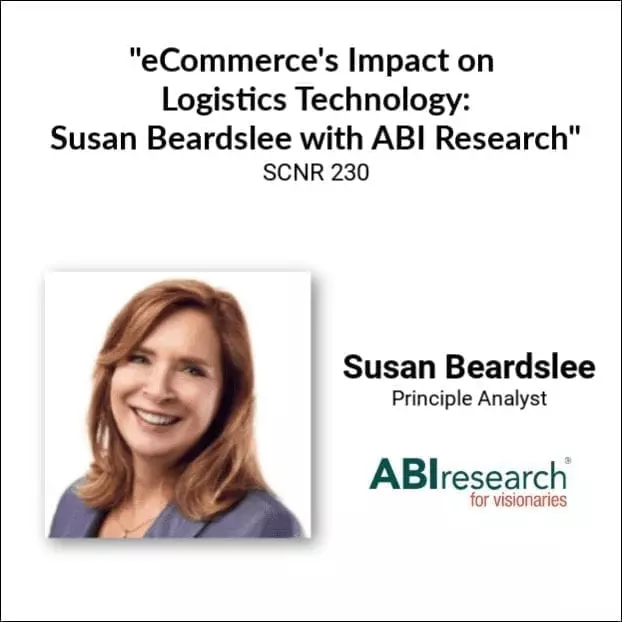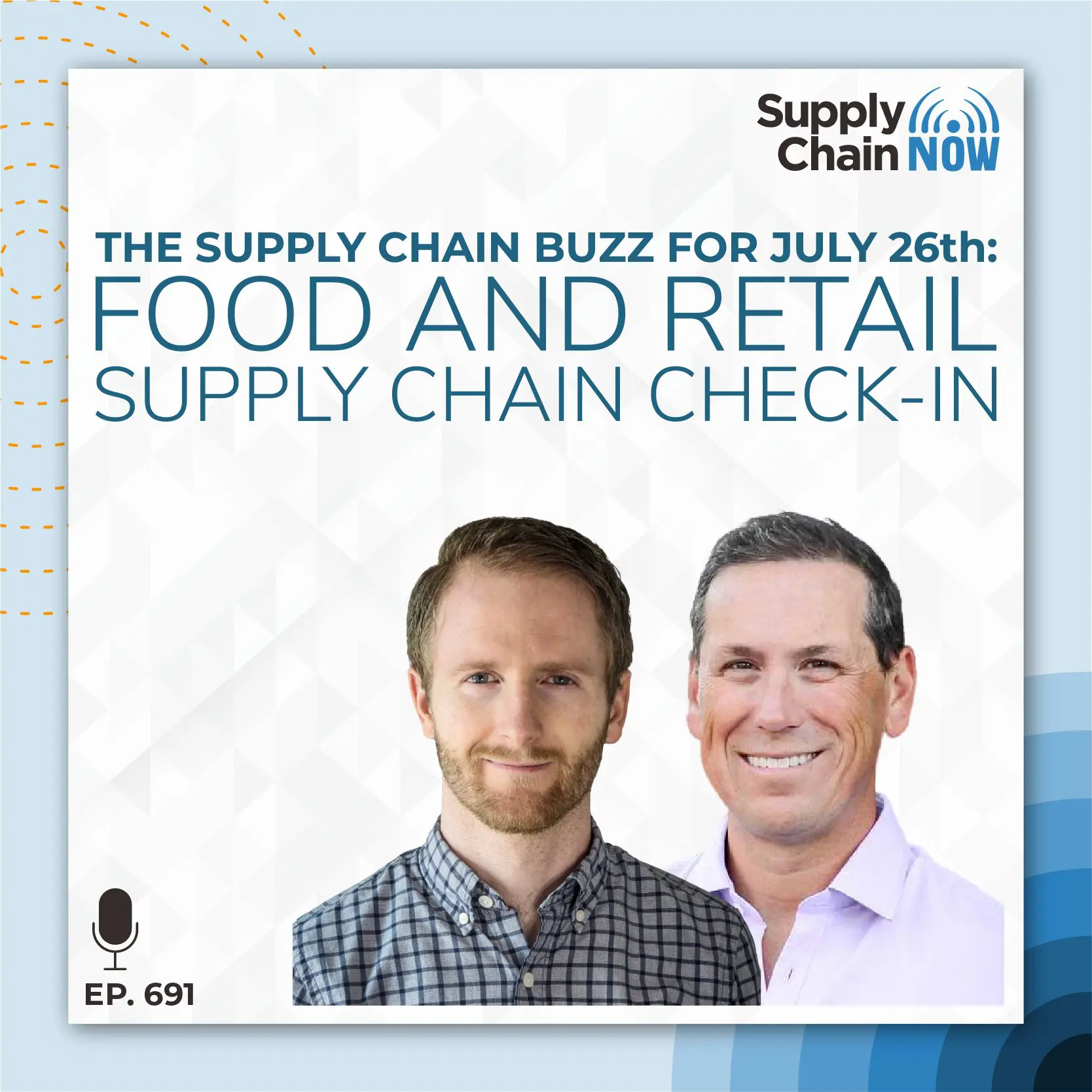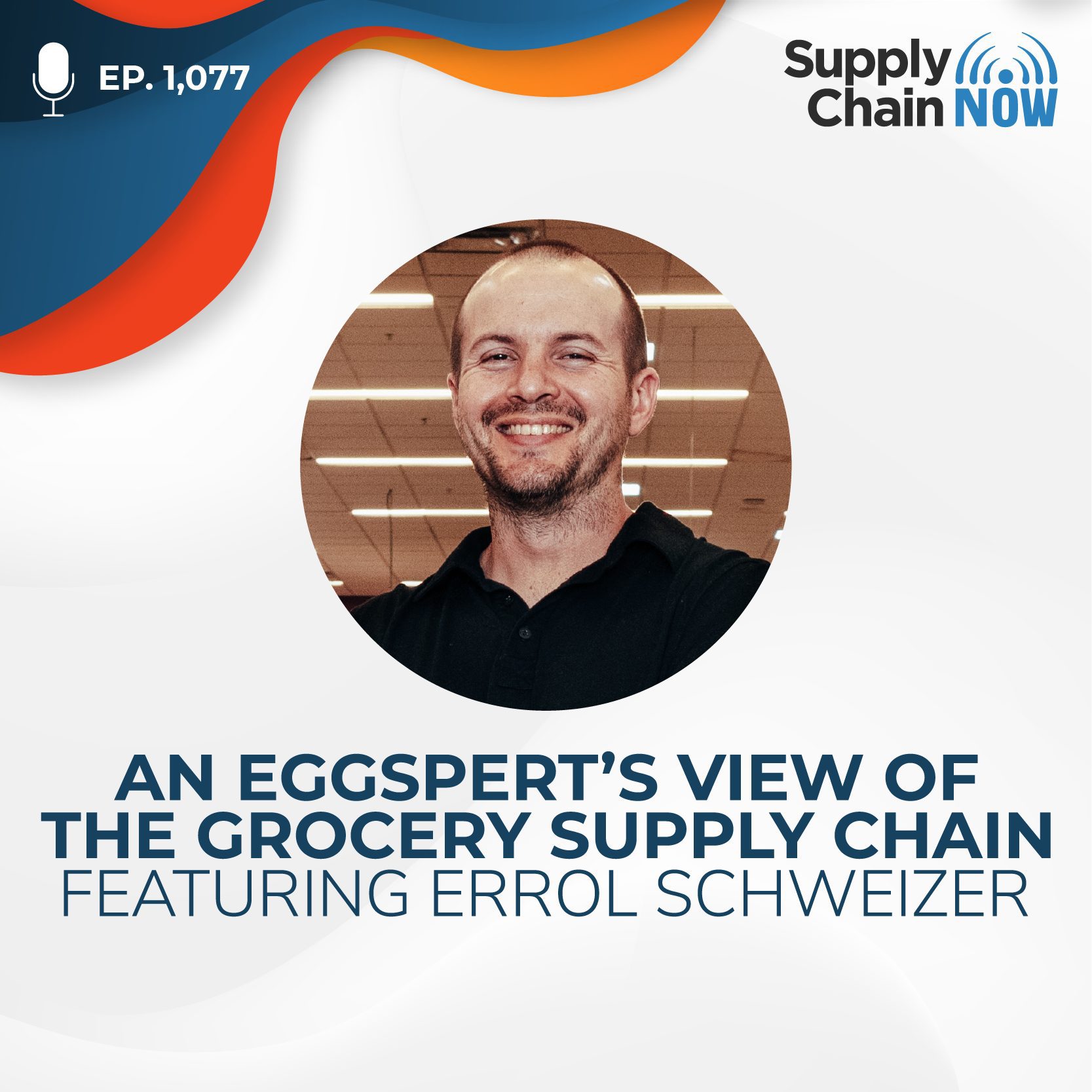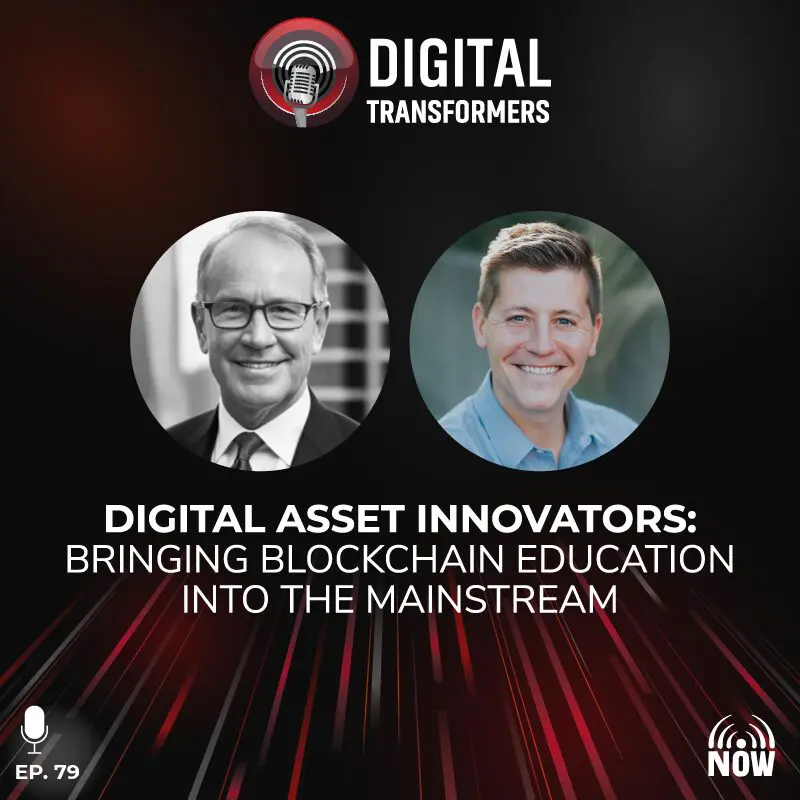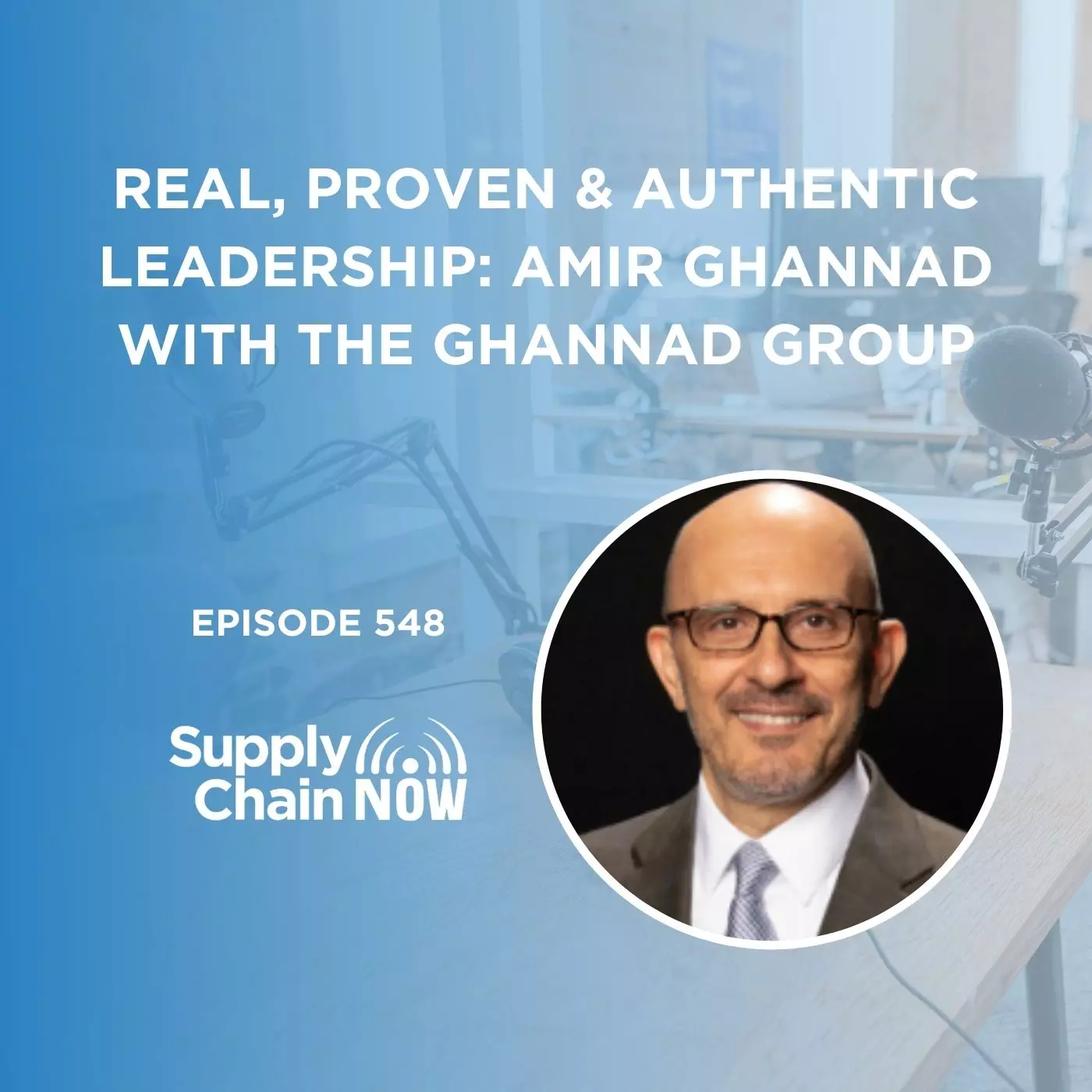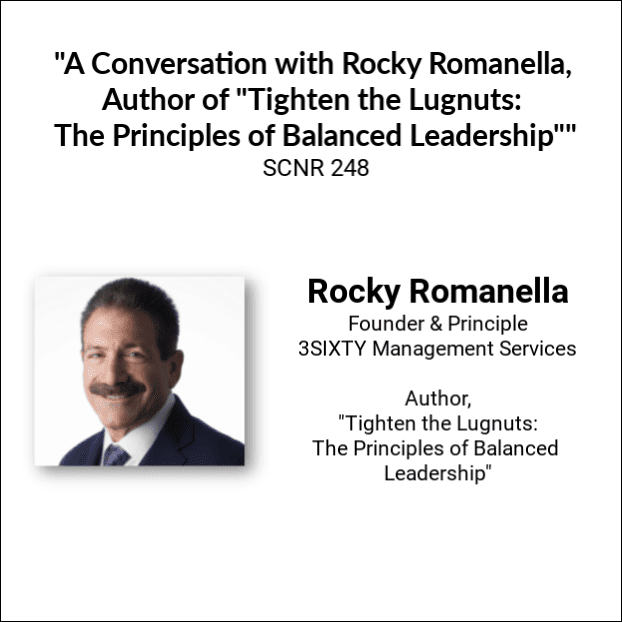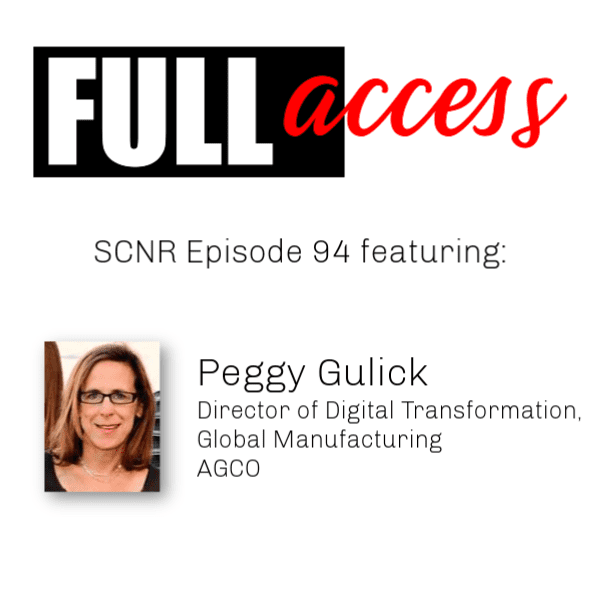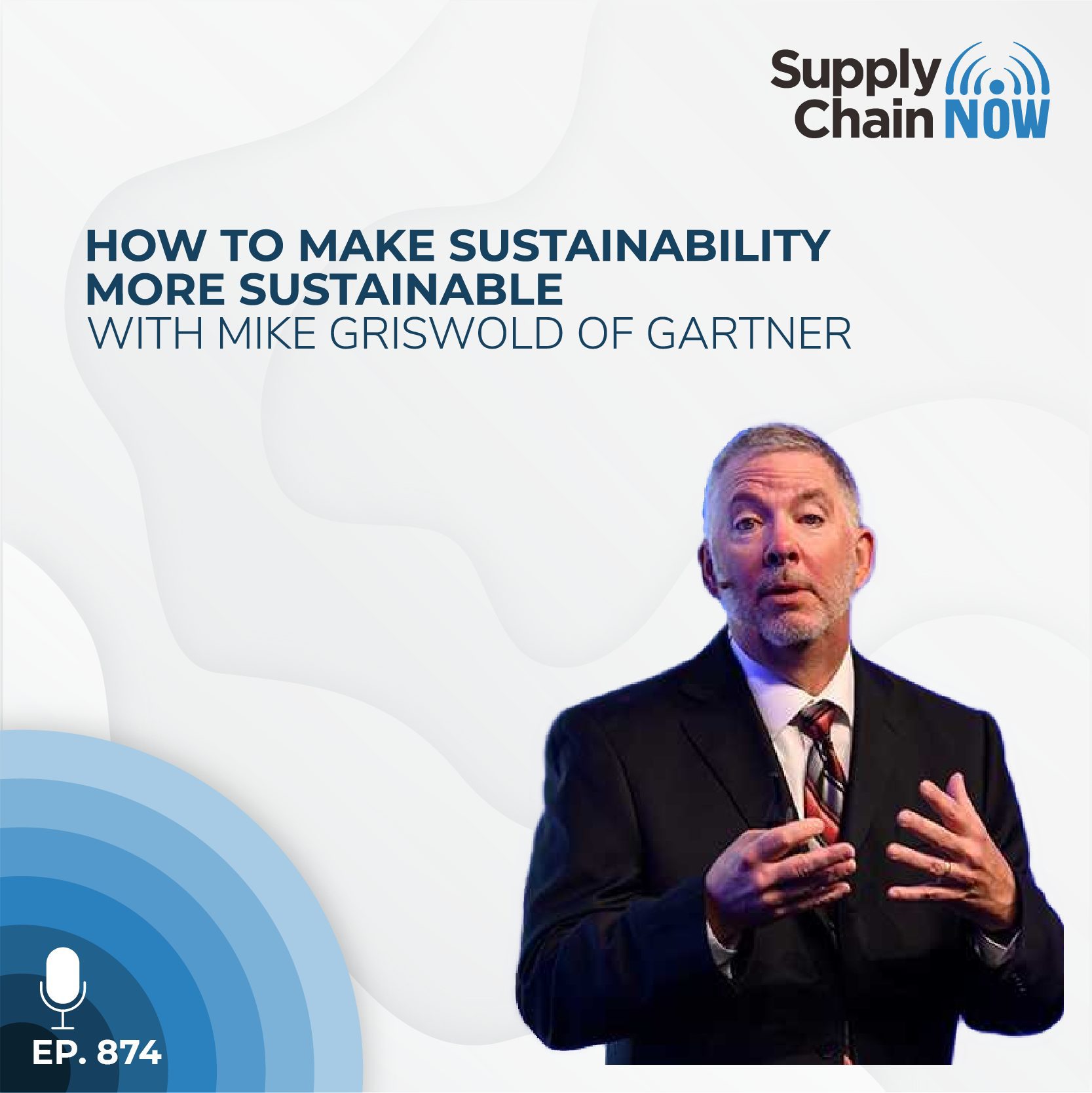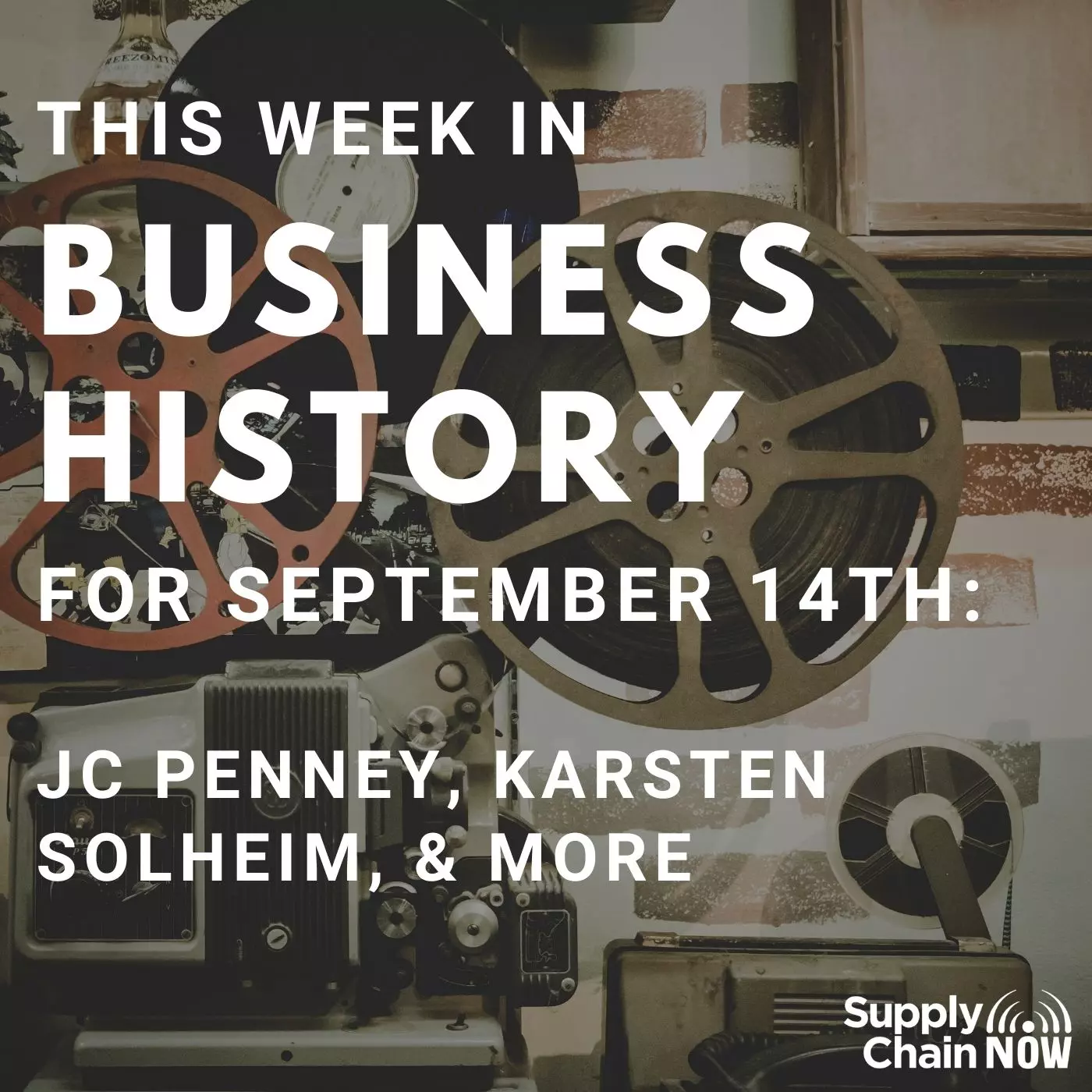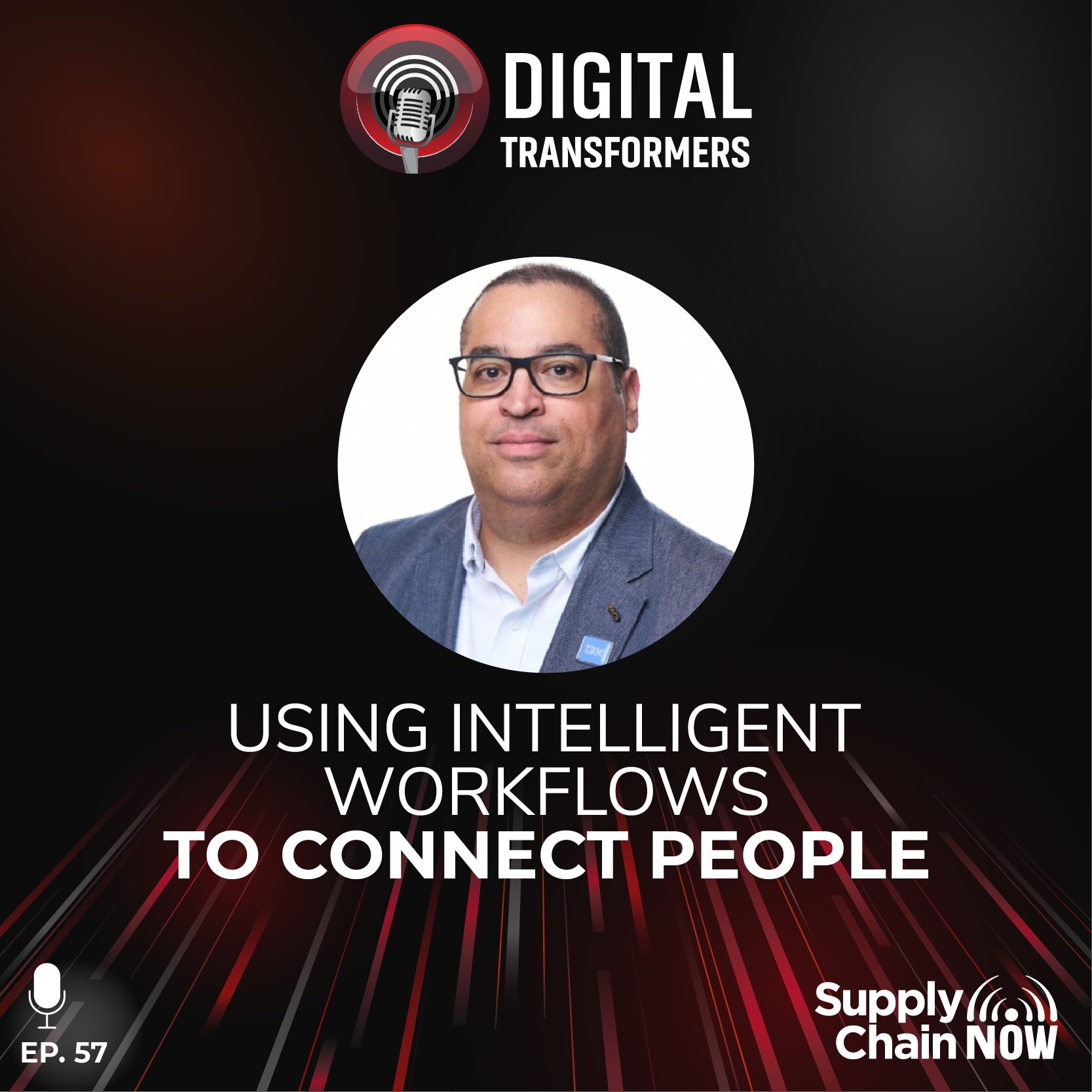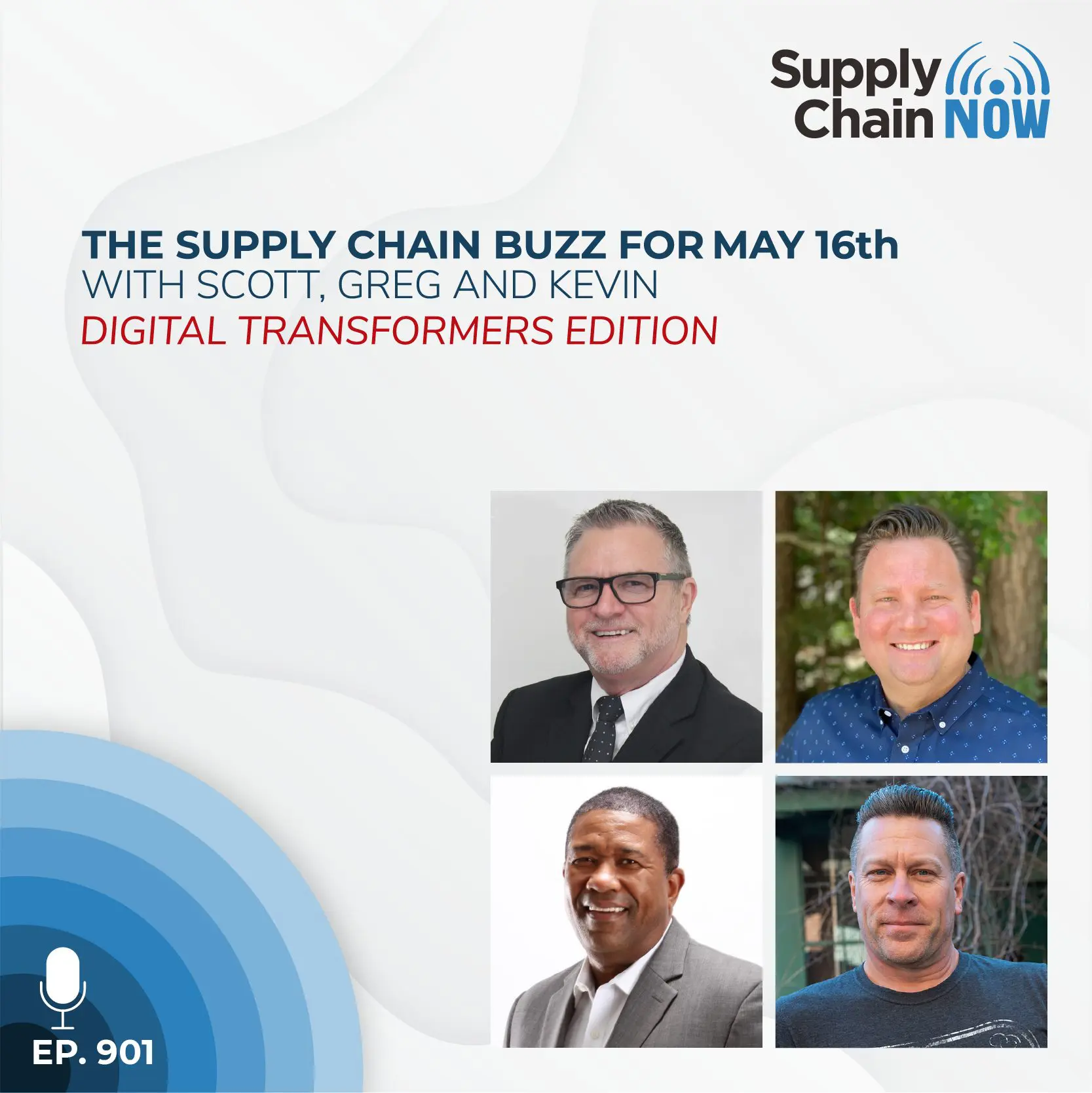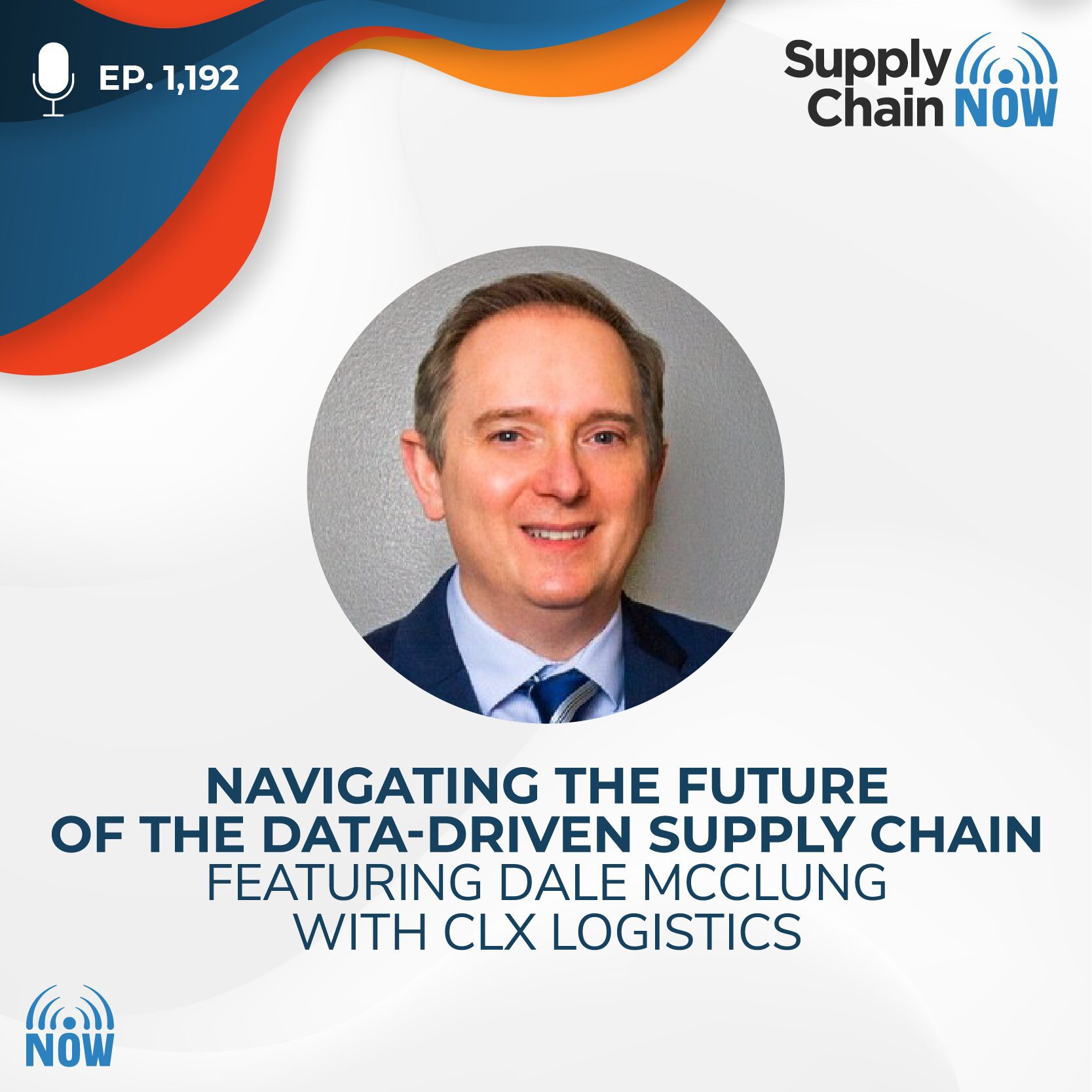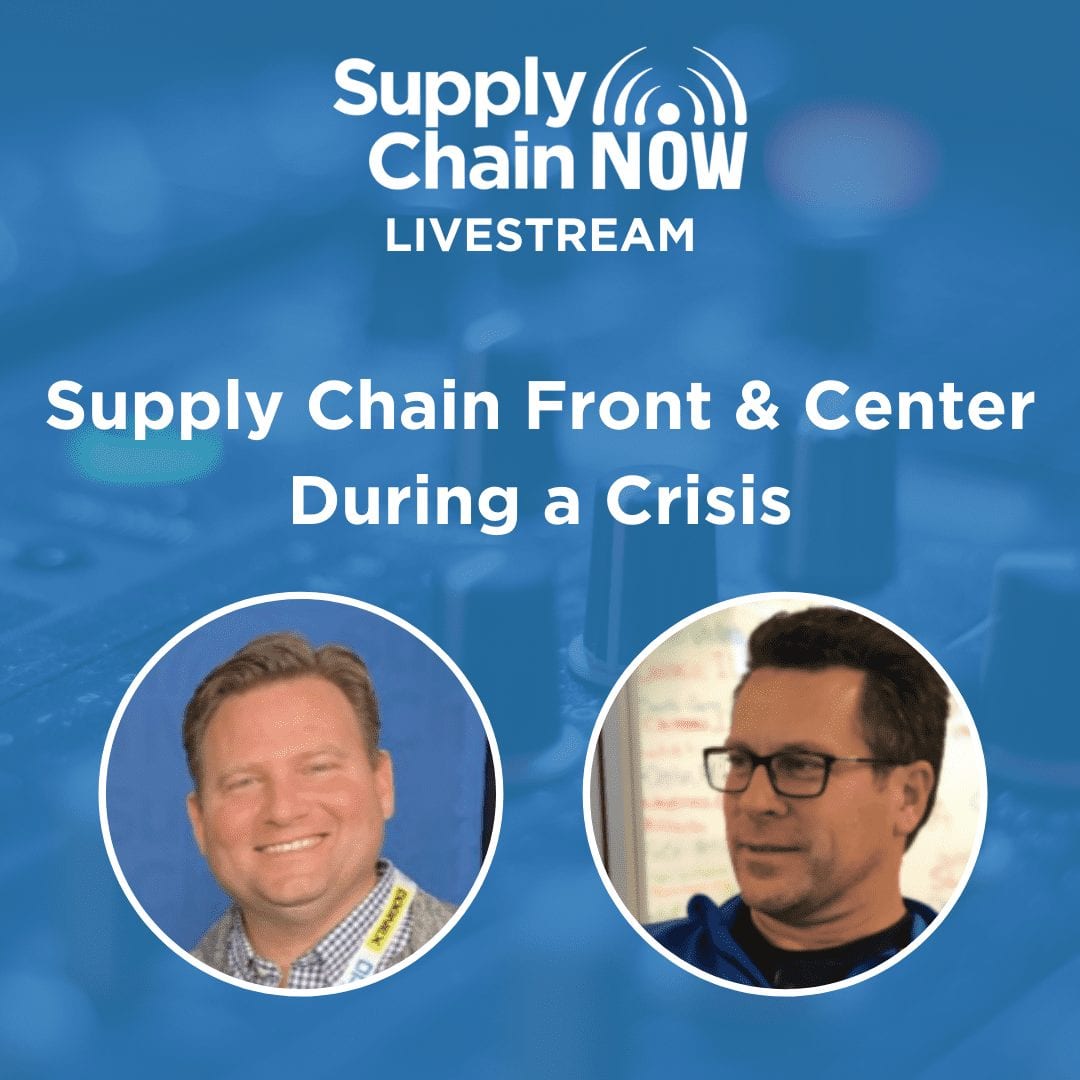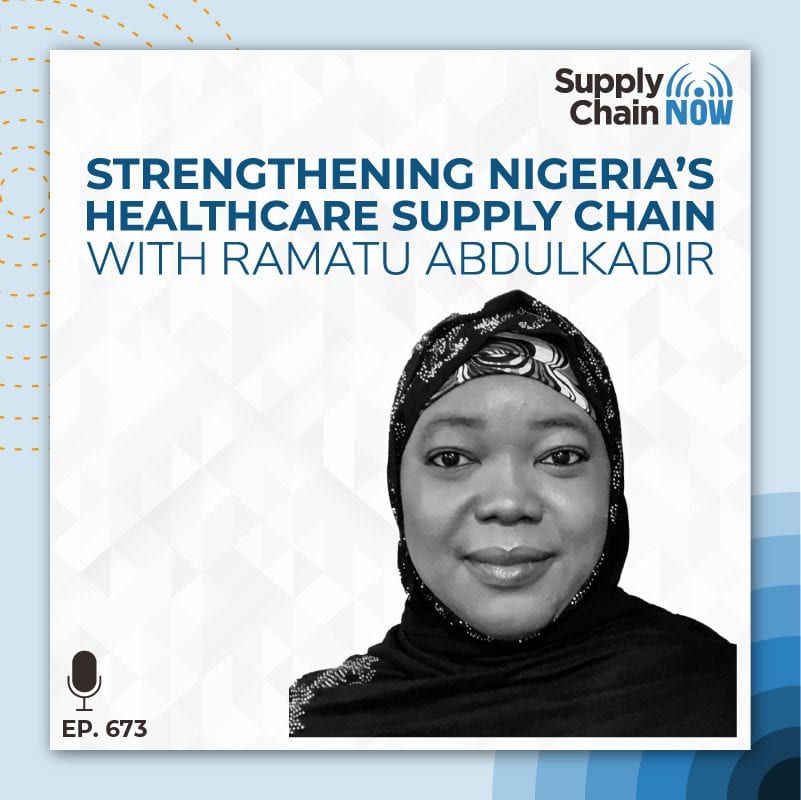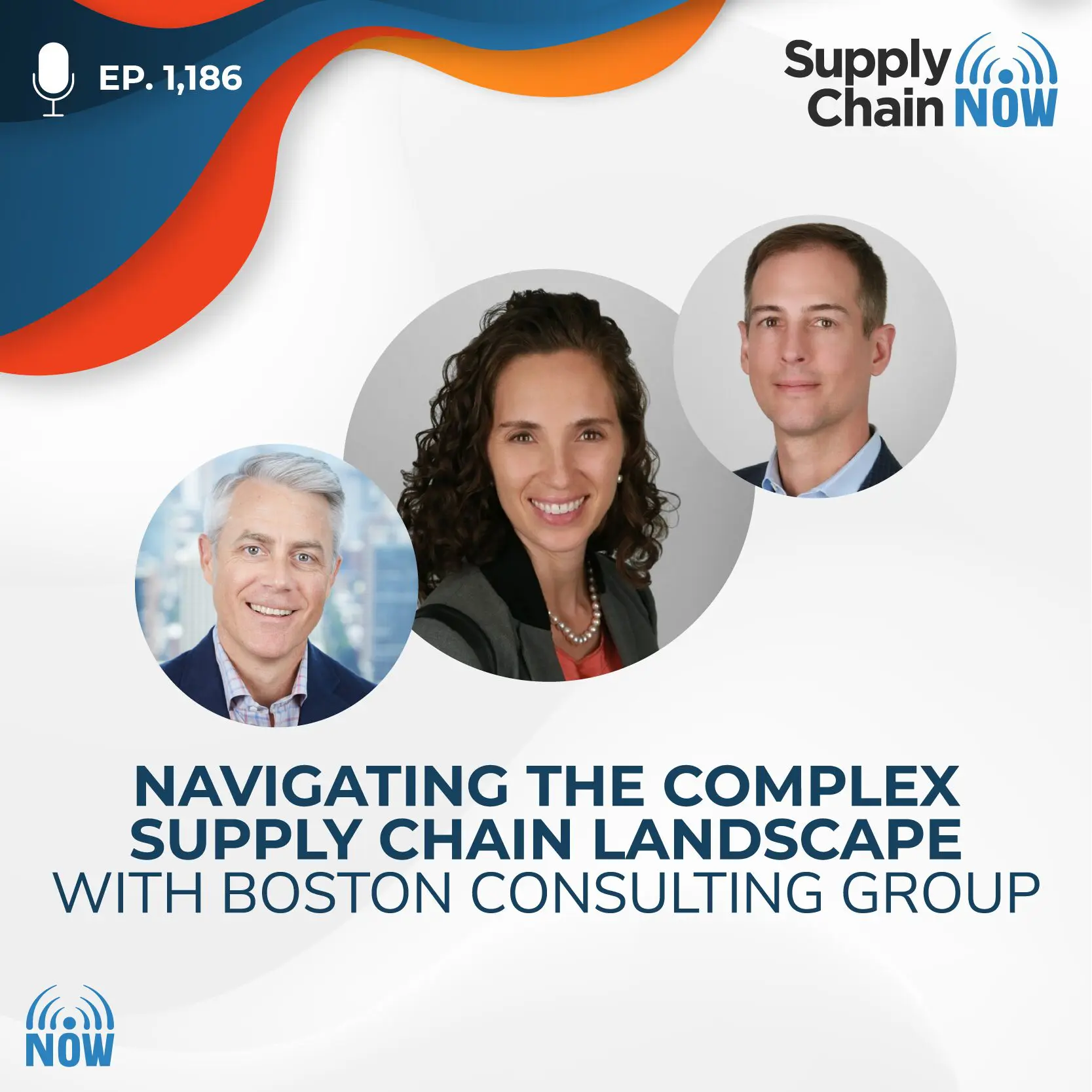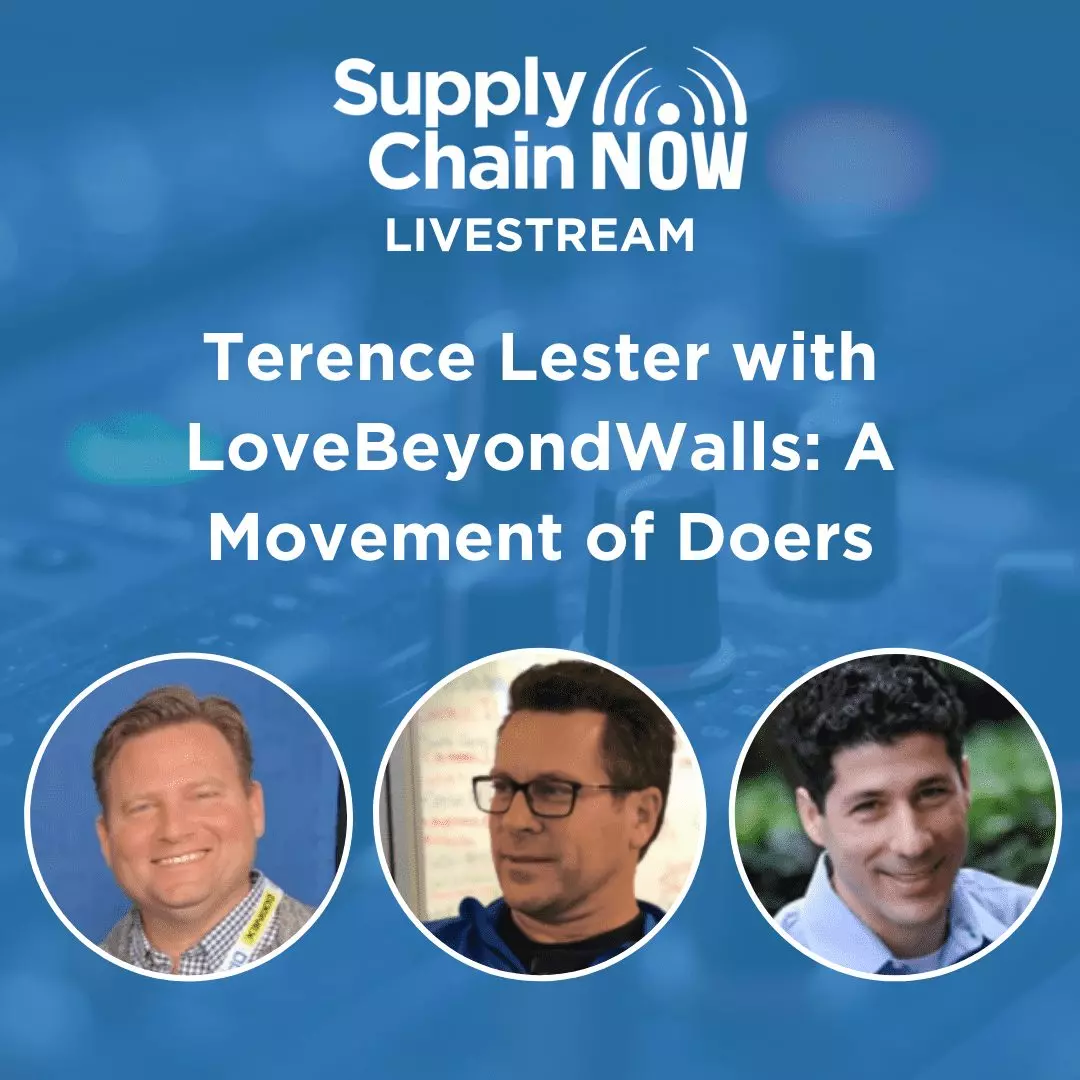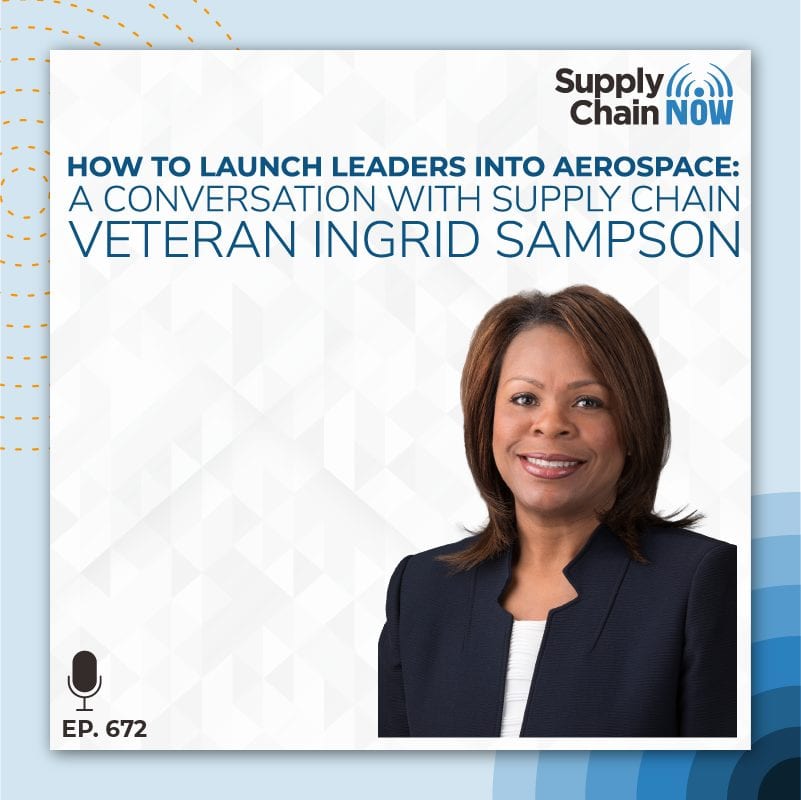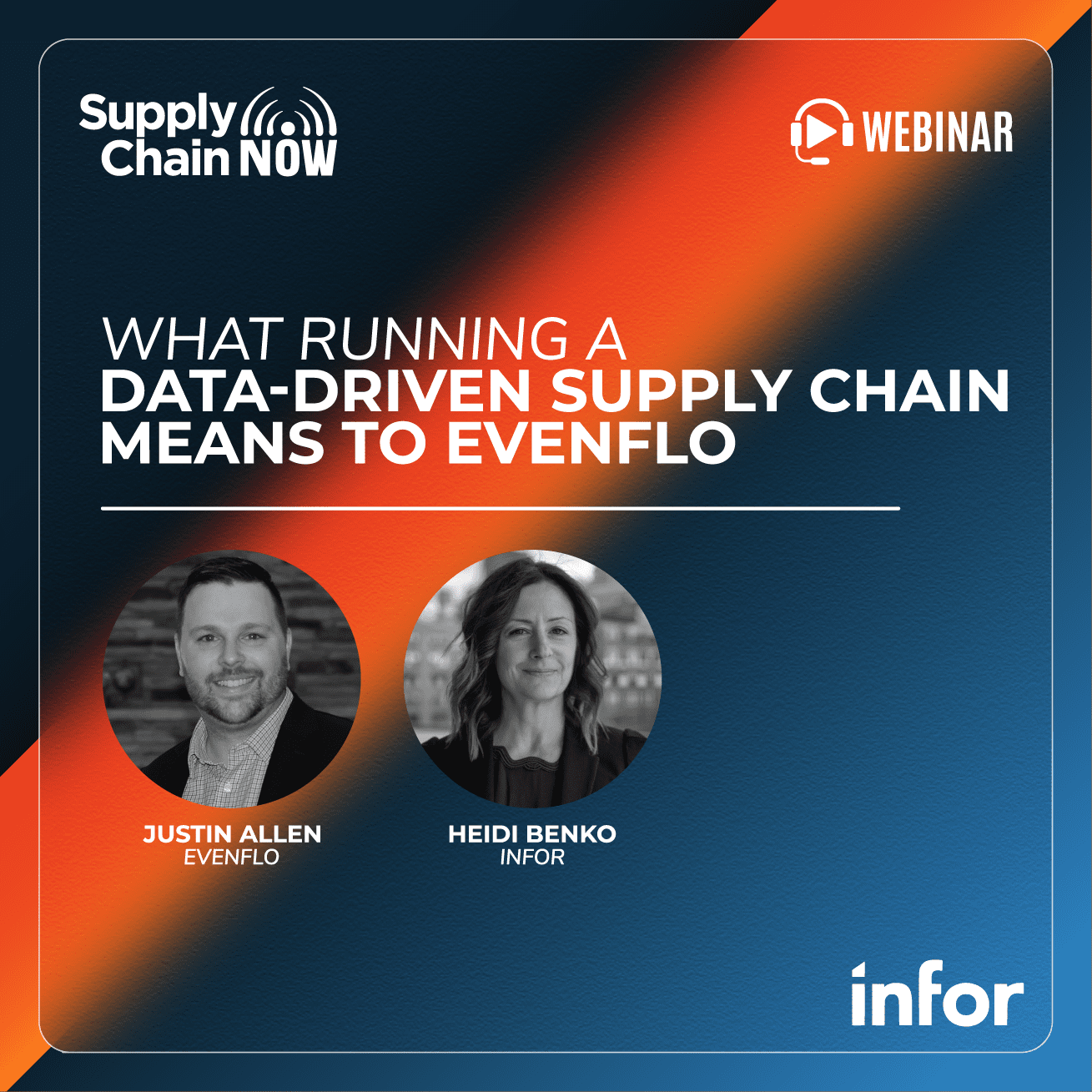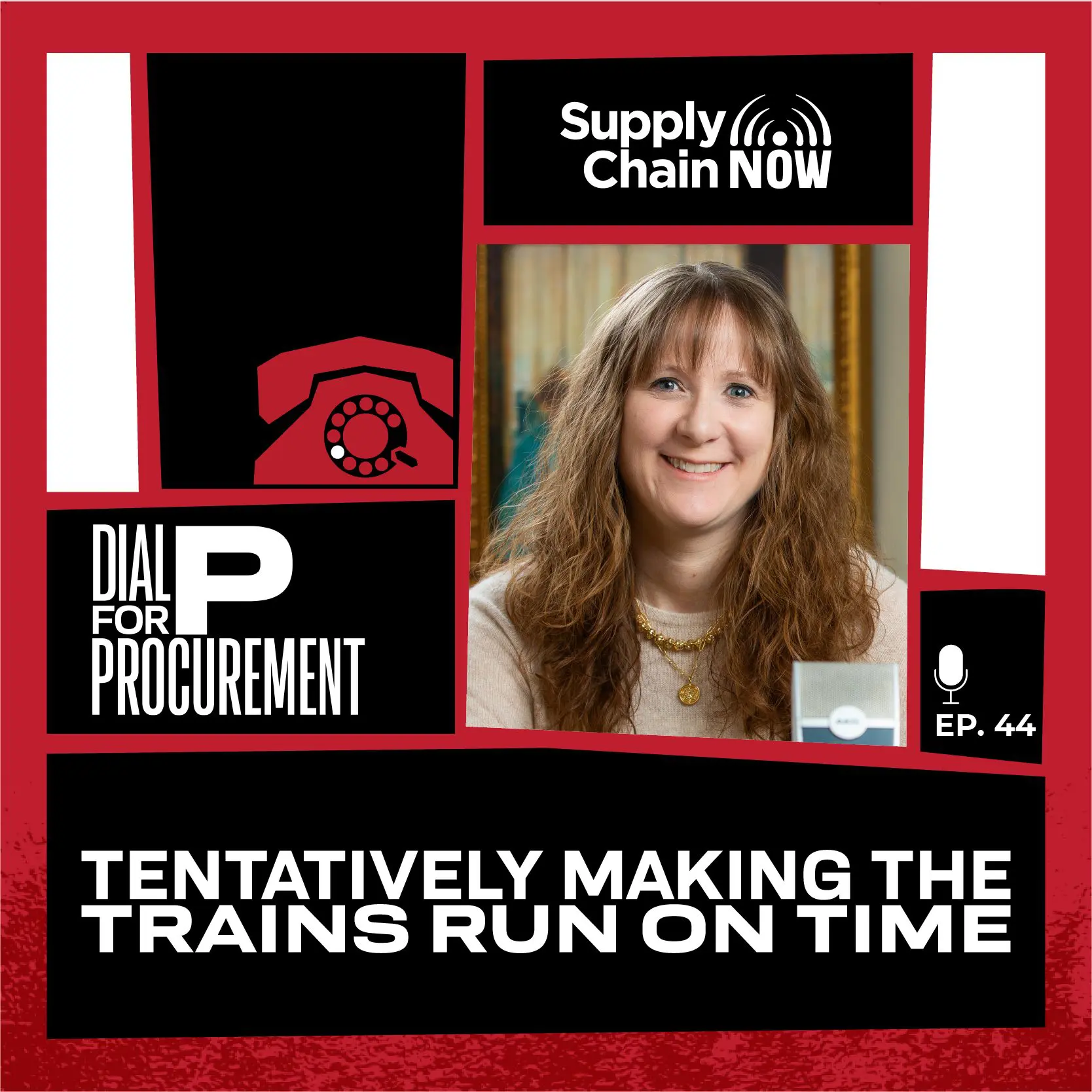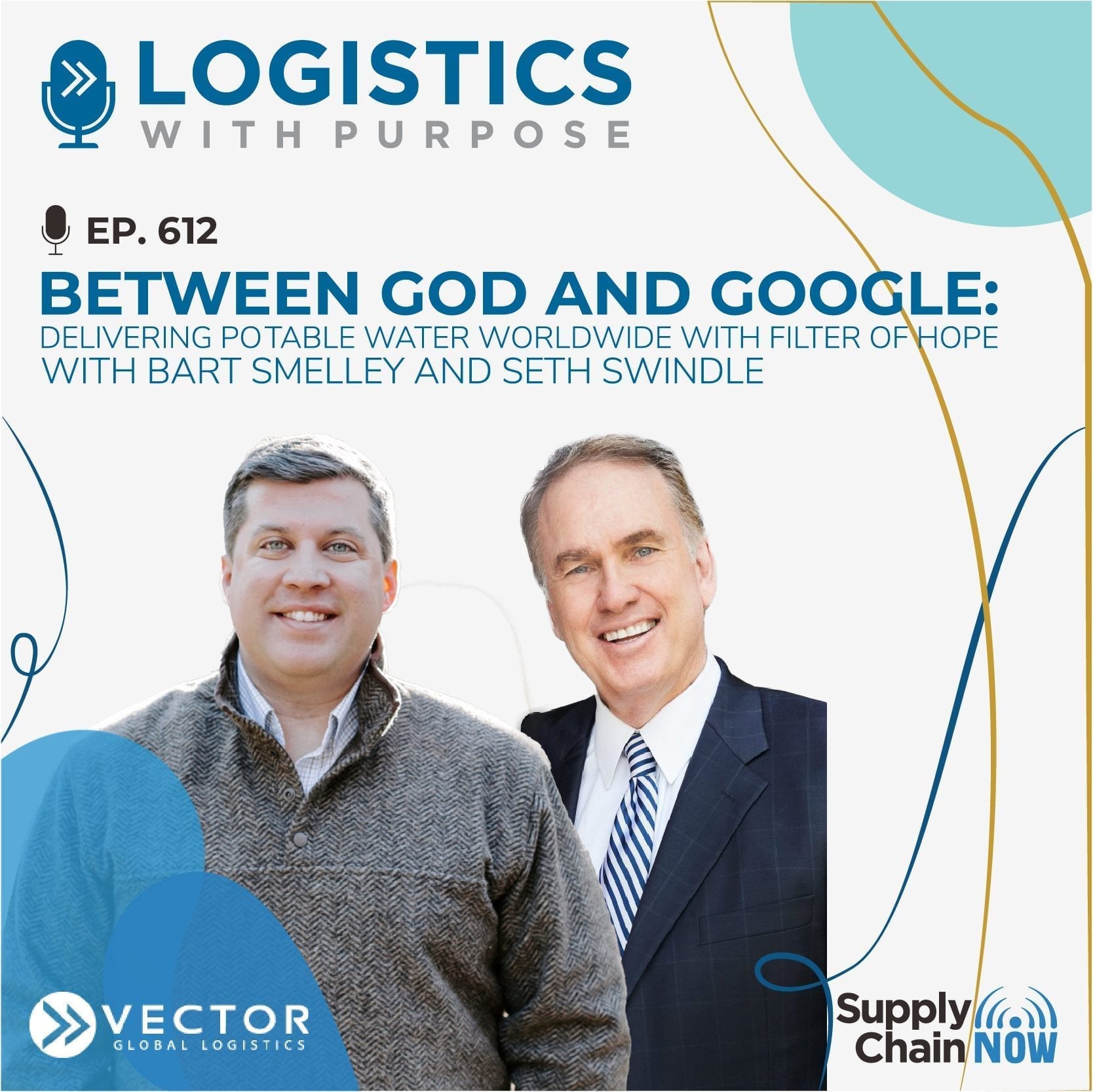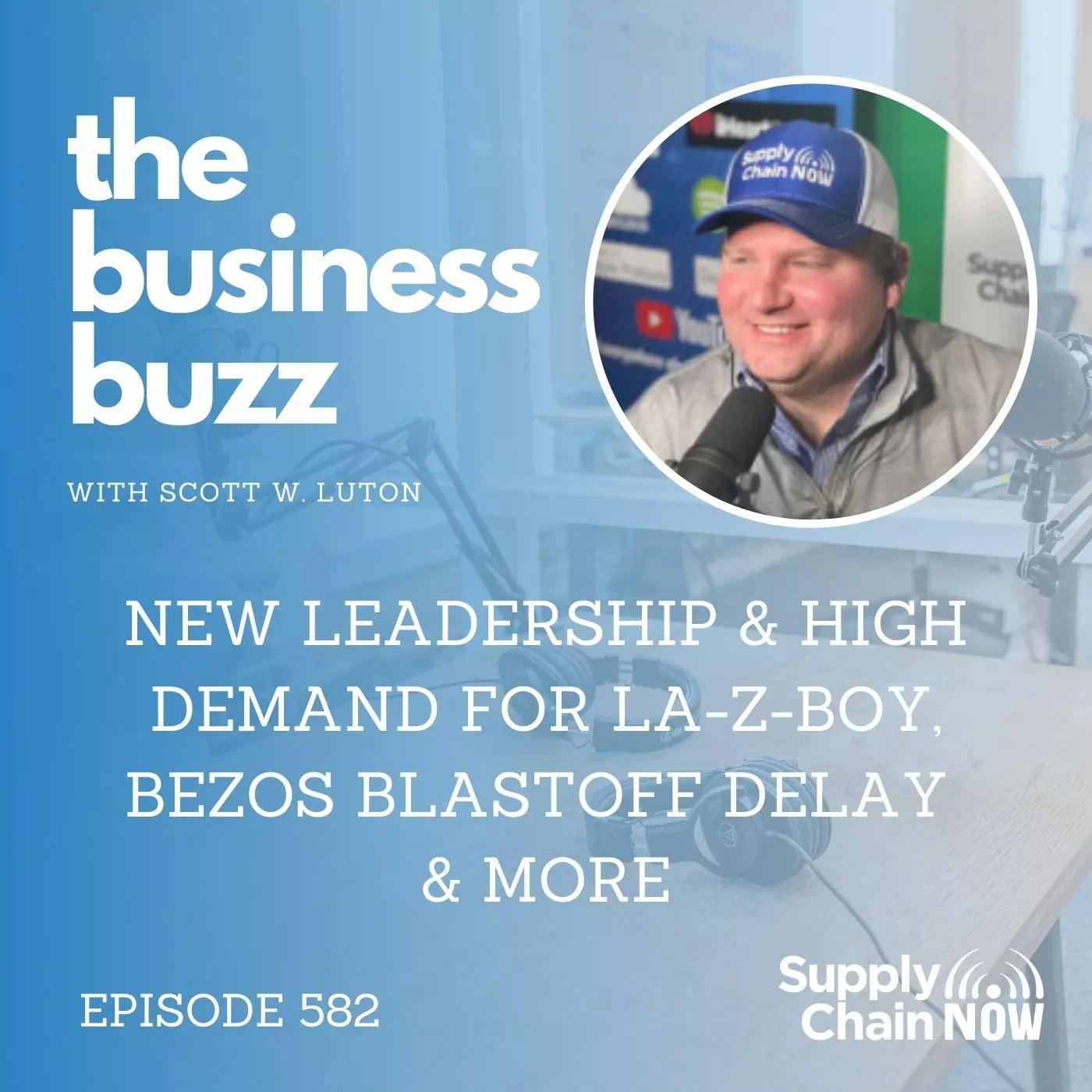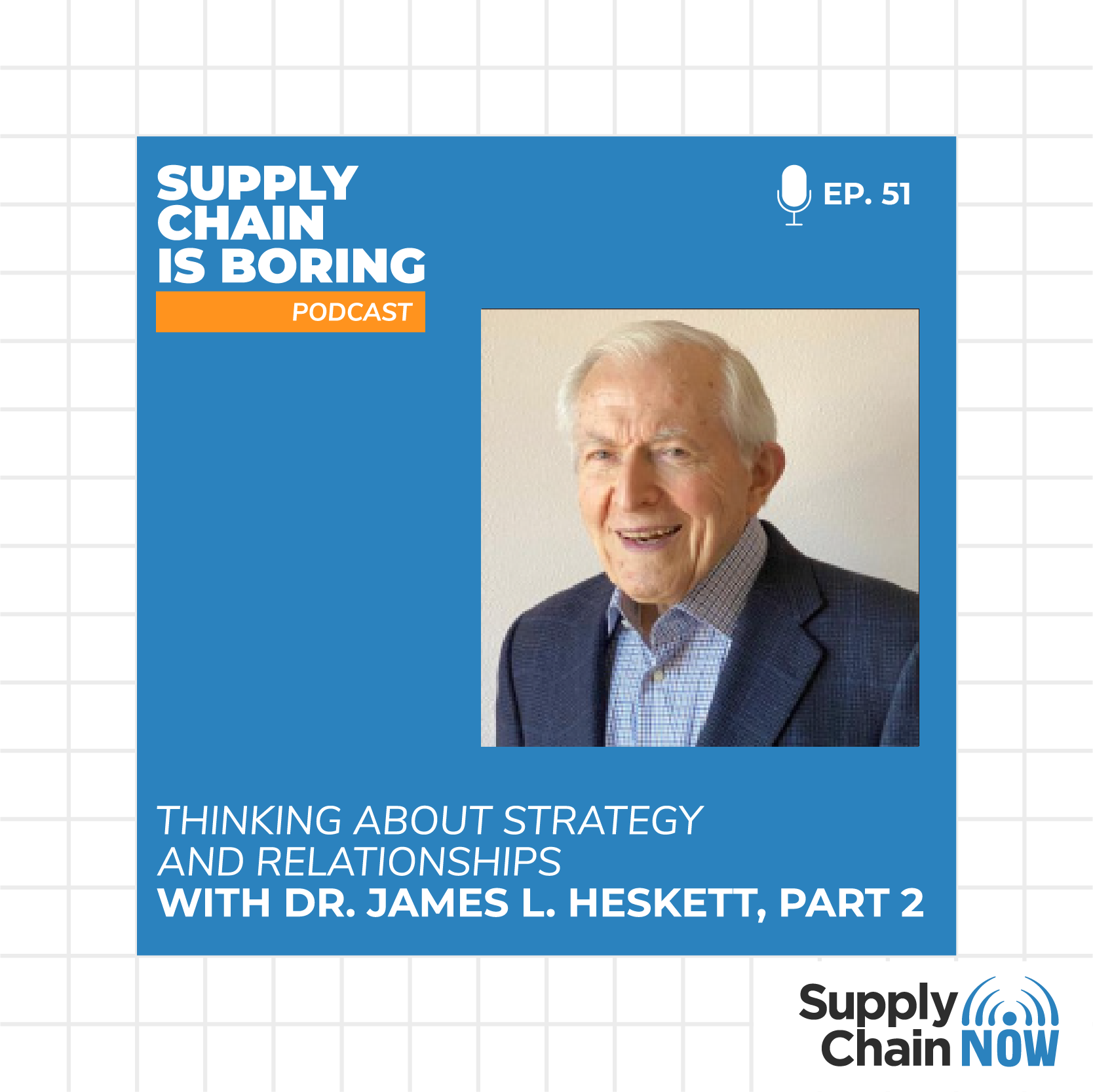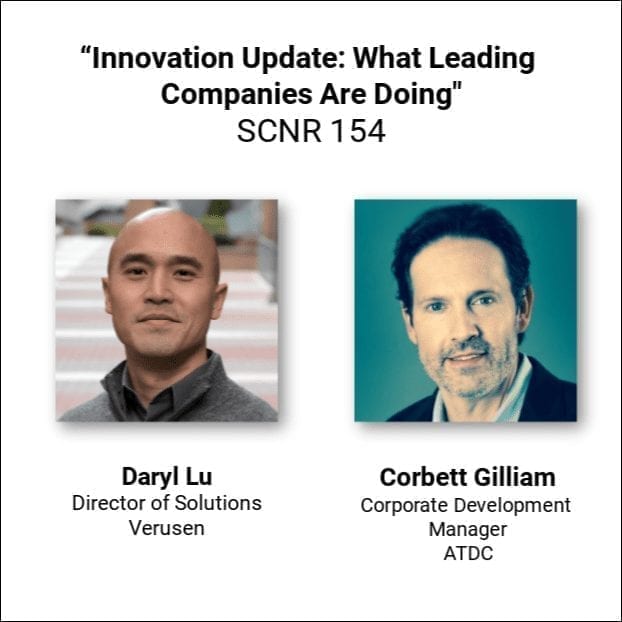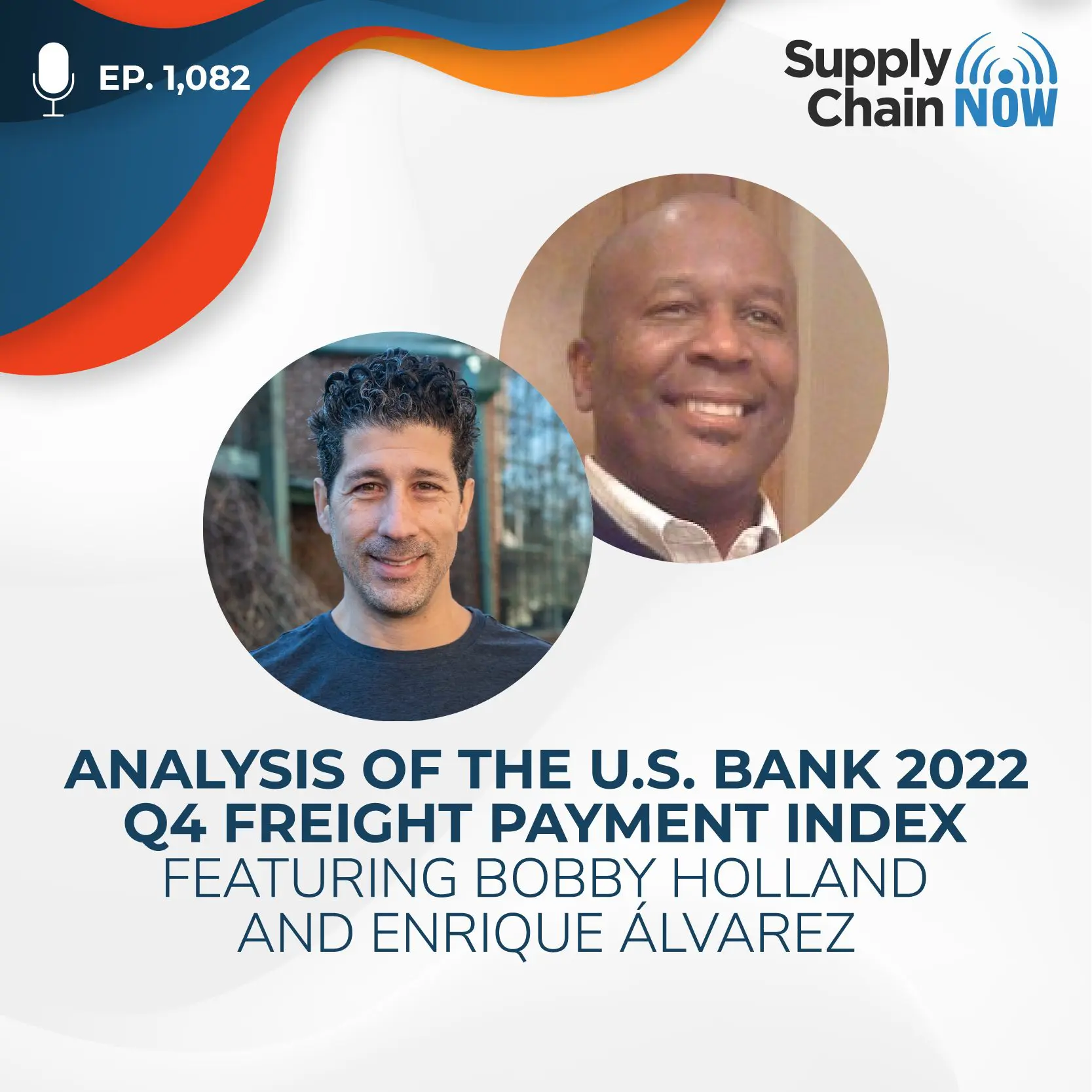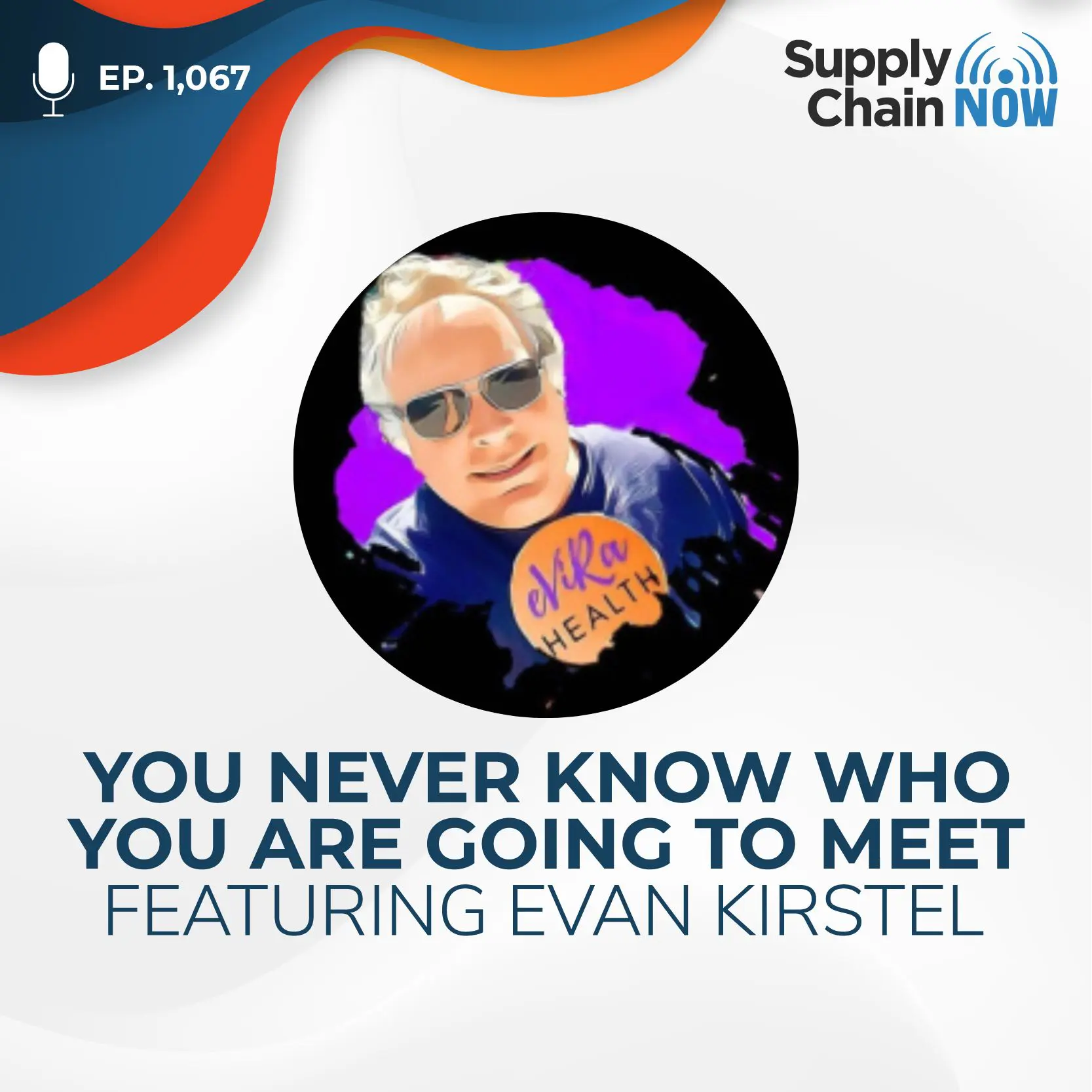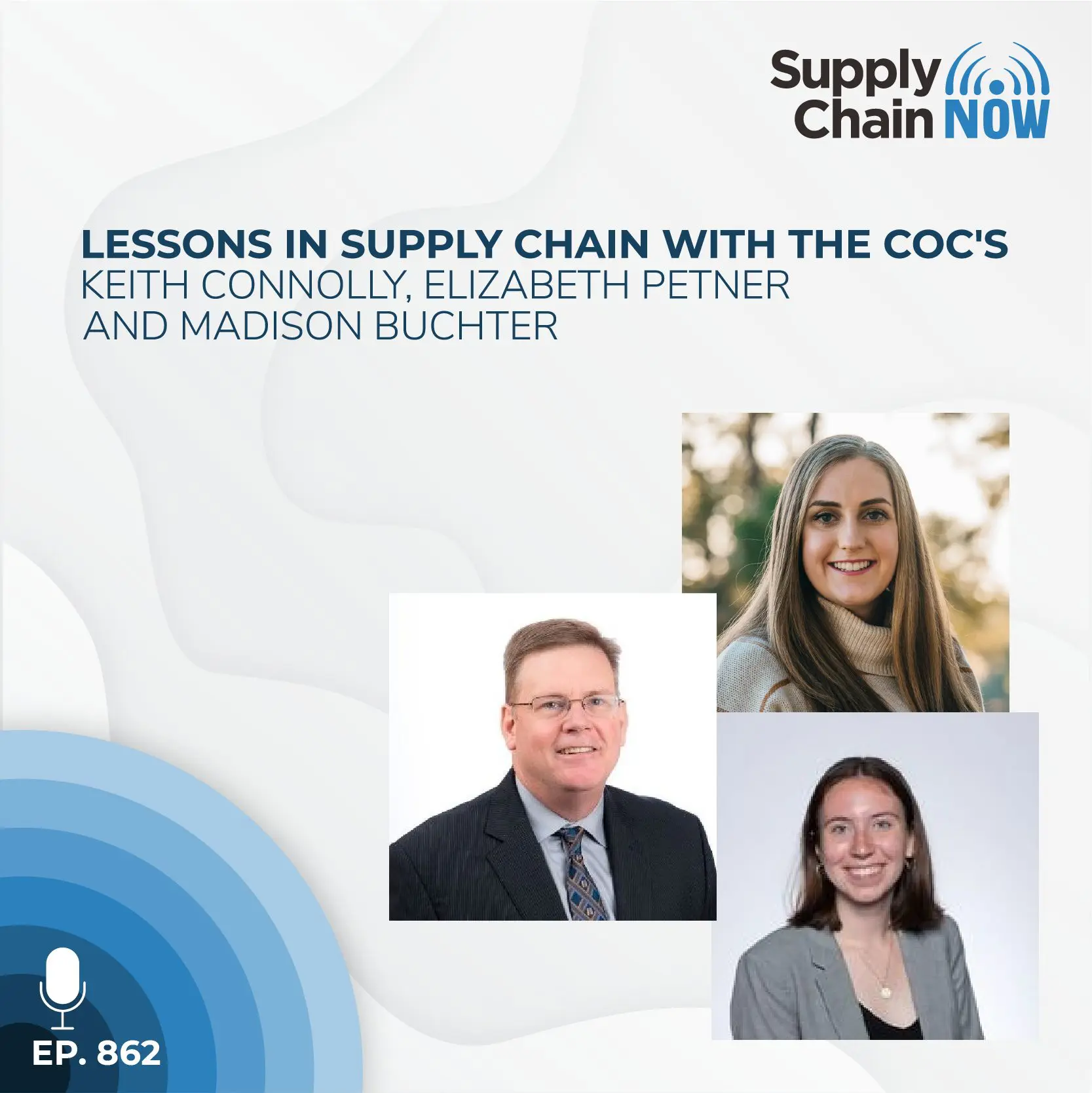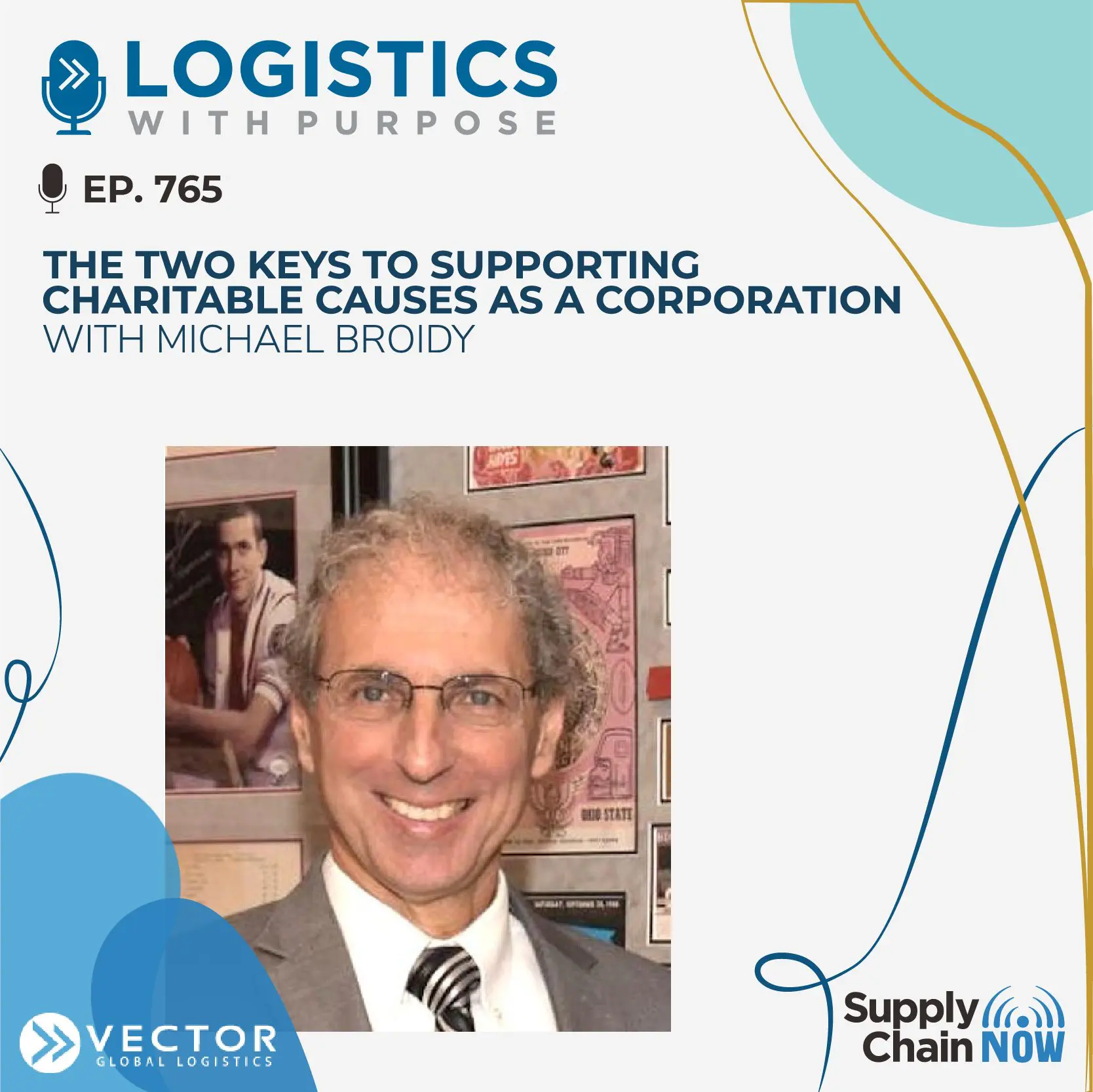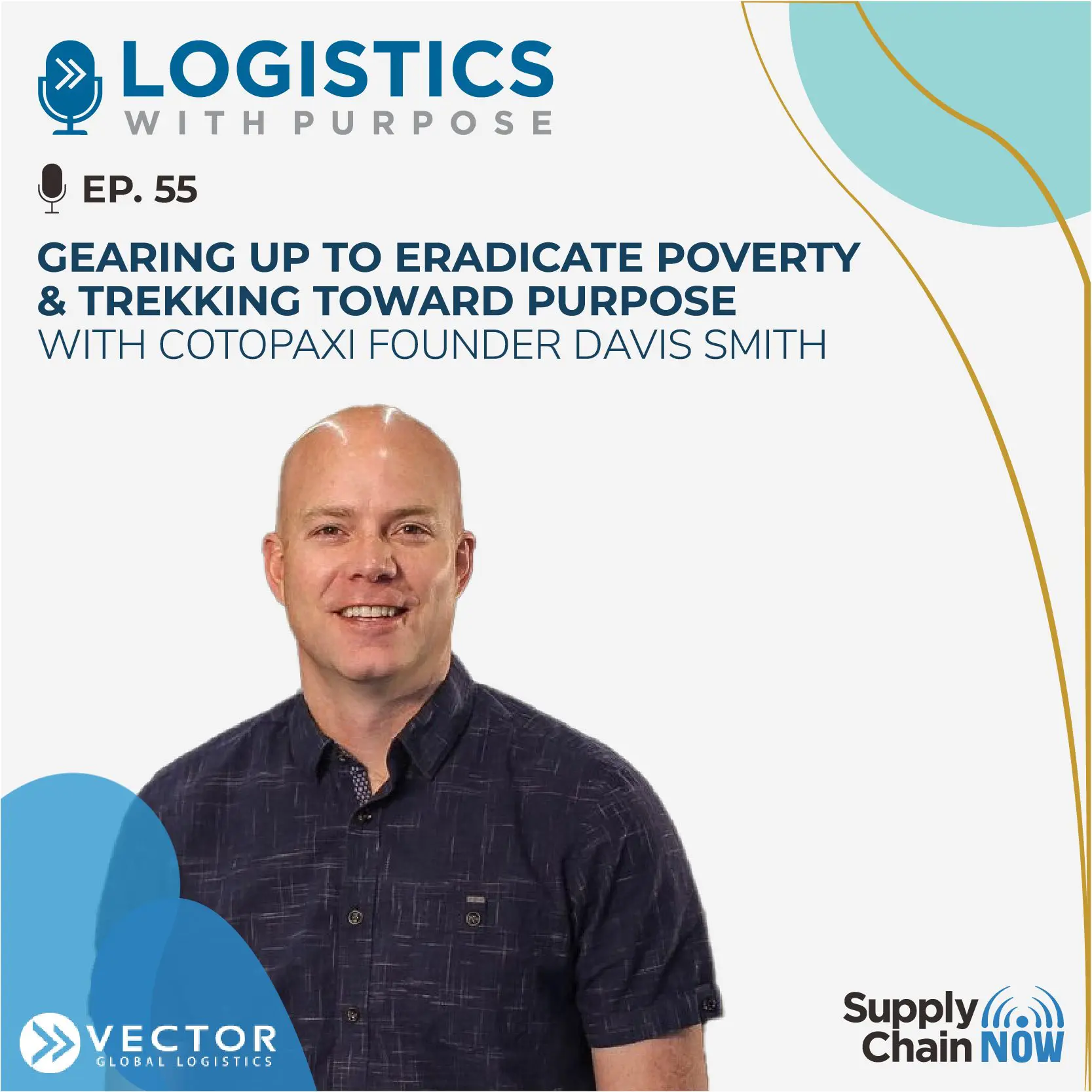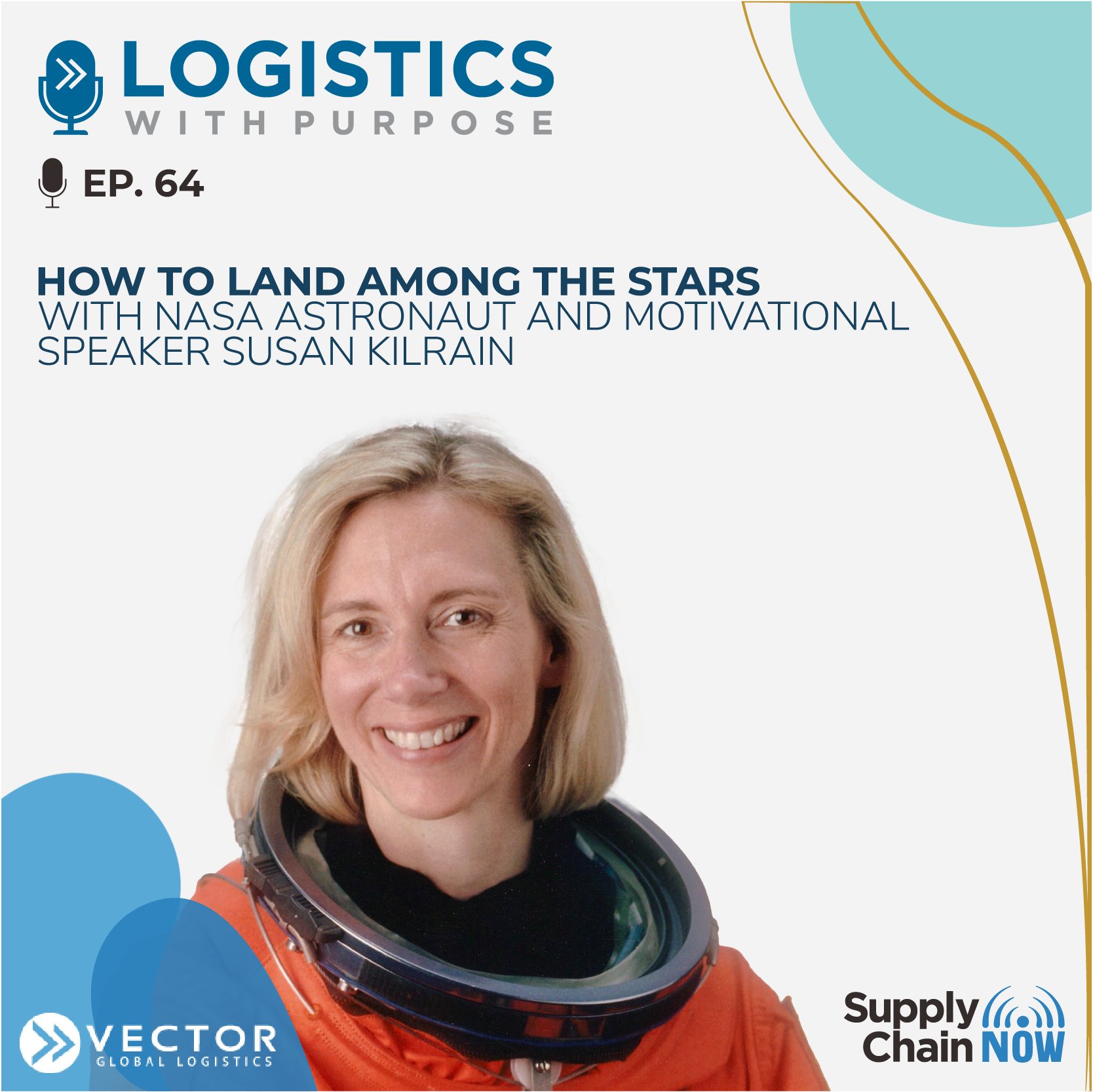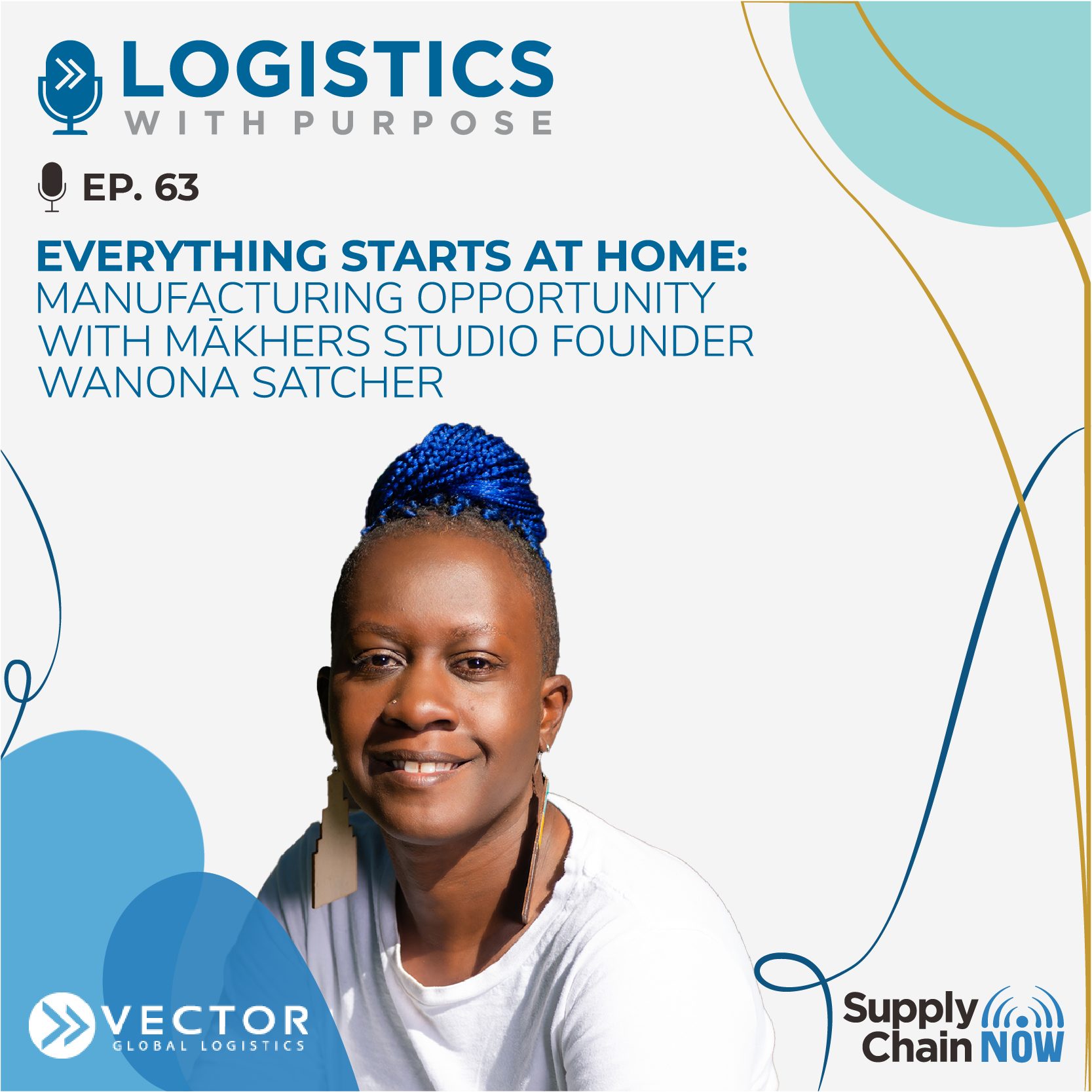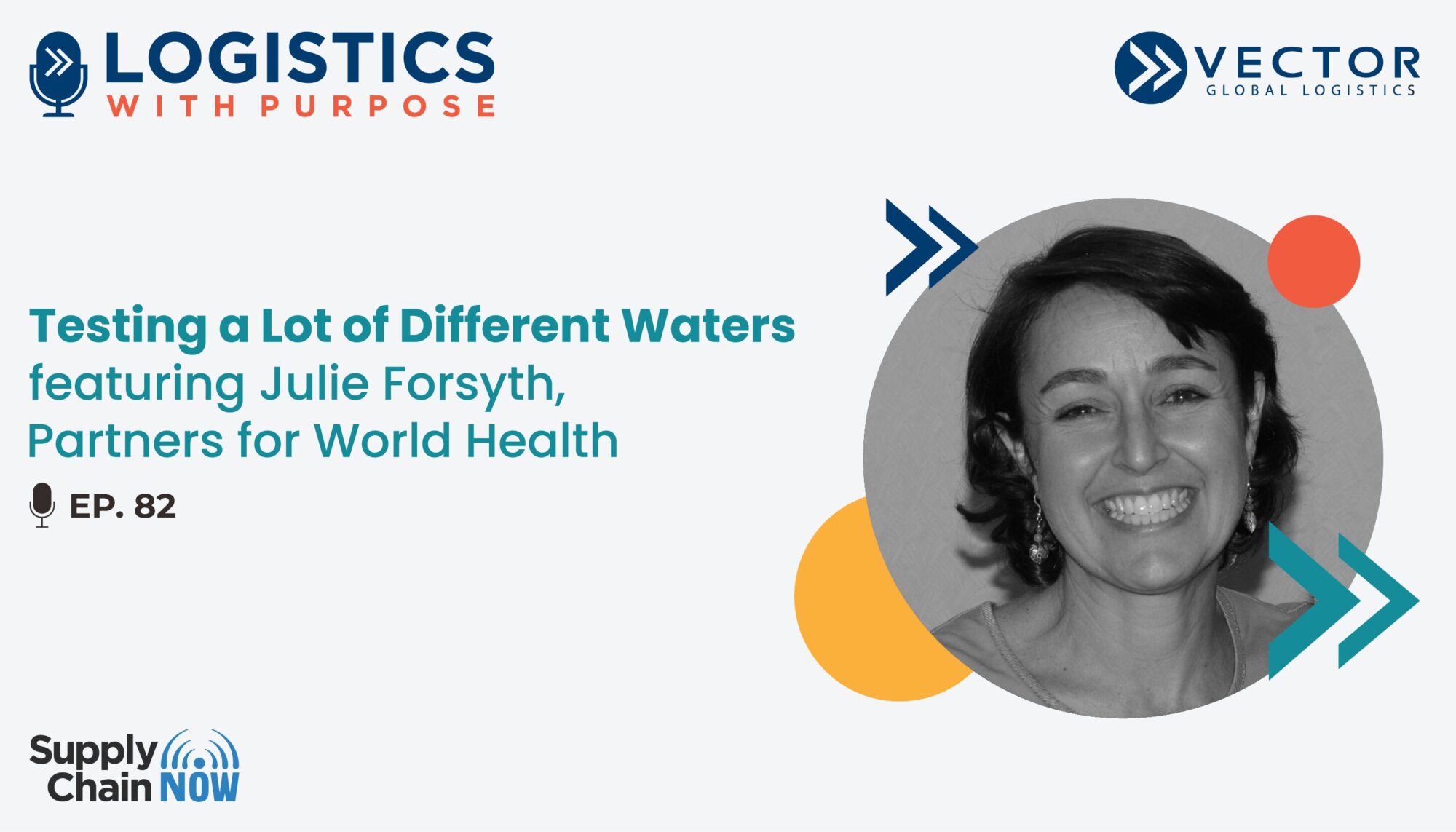
You land in places because the opportunities appear, but there's also a path and there's a purpose.
-Julie Forsyth, Chief Operating Officer, Partners for World Health
Episode Summary
A series of professional experiences may seem disconnected, until the moment – and the role – comes along to justify them all. Then all of those past experiences and skills fall into place in support of one singular experience.
In this episode of Logistics with Purpose, Kristi Porter and Wesley McArthur are joined by Julie Forsyth, Chief Operating Officer at Partners for World Health. She has held a range of senior-level positions in traditional retail operations, strategic planning, management consulting, product development, marketing, and e-commerce, and has worked for internationally recognized companies as well as organizations in the non-profit sector. Listen in as she talks about how her extraordinary professional journey led her to her current role at Partners for World Health.
Episode Transcript
Intro/Outro (00:00:02):
Welcome to Logistics with Purpose presented by Vector Global Logistics in partnership with Supply Chain. Now we spotlight and celebrate organizations who are dedicated to creating a positive impact. Join us for this behind the scenes glimpse of the origin stories change, making progress and future plans of organizations who are actively making a difference. Our goal isn’t just to entertain you, but to inspire you to go out and change the world. And now here’s today’s episode of Logistics With Purpose.
Kristi Porter (00:00:34):
Hello and welcome to another. Terrific. I’m already so excited, um, episode of Logistics With Purpose. I am Kristi Porter with Vector Global Logistics. Today is a momentous occasion because it’s the first time I get the opportunity to co-host with Wesley MacArthur. Hey, Wes. How are you?
Wesley Mc Arthur (00:00:50):
Hey, Kristi. Good. And you?
Kristi Porter (00:00:52):
I am morning. Good. I’m excited to be chatting with you. You and I, you just moved back to the States from our Vietnam office, and I don’t get to hang out with you and chat with you very much. So this is a terrific way to break us in, despite your being jet lagged. <laugh>
Wesley Mc Arthur (00:01:06):
<laugh>. Yeah. No, I’m happy to be back and yeah, I’m glad to do our first podcast together. I think it’s gonna be a lot of fun.
Kristi Porter (00:01:11):
Absolutely. Tell us who we have today. Uh,
Wesley Mc Arthur (00:01:13):
We have Julie for side from, uh, partners for Worldwide Health. So yeah, we’re happy to have her, and it’s gonna be a great podcast.
Kristi Porter (00:01:20):
Julie, thank you for being here. We’re super excited to chat with you. You have such an amazing and interesting background. We were already having such a great discussion before we started recording, so, um, you know, no pressure, but here we go. <laugh>.
Julie Forsyth (00:01:33):
I’m excited to be here too. This is, this is, I love your podcast. I just, you know, I think this is a great opportunity to, to talk about what I love.
Kristi Porter (00:01:40):
Yes, absolutely. Well, thank you so much. And to start us off, before we get into some of the professional career stuff, talk a little bit more about your childhood. Where did you grow up? What does that original origin story look like?
Julie Forsyth (00:01:52):
<laugh>? So I’m originally from Portland, Maine. Yes. It is part of the United States, and it’s, it’s <laugh>. Um, and as we say here in Maine, I lived away for 30 years, um, college life, and then had an opportunity to move back eight years ago. Um, and it’s a, it’s a pretty magical place, I have to say. Amen. That, um, people choose to be here in Maine. I think that, um, I had the opportunity to grow up in a family that was very in, involved in the community, very invested in, uh, what it means to be part of a community. And, um, I think that stayed with me. My, my parents taught me at an early age that you should, um, throw yourself into something you care about. Hmm. Do the best that you can and leave it better than the way you found it. Hmm.
Julie Forsyth (00:02:37):
And, and, and that has always stayed with me. And I think that some might call that try to be a perfectionist. I don’t, I think it is a true belief that you can make a positive difference. Yeah. You know, and you, my mother’s phrase was always, you can make a difference. Anyone can make a difference and everyone should try. Mm. Okay. And, and I think that that is very much part of my DNA and, and what, um, I think about when, when I’m doing any kind of work, be it professional work or personal, whatever it is. But I think some of that is just part of my upbringing, but I also think it is, you can carry that anywhere, but I, it’s been great to come back to Maine. Everything is a little bit slower here, more thoughtful. Okay. I think it’s allowed me an opportunity to reengage in a community in a way that doesn’t feel overwhelming or overpowering that it might, I’ve lived in a lot of big cities.
Julie Forsyth (00:03:27):
I’ve lived abroad. I’ve lived in London, I’ve lived in New York, dc, San Francisco, so I’ve been in bigger places. Yeah. Um, but I think having the opportunity to come back to Maine and do what I’m doing now at Partners for World Health is just a, a magical opportunity that if you had asked me 25, 30 years ago when I was heading off for my career. Yeah. You know, my college, I had very different visions of what the future would look like. But I think that’s the beauty of time and maturity is, is we all navigate and find opportunities that, um, at some point it’s more about who we are and what matters to us. And if you can match that to a career, that’s amazing. Yeah. And I always encourage people to say, try a lot of things. Don’t think that your first job is gonna be your last job.
Julie Forsyth (00:04:12):
Hopefully you’ve tested a lot of different waters. Yeah. Cause everything you learn, you take with you and you keep applying. So I think that also was taught to me that you don’t need to have just one career. My father does have one career. My mother had a million. So it was sort of a fun balance Yeah. To see the differences. But, um, I think taking risks is something I, I definitely was taught, um, don’t be afraid to be the lone tree in the forest. Um, because if you really believe in something, there were people who will, you know, they’ll follow you and, and they’ll support you in what you do.
Kristi Porter (00:04:43):
Fantastic. I love that.
Wesley Mc Arthur (00:04:45):
And Julie, uh, what is one story from your earlier years that maybe shaped who you are and, and what made you do what you’re doing now?
Kristi Porter (00:04:51):
Yeah. You gave us a lot. What is, um, I feel like everything saying cross stitch on a pillow and put it somewhere, but
Julie Forsyth (00:04:58):
Yeah, I mean, I think so, uh, my mother, um, uh, when I was 10 years old, my mother ran for the legislature. So in, in Maine, it’s, you know, it’s, it’s not a huge state, but representation is pretty solid. Um, and, you know, as a 10 year old kid, here I am watching this woman who obviously I, I know personally, but watch her in a professional context and watch her navigate a very male dominated world. Mm-hmm. <affirmative>, um, with a tremendous amount of poise, but also just deep, deep commitment to the work and not sort of hanging back and waiting for somebody to make an opening for her. She just made openings for herself. And I think growing up, you know, at this point, you know, from, from age 10 to age 20, she was in the legislature and she was doing a lot of really powerful work for women, for the arts, for disadvantaged members of, of the, you know, the state.
Julie Forsyth (00:05:50):
Wow. Um, and learning that just because somebody says no does not mean that that’s the answer. You have to accept that you keep pushing and you’re gonna get knocked down. You gotta dust yourself off and stand back up and keep moving forward. And, and there was a period of time where I thought, oh, I need to be in politics in order to make a difference. Mm-hmm. I thought that was what I needed to do. And learned that that doesn’t necessarily, it’s not the, it’s not the only place that you can have an impact. And I think that she also taught me that, which was after 10 years, she believed in term limits. She said, I’m done. It’s time for somebody else to come in with fresh ideas, with fresh information. It does not mean I’m not gonna still be very engaged. I will find something new.
Julie Forsyth (00:06:29):
I’ll find an, a new passion and a new project, so to speak. And that’s been interesting to sort of watch, again, multiple careers, multiple opportunities, always taking something from the last experience and applying it to the next experience. And I think that’s something that I try and also teach and, and explain to the people that I work with, which is nothing you’ve done in your past is, is wasted. Mm-hmm. <affirmative>, it is all part of the tools that you add to your toolbox so that when you are faced with something new, you, oh, wait a minute, I have the tool for that. I know what to do here. Or the confidence to say, I’m gonna figure it out. Yeah. I’m not gonna take that. I don’t know it as the answer. I’m gonna figure it out. And I think that mantra has been deeply instilled in me, but I also like to impart that to others.
Kristi Porter (00:07:15):
Yeah. Well, what an incredible legacy your mom has left you even for that. And I feel like, you know, should partners for World Health ever leave into your rear view mirror, then career coaching is your next <laugh> transition. <laugh>.
Julie Forsyth (00:07:27):
Thanks Christie. <laugh>.
Kristi Porter (00:07:29):
Well, let’s fast forward a little bit. So, you are a Harvard graduate, which is incredibly impressive. It’s very hard to get into. It’s a very challenging academic environment. It’s absolutely known for that. So as far as, you learned a lot from your mom, but I’m also curious as to what you learned in that process that has set you up for long-term success. So I
Julie Forsyth (00:07:48):
Think, you know, there’s a lot of debate these days about what, what the value is of a liberal arts education. Mm-hmm. <affirmative> and I have definitely firsthand witnessed the value of what I call the ex learning how to be a critical thinker. And I think that if nothing else, that’s what I took away from my time there. And it, it, it didn’t have to be Harvard, it could be anywhere. I think having an opportunity to be in an academic environment where you are forced to think outside of your comfort, well, what do you think or how would you solve that? Yeah. I think is, is so valuable. And it just, it kills me when, when too many people just have so, such a narrow focus. I’m gonna be an engineer and I’m gonna be this, and I’m gonna be that. It’s like, I wanna say to them, take a literature class.
Julie Forsyth (00:08:31):
Take something where you are truly academically out of your zone, out of your comfort. Because when you’re thrown into a situation, then you don’t know how to solve it. You go back to those skills, you go back to thinking about, okay, wait a minute. So, so I know that I had a challenge and I had to face that challenge, and how did I, how did I unpack it and then find a solution to it? So I think for me, it was walking in there, it was intimidating. Again, you know, I’m from Maine, I’m not from, you know, sort of like, you know, big schools and big states, but finding your way, finding your path, finding your people, that was the other thing that I know that I took away from the experience, was finding others who have the same passions, have the same interests. And then also forcing myself to engage with people who were completely different from me.
Julie Forsyth (00:09:19):
Yeah. Who may have very different political views. Very, I have very strong opinions about things, but recognizing you can’t have dialogue in a room alone. You have to engage with other people. And forcing myself to find that person whose opinion I truly do not agree with. But listen, be open-minded. Make an opportunity to engage in conversation. He’s not gonna convince me. I’m not gonna convince her. But at the same time, having that open dialect, I fear today we’re not doing that. Yeah. There’s too much. I don’t agree with you. Therefore I can’t even engage in a conversation. And I think we’re missing the opportunity to look at ourselves, but also look at our environment and say, we’ve gotta find a common ground. We’ve gotta find a common solution. So learning those skills, because there were some very, very strong-willed individuals that I would come across in that environment.
Julie Forsyth (00:10:12):
And I think being in an academic setting, you’re forced to have those dialogues. Some of them are moderated and some of them are not. Mm-hmm. <affirmative>, there was never a meal that was not full of lots of stuff going on. Um, and I think walking out of that experience into the real world with at least a feeling of, you know, what, I, I can, I can engage in conversation mm-hmm. <affirmative>, I can think about this critically, whatever I’m gonna do, I’m gonna take those same skills. So I think that, that for me, I think was the experience that, that has always stayed with me, that I continue to, to nurture. Yeah. Terrific life lessons. Yeah.
Wesley Mc Arthur (00:10:48):
That’s great. Yeah. I’m sure horror must have been tough. Um, but moving, moving onto your, your career path. I mean, you moved into retail and e-commerce Yeah. For companies like Macy, coach, Timberland, Burberry, and I’m guessing for Burberry, that’s when you were in London.
Julie Forsyth (00:11:03):
That’s correct. Yep.
Wesley Mc Arthur (00:11:05):
And what made you move from, uh, profit to nonprofit and from fashion to, to healthcare? What can you, uh, tell us? <laugh>
Julie Forsyth (00:11:13):
Not a natural turning point there. No, it is not natural. However, even when I was moving from sort of traditional retail into brand management and to e-commerce, the common thread for me has always been customer service. Mm. And that customer engagement. And what does, you know, the brand mean to the end user? What do they need? What do they want from their experience with it? So Macy’s being on a selling floor, how does a customer have a good experience? How I wanna make sure that they buy something, I wanna make sure they come back. I wanna make sure they say positive things. E-commerce, let’s make sure that the navigation experience is positive for the end user. So I think that for me, all of those jobs were about making sure that the person who was going to be receiving it, I’ll call them a customer for lack of any other, or stakeholder, um, making sure that they got the optimal experience.
Julie Forsyth (00:12:05):
And I think all of those jobs kept adding to this toolbox of, okay, how do I make sure that that engagement can happen? What’s the experience that they need to have? Let’s take it back. Is it a vertical supply chain? Mm-hmm. <affirmative>, is it making sure that the product they want has been shipped to the store? That the interaction they have with the salesperson is positive, that the experience they have on the website is optional. That they’re getting what they think they’re getting. And along the way, I kept adding more operational experience as well mm-hmm. <affirmative>, which is, oh, I need to figure out how to make sure that the product that I said is gonna be in that product line actually gets delivered. Yeah. Now let’s look at my whole supply chain and make sure that happens. Or let’s make sure that the website doesn’t go down.
Julie Forsyth (00:12:45):
So all of these aspects are about delivering that customer experience. But along the way, there were a lot of other pieces that I had to learn that played into that. And after my experience with Burberry, we, we moved back to the United States, and I was living in Connecticut, and I kept looking for jobs in New York City, and I was like, oh, I just wanna go back into this old fashioned world. And I realized that I was getting close to jobs, and I would just sort of self-sabotage them. Hmm. And I, I, I was working with a recruiter, went, whoa, it keeps happening. And I stopped and I did a, a reassessment. And I said, you know what? I’m done. I’m done with this. I need to feel a stronger sense of purpose for all of this work that I am doing for everything. Like, Burberry’s a great brand, but it, it’s not gonna move anything in the world.
Julie Forsyth (00:13:34):
And I need to feel closer to home and closer to what matters. So when I was in Connecticut and I moved into being on a board at A Y W C A and, and learning about their programs and getting invested in the work that they were doing, and our executive director had to step aside. And so I stepped in as an interim and I realized that again, all of those skills that I had been building for 20 years could completely be applied to the, this new wor world that I was in. But the world wasn’t so different. There’s this misnomer that nonprofit means nonprofit <laugh>. Absolutely. Yes. It’s still a business about for us, preach. Yes, absolutely. So people have to understand that you still need operational excellence mm-hmm. <affirmative> to deliver whatever that that mission is, the mission work that you’re doing. And if you are not making sure that you can pay anyone on your staff, or that you’ve got the right volunteers doing the work, or that you’re delivering on the programs that you want, you’re still gonna fail.
Julie Forsyth (00:14:30):
And it doesn’t matter whether or not it lives in this nonprofit world, there has to be financial accountability and operational excellence always trying to be achieved. And so it was a great fit for me. I went, wait a minute. I had those other skills. I’m still very customer focused. Now I’m gonna do this in a smaller environment so that I can not only do good work, but I can see it. Mm-hmm. And I can really feel it that I’ve made a difference in a life, in a program, whatever it is. Um, and so I knew that I had found the right fit for me. And then because of personal experiences, my husband was offered a job in Maine, we move up here to Portland, and I have in my head, I know that I wanna be in this space. I just need to wait for the right opportunity.
Julie Forsyth (00:15:12):
Lo and behold, Elizabeth McClellan, who started Partners for World Health, who was an amazing nurse, was really running this on her own, very entrepreneurial and, and set at a cocktail party to an acquaintance of my mother’s, Hey God, I need somebody who can come in and add operational experience. And suddenly there was this connection that went, wait a minute. I know somebody who just moved to Maine. Elizabeth and I met, and we just hit it off. And we knew that, that we had a great symmetry of her passion for the work that partners does, which is collecting medical supplies and equipment from hospitals that are already going to be discarding them and repurposing them to get them to those in need in our communities as well as internationally through shipments to hospitals all over the world. And I, wait a minute, I have the tools for that.
Julie Forsyth (00:15:58):
And so for the last five and a half years I’ve been here doing that, working with Elizabeth and others to really make that passion a reality. Mm-hmm. <affirmative> and, and it just, it all of, it just, it all makes sense to me. Yeah. When I look at my resume and go, yeah, of course this is where it’s supposed to go. Right. That whole notion of you, you land in places because the opportunities appear, but also they are, there’s a path and there’s a purpose. And I’m still using all of my customer service experience. Our volunteers do 98% of what we do here. So that experience matters to them. Making sure that the relationships that we have with our hospital partners are solid and our, you know, hospital partners internationally, or the people we work with to get the supplies are also about personal connections and professionalism and making sure that when you say you’re gonna deliver something, it happens. Right. So it all, it all, it still works. It’s still all that customer experience mm-hmm. <affirmative>, but now it’s more, um, for me it has a lot more personal meaning than just sort of the professional that I had before.
Kristi Porter (00:17:01):
Absolutely. That is terrific. Um, so speaking of the right opportunity, let’s talk about partners for World Health. I know you kind of give us a little bit of an overview just now, but, um, let’s back up a little bit. Tell us about Elizabeth founding this, the origin story mm-hmm. <affirmative> the mission and your specific role there.
Julie Forsyth (00:17:17):
Of course. So, partners for World Health is the brainchild of Elizabeth McClellan, a registered nurse here in Portland, who had actually spent some time abroad in Saudi Arabia as a nurse and would go on her own medical missions and she’d show up at hospitals and, and then the near and far east. Um, and, and what she noticed, and I don’t think this is a surprise to anybody, that the, the need outstripped, right. The, the supplies both on the medical side as well as on the physical, tangible supplies should show up somewhere. And doctors would not have enough pair of gloves so they wouldn’t change them. Mm-hmm. <affirmative> or people would be waiting outside a hospital cuz they couldn’t get in to see somebody cuz they didn’t have the money or their just the hospital was closed cause it didn’t have any, any equipment or supplies. She comes back to the United States and, and if you’re familiar with our healthcare system, um, there’s a tremendous amount that we discard.
Julie Forsyth (00:18:09):
And, and a lot of it is, is due to the nature of our health system, we wanna have very high standards and make sure that we’re not putting anyone’s lives in jeopardy because there might be a contamination issue that our systems are designed to protect the individual and health professional as well as the patient. So there’s just waste, for lack of a better word, I don’t like that word, but in a hospital’s context, they’re going to throw it out because it’s fallen on the floor because it’s expired because it went into a surgical situation and the surgery didn’t happen, or they only used a small portion of what was brought in. So all of this goes into our dumpsters, it goes into our landfill and it just becomes part of our global waste. Um, so Elizabeth said, wait a minute. We don’t have to throw this out.
Julie Forsyth (00:18:51):
There are elements of this that are perfectly good, usable and reusable, and there are parts of the world that desperately need it. All I need to do is figure out the logistics Yeah. Of connecting point A to point B. She started to collect, uh, and within a year really had so much that she actually quit her job as a nurse, started the nonprofit, started collecting and designed, uh, sort of the, the first shipments of supplies, um, to partners in the other part in other parts of the world. Starting with small shipments and then building up to 40 foot containers of medical equipment and supplies that we now ship all over the world. So the notion being that we have items that we are already discarding, that we have moved on to a new generation. So when it comes to equipment, yah, we, but the newest best piece that’s coming in, what do we do with the old stuff?
Julie Forsyth (00:19:38):
Let’s not throw it out. Let’s not necessarily send it to the manufacturer. Let’s get it to individuals or organizations that can give it a second to third, even a fourth life. Um, and, and make sure that there is a pipe for that. That there is a supply chain that comes from the hospitals to an organization like us. Then to the hospitals all over the world because the discarded gauze, the tape, the oxygen mask and tubing, um, the, you know, the other wound care supplies, these are perfectly good unused items mm-hmm. <affirmative> or gently used. If it comes to equipment that we may consider one-time use and you go anywhere in the world and they are going to clean it and reuse it, they’re going to want to make sure that they give it as long a life as possible. And I think that’s the important piece of understanding that we are here to provide that link from what was going to be thrown out in the hospitals to what can get to people to be used.
Julie Forsyth (00:20:33):
And we do this for people locally. So we help right here in the community. And we also do it globally cuz there is a tremendous amount of need right here in our communities. All of our communities, many, many do not have health insurance or health coverage. All it takes is one accident and they are thrown into a financial crisis that all of us would like to avoid. And if there’s anything we can do to minimize that or to help people in those circumstances, it is part of our mission to help those in need. Um, unfortunately, the more majority of what we collect has to go internationally because of these rules and
Kristi Porter (00:21:07):
Protocols.
Julie Forsyth (00:21:08):
Yeah. Um, but anything we can do to send it anywhere is what we do.
Kristi Porter (00:21:13):
Fantastic. And what is your specific role there?
Julie Forsyth (00:21:16):
So I am the Chief operating Officer. So if it’s not bolted down, it probably is my responsibility <laugh>. Um, but my role really is to run the operations to run the day-to-day, to make sure that the processes for how we take supplies in and evaluate and sort and, and, and pre and repackage mm-hmm. <affirmative> and get ready for shipment containers are all done to the highest standards that we can to make sure that we’ve got enough bodies to do this, to have staff, and then to be on the other side of it, which is getting these supplies out to those who need them all over the world. And yeah. Did I mention that we also have to raise money? Yes. So making sure that there are, um, inflows of not only product, but money mm-hmm. <affirmative>, um, and then outflows of the product, but then also making sure that if we need to, we’re providing financial support for our partners as well. So operations really encompasses just every aspect of couple
Kristi Porter (00:22:11):
Things. Yeah. Just a couple things on your plate. Yeah. Just a
Julie Forsyth (00:22:14):
Couple things. <laugh>.
Wesley Mc Arthur (00:22:16):
Yeah. And, and so, uh, partners for World Health, they have two pillars. Uh, local effort, global impact, healthy planet, healthy lives. Mm-hmm. <affirmative>. So what does that look like in action for partners for Worldwide Health? Sure. Uh, how does, how do you guys Yeah.
Julie Forsyth (00:22:30):
<laugh>. Um, so it’s funny because those two particular pillars, if you think about it, are really at the front and the back of the work that we do. There are a few that sit in the middle, but when you think about it, healthy Planet Healthy Lives is about collection. Right. Making sure that we are not, uh, letting our hospital partners simply discard these items. Making sure that they don’t end up in our landfills or to the extent that we can divert it to where it can go and be useful. Um, being better stewards of our environment. So making sure that our collection process is, um, as comprehensive as it possibly can be. We, we have a list of what can be accepted and what can’t be. Making sure that those items come to us. Making sure that, that we are educating our hospital partners, our clinics, our other organizations.
Julie Forsyth (00:23:19):
That in our mind it seems like we should be discarding, but in fact we should be recycling and we repurposing and I love the word repurposing. Yeah. But I also think of us as, as that pillar also represents to me a little bit of, of disruption we’re disruptors in that hospital supply chain because the normal flow is to simply, we can’t use it. It goes into the bin, it goes into the trash, and off it goes. We want them to say, stop. Don’t just put it in the bin. Hazardous yes, usable, safe for us. Let us find another home for another purpose. So that’s one critical piece, but what comes in has to go out. So the other side to it is shipments and getting these supplies to those who need it most and figure out how to create that supply, which is thankfully why you guys come into our lives, to make sure that we can take those supplies, put them on air shipments or sea shipments, get them to the partners that need them and immediately get them ready for use.
Julie Forsyth (00:24:19):
So that’s really our container program or shipping program is that other critical pillar, which is the local effort in global impact. So we are locally, we’re really based in New England mm-hmm. <affirmative>. And that’s the core of the work that we do from Maine all the way down through Massachusetts. Um, and it’s just important for us to be able to get to our hospital partners as quickly as we can because the more we take in, the more we can be processing mm-hmm. <affirmative> and get back out. But we have to get it back out cuz if we can’t get it through our system right then now all we’re doing is we’re just another waste station as opposed to being a fulfillment center. So our goal is to make sure that those two pillars are very much in balance. That what we take in, we can actually flow out because the need is never ending.
Julie Forsyth (00:25:03):
Mm-hmm. <affirmative>, it’s just a question of making sure that we have all the other steps in place and pieces in place to make sure that where we’re sending it can get there safely, can get into the hands of the people who can use it. And we can do that hopefully on re on repetitive basis. Yeah. Cuz the stronger our relationships are with an individual partner, the better we are at identifying their needs, delivering on those needs, and making sure that what we send is immediately valuable and is immediately used. So those are really critical pieces of the work that we do. Both of those.
Kristi Porter (00:25:32):
Absolutely. And you talked about your local community. Where are some of your international partners located?
Julie Forsyth (00:25:37):
So we do a tremendous amount of our work in, uh, in Africa. Um, but I will say, uh, the war in Ukraine has put our, our business model, uh, on, not on its head, but it created a whole nother channel for us. So we do a tremendous amount of work, have always done a lot of work in Africa mm-hmm. <affirmative>, um, and Senegal and Liberia and Uganda. Uh, Ethiopia, uh, Somalia, uh, we have also always been a really strong partner of an organization that works with, uh, refugees in Syria. Mm-hmm. So we were already in, kind of in Europe with the Syrian work that we were doing. Yeah. We were very committed to continuing to provide resources to a a 10 year plus civil war going on in Syria, where many have sort of kind of forgotten that what was going on there. We have a very, very solid partnership.
Julie Forsyth (00:26:27):
Um, but Ukraine created a whole new opportunity for us. It really, and I hate to say that because I Yeah. Would absolutely prefer that we not be embroiled in the war that’s going on there in Ukraine. But I feel very proud of the fact that the organization here was able to pivot very quickly mm-hmm. <affirmative> and respond, find partners on the ground, get supplies over there. It was, it was actually the first time that we activated air shipments. Prior to that we had really only done sea shipments. Sure. Um, and so that also created a new business opportunity for us to say, you know what, we can do this. Mm-hmm. <affirmative>, we can, we can build pallets and put ’em on a plane and get ’em out. Um, so Ukraine last year was just a really, really critical partner for us. It’s part of what we do.
Julie Forsyth (00:27:09):
We respond to crisis. So we responded to Ukraine, we’re doing even more in Syrian Turkey as a result of the earthquake. Yep. So we already had the supply chain built with our Syrian partners, but we also needed to figure out how to support the people in Turkey, um, in that region. And so again, kind of quickly went into action five years ago, we were helping Puerto Rico when the hurricane hit. So we we’re built with two streams. One is an ongoing relationship and and development of relationships with those partners all over the world. Mm-hmm. <affirmative> that have a constant need. Yeah. And then responding to those that are hit with a crisis, be it manmade <laugh> Yeah. Or Mother Nature. Um, and making sure that we have the ability to, to respond as needed. So as I said, we also do some work in Southeast Asia, but I will say that is more complicated mm-hmm. <affirmative> just from an import restrictions, which you guys all know. Mm-hmm. Um, so we, we go to the places that we know we can actually have the greatest impact. And for us that really in the last couple of years has been, um, Africa and, you know, um, Ukraine and Syria and Europe.
Kristi Porter (00:28:16):
Fantastic. Um, yeah. I I think what you’re describing a lot of people have felt, um, in having to pivot and definitely a need there. Definitely a good cause though. Thank you for your good work. Let’s also talk about one of your really unique initiatives, um, called Project 10,000. So explain that it, I’m, I’m excited for people to hear more about this and I think it’s a really, um, a lovely initiative that you have going. So tell us about Project 10,000.
Julie Forsyth (00:28:42):
Absolutely. Project 10,000 actually is, um, a maternal care, um, initiative. We notice. So in addition to the container work that we do, we actually do lead medical missions, uh, four to six of them a year. And this is still Elizabeth’s deep, deep passion. She personally delivers, um, on the medical missions, she leads them. And what she was noticing, and this was now, uh, probably four or five years ago that you show up in, in a village in Senegal. And the primary, um, patients that you see are pregnant women. Mm-hmm. <affirmative>. And what is noticeable, and this is, you know, the World Health Organization would, is really highlighted this as well, that too many women who are pregnant are not getting maternal care. They’re not getting prenatal information, they’re not getting health information. And, um, they’re also not getting, um, a critical package of what we call a birthing kit, which are items that a midwife can use for a traditional vaginal delivery for somebody.
Julie Forsyth (00:29:40):
So what we have done is, um, we’ve partnered that birthing kit with maternal education. Hmm. So women come in, they get educated in, you know, um, better health for themselves and the, and what they’re eating, um, making sure they understand signs of distress in their pregnancy, what to do if something is going on, don’t just wait, go and find somebody. Cause unfortunately the maternal death rate is very, very high, um, in other, in the developing world. Sure. But if you can give women some information, the chances of them hopefully getting some help will help reduce that, that harm that could happen to themselves as well as to the unborn child. Um, but the other really unique piece that we do, which is, so Project 10,000 is really, we are going to deliver 10,000 birthing kits to women over the course of five years. And we were great.
Julie Forsyth (00:30:29):
We were on track, we were chugging along and then Covid hit. So we kind of had to pull it back a little bit. But it is our goal. We’re about a th a quarter of a third of the way there. Okay. We’ve delivered about 3000 of 10,000 kits, um, to these women. And the real unique thing is that all of the items in that kit come from donated supplies to us. Mm-hmm. <affirmative>. We do not go out and buy anything that goes into that kit. And I would say, anyone interested, go to our website, click on the link to pro to project 10,000. You’ll find out more about this unique mm-hmm. <affirmative>, um, um, relationship that we have with the building of this birthing kit. It’s something we feel very strongly about. We’re getting ready to go on a medical mission to Kenya and we’re already filling bags with these birthing kits that are gonna go, um, to help educate these women.
Julie Forsyth (00:31:16):
It’s a really exciting project, but birthing kits are not new and unique. I will say that. Mm-hmm. <affirmative>, there are definitely other organizations that are, are, they call it different things. Sometimes they’re mommy kits, they’re d multiple names for them. But I think it is rare to find somebody who can self source all of of the items that actually go into that kit. And that’s part of the uniqueness of what we do, which means we can bring them ostensibly for free mm-hmm. <affirmative>. So we don’t have to charge anything from, cuz there’s no going back to that operations pad. There’s no cost involved with the actual acquisition of the items for that kit. Yeah. So therefore we can hand them out in good confidence that we can get them to as many women as possible. But our goal is 10,000 and we are gonna get there.
Wesley Mc Arthur (00:31:53):
That’s awesome. Yeah. And, and, and another amazing initiative that you guys have is your chapters on college campuses mm-hmm. <affirmative>. And you shared already some of that before we started the, uh, recording. Maybe you could share some of these stories that you, these amazing stories you told us and where these chapters are and, and what, uh, involves the students and, and what’s going on.
Julie Forsyth (00:32:11):
Absolutely. We, I’m very excited about our college chapter. So, um, uh, probably seven or eight years ago we had students, so based here in Maine, our state university is, is located in Orna, which is a couple hours north of Portland. And there was a group of very motivated, um, students who were mostly pre-med health professionals who were very, very interested in the work that we were doing down here in Portland. And made a commitment to come down every couple of months to actually participate in the sorting and, and evaluation and the work that we do, and also have become critical members of, of attendees on these medical missions. And so that was sort of the, an opportunity to how do you take the work that we do that is very professional and, and, and bring it to college campuses, allow students an opportunity to not only view the work that we do, but be a part of it and make an, make a difference, have an impact.
Julie Forsyth (00:33:08):
I, I like to talk about how we’re very tactile here mm-hmm. <affirmative>, and it is a tangible experience. What we do, we don’t just talk about this, we’re physically collecting, we’re physically sorting, we’re physically repackaging, and we’re physically going to the sites where we send a lot of our containers. So how do you deliver that experience onto a college campus? Mm-hmm. <affirmative>. And so the first pilot program was organized in, or o students come down, they learn about what we collect, but they also do some collection for us. So there were two big hospitals in Bangor, which is next to Orno. They actually go to the hospital site, they pick up items, they do a sorting on the Bangor campus and they bring it down to Portland. Now, unfortunately, we have, we do have a chapter in Georgia that we’re just starting <laugh>. It’s a little too Florida to drive up to Portland to do.
Julie Forsyth (00:33:53):
That’s right. We have a chapter in Chen connected in New York on a couple of, that are a little bit more remote. So for those that cannot get sort of the physical experience of coming here, we work with them to do local outreach, find local hospitals and clinics, do some collecting their, try and repurpose it. Find local community organizations that could use personal care items that might be coming up. Um, find food pantries, find other places that could possibly use what you could collect locally to get that experience. Or if you wanna rent a truck and drive up, which they do from New York, it’s only five and a half hours. That’s right. Um, you can collect, store it, and then help deliver it up to Portland. Mm-hmm. <affirmative>. But I think the bigger piece is the awareness. Yeah. Getting people to understand the work that we do, doing outreach, doing fundraising, um, raising money so that the students can participate in these medical missions.
Julie Forsyth (00:34:43):
And that I think is the, is the jewel mm-hmm. <affirmative> of our chapter is providing to these students a global opportunity to experience a trip like no other mm-hmm. <affirmative> that you are truly sitting at the frontline in a health center working with the medical professionals who were there to assist them. And you really, I think there’s, there’s nothing like that firsthand experience of, oh my gosh, they have no supplies. I open a cabinet, there’s nothing here. I have somebody who’s broken their leg quick. Go find a stick to use as a splint. Okay, let’s find some tape. Let’s find duct tape. Let’s find rope. So understanding that we take it for granted here, that you’re gonna show up at a health center and they’re gonna have a cabinet full of supplies and they’re gonna know how to take care of you. But to be in an environment that really requires you to figure it out. Mm-hmm. <affirmative> is a powerful opportunity for a, for a young, for a young person who may not have, have had that experience, but wants to be in maybe the health sciences or in this space to make a difference. So back to your
Kristi Porter (00:35:49):
Critical thinking as well. Exactly.
Julie Forsyth (00:35:51):
It’s, it’s teaching people Exactly. Solve it. Figure out what can, what can you do to make this better? I I think I told you guys earlier the story of, of a young man who was a very, um, studious nursing student academically. He was absolutely just top of his class, but very, very shy, very reticent to sort of put his hands shy, you know, into it. Um, went to Uganda with Elizabeth and just came back a changed person. Just the confidence of, you know, what I handled that I can handle this. And just watching him grow into himself as a result of the experience to me is really what it’s all about. You do come back, as we all know you, any experience that you have that is outside of your traditional comfort is going to force you to find some reserves to try and, um, figure it out.
Julie Forsyth (00:36:40):
Again, I keep using that phrase because I think it’s, it works. It is, maybe I don’t have it in my toolbox, but I’m gonna figure out how to acquire that tool and now it’s gonna be in my toolbox and I will have it forever. So it is confidence building. It’s shaking you up a little bit out of what you, your normal norms are. And I think that when students can explain to each other who have gone on the mission, that’s why you should go. Mm-hmm. <affirmative>. I think that transferring of that information and that experience is really the biggest power that these chapters have. They’re engaged in the work that we do. They’re passionate about our mission, they can do fundraising, but until you get that tactile experience Absolutely. It really just feels a little bit theoretical. Yeah. And not practical. So we love it when we can have students do that work, raise the money, find the opportunity, and then join the medical mission trips. That’s, that’s the magic. Well,
Kristi Porter (00:37:31):
Yeah. That’s amazing. Well, clearly you’re passionate about it, <laugh>.
Kristi Porter (00:37:34):
I love it. It it’s remarkable. It’s such an innovative aspect of your work. Um, so speaking of a success story, is there another story or some statistics, what keeps your team going? Because, you know, in, in these kind of instances, much like a social media post, you get to hear the highlights and you get to hear all of this kind of stuff. But there’s a lot of hard days and you’re dealing with people and you know, by the time you’re reaching them or on these trips, they’re in really difficult situations. So what’s the, what’s the part that keeps you guys going? Yeah.
Julie Forsyth (00:38:04):
I, I think, I think what keeps us going is that, well, we’ve grown dramatically. So in the five years that, that I’ve been here, we went from delivering from shipping nine containers to 18 last year, which is, for us is a huge, huge growth. And mainly because the relationships we have with our shipping partners are, are very personal and we nurture them and we work really hard to identify places that desperately need the supplies and sometimes they don’t have the resources. So it takes a while to raise the money or find the opportunity. I think that’s really powerful when we know that there’s, there’s a wonderful feeling when we close the doors on a container that we’ve just shipped. And you kind of, you know, you sort of pat the outside of that box and you go, here it goes, it’s going somewhere. It opens up, they unload it, and you get these amazing pictures or emails or does videos that say thank you.
Julie Forsyth (00:38:54):
So even just one of those partners saying thank you just absolutely motivates us and galvanizes us to know that every shipment that we send is going to help hundreds of people. Mm-hmm. And, and that is really powerful for us. So I know that that is what motivates us, knowing that we’re also being better stewards of, of Mother Earth mm-hmm. <affirmative>, knowing that there is a way to stop this all from ending up in our landfill. That there is a solution to that. That all you have to do is think a little more creatively and be willing to put in a little bit of time to be that disruptor that matters a lot to us. Mm-hmm. <affirmative>. So we know that we can save over 600,000 pounds of medical supplies being discarded every year. That sits really strongly with the team. Mm-hmm. <affirmative>, I think what’s also important is that as we have grown, we’ve built a team of people to do what we do.
Julie Forsyth (00:39:46):
We’re, we went from one, we’re now up to 12, which is amazing. So there’s a, there’s a camaraderie of the team and we’re able to spend more deeper dive time into an area that before we were just literally skating the surface just to try and get things done. So we’re doing a better job of really listening to what the needs are and reacting to them. I think that’s powerful to be able to stop for a minute, take a breath, know that you’ve got a partner working with you on something, and knowing there’s a lot of collaboration. I think that motivates us. But I will say it’s our volunteers that keep us going. I think I, I mentioned earlier, 98% of what we do is still done by volunteers. Wow. We have 30 to 50 people in here every day doing the work that we do.
Julie Forsyth (00:40:29):
And, and their stories matter. Many are retired, many have been in the health sciences, many have not, but they care deeply about our work. And I think even when you’re having a frustrating day, I certainly, I know that I get up and I go and I just have a quick conversation with somebody and the juices flow again and I’m, I’m refocused on what we do because a lot of it is challenging. We think we’re sending something and then the container gets canceled. We think we’re getting it into a country, and then customs decides that we have three more hoops to jump through or, you know, we had a great partnership and then something fell apart there. So there are, there are definitely challenges in it, but I think keeping our eyes on the prize, which is mm-hmm. <affirmative>, getting these supplies to the people who need them is reward enough.
Julie Forsyth (00:41:13):
I think for all of us every day, you have to love that aspect of it. Otherwise you, you really won’t survive or thrive in this environment. It’s tremendously dynamic. Every day is different. You’re not sure what tomorrow is going to bring. You just have to be comfortable with that chaos. Mm-hmm. <affirmative>, I call it controlled chaos. Mm-hmm. <affirmative>. But I think that knowing that every step forward delivers something of value to someone. Yeah. I think is, is really where I think everyone feels that, that I call it purposefulness. Um, but I, but I think it, that, that would be, I think what keeps us going every day is knowing that it does matter. Mm-hmm.
Kristi Porter (00:41:52):
<affirmative>. Absolutely. Well, I hear you speaking with your coo hat <laugh>, so let’s talk about <laugh>.
Julie Forsyth (00:41:57):
It happens. It happens.
Kristi Porter (00:41:59):
No, it’s great. And thank you for sharing. That’s incredible. And, and, and really yes, to hear, talk about your volunteers and things. That’s, um, it’s a lovely part of your work and congratulations on the, the growth that you’ve seen over the years as well. But, um, talking about lessons you’ve learned, I know there are many, um, I know you basically summed up work in supply chain with the controlled chaos and, you know, dynamic a days that never the same. Um, so moving from for-profit retail to non-profit medical, what have, what have been the couple of your biggest challenges that you’ve had to overcome and how did you do that? Either your first role as director of operations, now your C o O. So what do a couple of those look like and and what did you learn in that process?
Julie Forsyth (00:42:42):
Absolutely. So obviously having no medical background, I think that was my first challenge was which one
Kristi Porter (00:42:47):
Was the student? What is this? Yeah.
Julie Forsyth (00:42:48):
<laugh>, what is this? How do you use this? But I think, um, that what was a challenge was also an opportunity. Mm-hmm. Which said, you know what? I have to figure this out. I have, I am not gonna be trusted in a surgical environment, but I should know how to hand an instrument in Yeah. I should know what this is used for because I have a brain just like anybody else. So if I can learn the purpose of this, why do we do this? Why are we, I can then teach this to somebody else. And I think that was a big challenge, was just accepting the fact that I don’t have a medical background, but I can learn this mm-hmm. <affirmative>. And it’s just a cheap, it’s a steep curve. Mm-hmm. <affirmative>, but it, it is always rewarding to say, wait a minute, I know the answer to that question.
Julie Forsyth (00:43:27):
I learned what that is for. And working with people who have such deep knowledge, they’re wonderful teachers, they’re wonderful educators. So for me, the biggest challenge was just walking into an environment that felt completely foreign to me. Yeah. And knowing that I was just gonna have some work ahead of me. I think that was a big one. Um, building a team from scratch. Elizabeth and I were flying solo for quite a while and not having that ability to go deeper into anything, just kind of putting band-aids on things, putting your finger in the until you can kind of Yeah. Put, you know, fill the hole. That was hard to say. How do we do so much with so little human capital? Okay, let’s keep relying on volunteers. And when you rely on volunteers, they are just that mm-hmm. <affirmative>, which says life happens, they go on vacation, they move somewhere else, you know, they get a job, they get another opportunity. So you have to always accept their limitations as part of your job core, because they have to be happy. Now, I’m gonna go back to my customer service hat. If they’re not happy, if they’re not feeling it’s a good experience for them, they’re just gonna not show up tomorrow. And I can’t rely on them showing up mm-hmm. <affirmative> unless I know that they’re happy and they’re feeling supported. That they’re feeling listened to, that they’re feeling
Kristi Porter (00:44:38):
And understand their place and the vision. Yeah,
Julie Forsyth (00:44:40):
Absolutely. And knowing that this could not get done without their help. So we actually have a volunteer appreciation lunch happening tomorrow and it’s nurses week. So we’re giving mm-hmm. <affirmative> our nurses flowers this week and saying thank you. So making sure that you take the time to stop running at 110 miles an hour to say thank you. Yeah. And to also make sure that you’re taking care of yourself. Because if you’re, if you are running ragged, you’re not helping the organization, you’re not helping things move forward. So taking those deep breaths, knowing that, um, you know, it is all not gonna get done in a day, but chip away. I like sometimes say to people, we’re a marathon and not a sprint. You, you just, you gotta know that first mile. Do not go out too fast cuz you will not make it to 26.
Julie Forsyth (00:45:24):
So you just, you just gotta paste yourself and know, okay, what can get done today? What is most critical to get done today? What can wait until tomorrow? You know, what do I have to make sure that I am protecting in terms of work versus what can slide? So I think learning that, learning those, that balance mm-hmm. <affirmative> I think was absolutely challenging. Um, but I think also going from what Elizabeth ran as an entrepreneur, as an individual and building a team around that you gotta trust people. Mm-hmm. <affirmative>. Mm-hmm. <affirmative>. The minute you add a new job, you have to trust that that person can learn that job and hopefully will do it better than you did it. Because in that wonderful corporate structure, if you are empowering people, you want them to grow, you want them to feel invested and want to take your job.
Julie Forsyth (00:46:11):
So when I was director of operations, I was like, cool, I wanna get to the next level. Mm-hmm. <affirmative>, but just coo o but that means I need to have somebody behind me filling in that job. So every time we started to sort of grow more, I had to sit down and go, okay, what, what role does somebody need to step in and do? Or what do I have to give up to give to somebody else? Or what does Elizabeth have to give up to let somebody else do that? And it’s hard to go from an entrepreneurial mindset that you just are running and chasing after thing. Yeah. To slow down and go, okay, that’s kind of a nice little shiny object over here, but it’s not part of our mission. Mm-hmm. <affirmative>, let’s keep staying in our lane and let’s keep moving forward because we know that there are gonna be other issues, other crises that we do need to attach our attention to. But if we chase after everything, we’ll burn ourselves out. We’ll never actually get to where we need to go. And trying to train an entrepreneur, <laugh>,
Kristi Porter (00:47:03):
<laugh> to
Julie Forsyth (00:47:03):
Do that. Yeah. Is sorry. Cause you don’t wanna stifle that passion and that energy and that motivation, which is why we’re all here. Yeah. But, and what could
Kristi Porter (00:47:12):
Be, you’re always thinking what could be, and Yeah, but what about I know to what could be is hard.
Julie Forsyth (00:47:17):
Exactly. So trying to sort of reign that in a little bit mm-hmm. <affirmative>, um, you know, is it’s, it’s a delicate balance in any organization. Where do you go after growth or where do you stay where you are and make sure that what you’re doing or doing it with the highest level of competency and excellence, it’s always a little bit of give and take. So I think those have been some of the just sort of, you know, traditional challenges. And then as I said before, there’s always going to be a need. There’s always going to be someone, you know, discarding supplies. How do we get everywhere? <laugh>, how do we get every hospital? How do we stop everyone from, from throwing this stuff out? How do we send this to every hospital possible? It’s just not feasible to meet all of that need. But again, slowing it down, understanding where can we have the greatest impact and how quickly can we do that, I think is really, um, something that we’ve learned over time or I’ve certainly learned over time that you cannot do everything for everyone.
Julie Forsyth (00:48:14):
Mm-hmm. <affirmative>. But what you’re doing, you should do exceptionally well. And make sure that you document it. Oh wait, I did it this way and therefore I’m gonna do that again. Cuz that worked really well. Or learnings from that that said, nah, it was not ideal. Let’s figure out how to do this better. But I, I love the fact that I have, uh, other brains that are part of this. Now, I’m not the only critical thinker, <laugh>, but I’ve got other people here going, well, how do we solve that? And let’s figure it out. And I think that that trust and that sharing of ownership is what will carry us further as we grow. Because it, it, you know, it takes a village. It’s not a one person show. And the more that you engage everybody in that dialogue. I think the stronger everyone feels committed to the mission and to the work that you’re trying to do. So those challenges, but also opportunities. Yes. Fantastic.
Wesley Mc Arthur (00:49:04):
Wow. Yeah, there’s quite a lot of challenges, but it sounds like you have a really good team helping, supporting you and, uh, supporting those challenges and making it easier to deal with them. So yeah. Response. Yes.
Julie Forsyth (00:49:13):
<laugh>.
Wesley Mc Arthur (00:49:15):
And, and moving on to another challenge, especially over the last two or three years, um, supply chain management, how, what are some of the issues that you guys have faced, uh, with moving, uh, products locally in your community while moving to countries like Bangladesh, Senegal, Sudan, Syria, China with customs issues, uh, internal unrest and other it being landlocked, just different issues like that. What are some of the challenges you guys have faced?
Julie Forsyth (00:49:40):
Yeah, so let’s just say the world turned on its head with covid, as we all know. And I think what was already a complicated and convoluted process of, as I said, we need to collect the stuff, which means we have to pick it up, we have to bring it in, we have to make sure that we know what we’ve got. We’re sorting it, we’re evaluating it, we’re packaging it, and then we need to find the partners in order to ship it out. So we need to find shipping partners and then making sure that we get through all of those hoops. So obviously shipping to a country like Senegal, which is on the coast, is easier in the sense that it’s port right going to Ethiopia, a lot more complicated going to South Sudan. A tremendous amount more complicated cuz now you’re going across a couple of borders that are not friendly mm-hmm.
Julie Forsyth (00:50:24):
<affirmative>. Now how do you make sure that you can do all of those pieces? So I think the challenges are always, every container shipment is unique, even if you’re shipping to the same place. Mm-hmm. <affirmative>, the, the, the world has shifted and it shifted dramatically with Covid. As everyone knows, containers were not where they were supposed to be. If you needed a container, you have to wait for one to show up. Many of our partners need to purchase the containers because of that distance from the port, or they’ve got no storage, they’re getting 1200, 1400 boxes of supplies. They’re getting exam tables, they’re getting hospital beds. They may not have the facility space mm-hmm. <affirmative> to house it. So we always recommend, why don’t you buy a container? Well, the cost of a container went from about 2,500 to $7,000. Okay. Yeah. So now you’re trying to say to a partner that is already struggling mm-hmm.
Julie Forsyth (00:51:15):
<affirmative> to pull together the money to just ship a container. Now you’ve gotta find twice as much money just to get that box was a really hard conversation for us to have mm-hmm. <affirmative>. So in many instances, we, we truly put it on hold until we were waiting for prices to come down or waiting for it to be safe. Then you run into situations where you are all ready to go, you’re teed up to go, and then suddenly, guess what? Now there’s political unrest and Sudan, I guess we’re not gonna ship that into that country or government changes mm-hmm. <affirmative>, or guess what? Now there are new shipping restrictions. So it, what has been hard is that we rely heavily on, on our receiving partners Yeah. To do the legwork in their countries, to understand what are the customs rules? What is the documentation that you need, what is the paperwork that has to be filed with the ministries of health or with other government agencies so that that part is smoother.
Julie Forsyth (00:52:10):
Mm-hmm. <affirmative>, because unfortunately sitting here in Portland, Maine, I do not have that purview to the inner workings of what are government or regulatory, you know, institutions that might live in a particular country. Which is why we love relying on folks like you guys at Beter to say, Hey, Jess, so you know, this can you reply requires this kind of an inspection, or if you’re going to here, it’s gonna require. So having that information, we need those inputs to help us make good decisions about whether or not it’s safe, it’s viable for us to do this if our partners have the credibility to get these items on the other side. Because as we all know, everything requires money. Mm-hmm. <affirmative>. And if you don’t have the money to do this, then there’s no conversation because you always are gonna need more money than you think you’ve set aside.
Julie Forsyth (00:52:59):
Right. Container shipments are not free as much as we would love Yeah. To be considered humanitarian aid. And why not just put it on your ship Right. And send it what it needs to go. Shipping companies can’t do that. Yeah. So while we are as sharp as possible with our pricing, there is still a fee associated with sending containers. There’s a fee associated with the work we do. Here’s my c o o hat, again, I have to pay people, I have to pay for the FI seven warehouses that we have. I have to pay for my truck and my driver. So I have to charge fees that go along with the shipping of these containers. So for the most hard hit and, and financially pressed partners that we have who truly have no money, sure. We have to go out and do fundraising. We have to find money for them because we cannot send these for free.
Julie Forsyth (00:53:42):
Mm-hmm. <affirmative>, it’s just not viable for us on an on, on a long term basis to send everything for free. So there’s money involved in it, there are the logistics of putting all the pieces together. There are the customs issues on the other side. And as I said, COVID just made it so much more complicated because everyone lost money during covid except who were gouging for P p e. Yeah. And we talk about them, but the demand never stopped. So our partners continued to press us to get them supplies. They’re the, the percentage of of P P E that they wanted kind of went up a little bit and said, gosh, we really need masks and gowns mm-hmm. <affirmative> and, you know, uh, and booties and hoods. Um, but that demand never stopped. And we were hard pressed during covid. All of our volunteers had to stay home.
Julie Forsyth (00:54:28):
You know, when we, when we had sort of a, you know, a shelter in place order that was put, even here in Maine, we could not ask our volunteers to come in. We had to pivot and figure out how do we get them to do work at home. So we had basically, luckily we were able to bring the Mac in smaller qu with all of the protocols in place with distancing and face shield, face, you know, uh, masks and gloves and all of that. But still, we lost our workforce at critical time when everybody so desperately needed even more medical supplies and equipment. So what was already complicated and elongated process that had, you know, operational challenges and customs challenges and financial challenges. Now you added another layer of complexity, which meant our workforce was suddenly limited to our paid staff. Mm-hmm. <affirmative> and volunteers who very graciously would work at home and do, you know, do a lot of the sorting and the work that we did.
Julie Forsyth (00:55:21):
But we also ran into the issue that we had a vulnerable population of volunteers, especially those who were older and retired. We were their lifeline. Mm-hmm. <affirmative>, we were their socialization, we were the place that they went to give them purpose to their day, to give them structure. So we were very worried about those individuals. One, because their health risks went up because of Covid before the vaccines came up. But also just their social interaction was so critical for the wellbeing that we were on the phone calling them, that we were making sure that we had people checking in on them. And as soon as we could safely open our doors, they were the first population that we reached out to that said, come on in, we will make it a sterile environment. We will help you do what you needed to do. So there were already operational challenges before Covid that were just exacerbated Right.
Julie Forsyth (00:56:08):
By the situation that presented itself. And I think, as I said, we’re not done. I mean, the, the supply chain disruptions are still with us. Right. Um, but I do feel like we at least are getting back into a more, an easier rhythm mm-hmm. <affirmative> with what we’re doing. But the minute there is, you know, an earthquake in Syria and, and Turkey, now that chain has been disrupted. There’s a war in Ukraine, everything got diverted there. So that where things would’ve otherwise been able to go other route. So many ships were trying to get supplies in that, that it became, you know, backlogged. So even if you wanted to help, now, suddenly your boat was sitting, waiting in a queue behind two others. So the supplies weren’t gonna get there as quickly as you wanted them to get there. Mm-hmm. <affirmative>. So even best intentions were just frustrated by the, the realities of, of what it looks like to try and get things from point A to point B. So, um, yeah, lots of challenges, but I think there are also ways to figure, okay, fine, we just have to accept mm-hmm. <affirmative> what we can and then, you know, make modifications where we can.
Wesley Mc Arthur (00:57:12):
Yeah. And that’s, that’s good to hear that you guys came together as a team and you helped each other out through that tough time. And also working on different challenges, shipping, uh, throughout the world, and hopefully it stabilizes, uh, the shipping world and, you know, it gets easier and easier. Um, but moving on, something that we like to ask all of our guests is, what does logistics with a purpose mean to you?
Julie Forsyth (00:57:31):
Yeah. It’s such an interesting question. I have to really think about that. That’s what we do every day. Absolutely. Can I stop and think about it? So I, I kind of stopped and I, and I really thought about it. And, um, I think logistics is always about problem solving. Mm-hmm. <affirmative>, right. And I think that it’s what, what I do is what we do every day, day in and day out. Um, but I think the benefit of what we do is that every time we make a connection, we’re helping somebody. We’re solving a problem that benefits someone, um, or an organization somewhere. And I know that we’re making a positive difference. So, you know, people always say to me, you know, what is it that you love about your job? And, and the word I always use is purposeful. So it’s kind of nice that it sort of dovetails here because I do feel purposeful.
Julie Forsyth (00:58:18):
I feel that the work that we do makes a difference and that we should always be striving to make that difference. So as my mother said, anyone can make a difference when everyone should try. Um, I feel that, that that is what logistics with purpose means to me, that we are making a difference because we’re really working hard to use the systems that exist in order to help as many people as we possibly can. Because it’s not just about a supply chain. It’s not just about getting it from point A to point B, it’s about making sure that we’re doing as much as we can at point A so that the benefit is as great as possible at point B.
Wesley Mc Arthur (00:58:58):
Yeah. Thank you. That’s really great, really great explanation. Yeah. And, uh, just just to wrap up, um, what are some of the ways our listeners can connect with you and of course, support partners for world, uh, world Health, uh, and of course, uh, can you please mention, uh, your volunteer and medical mission opportunities for other people to help, uh, and join?
Julie Forsyth (00:59:16):
Absolutely. So the best place, the best place to go is our website partners for world health.org g. So spell it all out partners for World Health. Um, and you will find all sorts of fantastic information. Um, obviously if you are in the greater Portland main area, please come in and volunteer with us. It takes maybe five minutes to fill out an application. Um, you do a quick orientation just to learn about who we are and what we do. And then, you know, jump right in and, and help us. We have volunteer opportunities, um, Tuesdays through Saturdays, uh, multiple shifts and, and people can be as flexible as they want. So volunteering is easy to find out more information about. If you’re interested in our medical missions, please, we love to have people join us on our medical missions. Medical professionals are highly valued. Mm-hmm. <affirmative>, I went on a medical mission.
Julie Forsyth (01:00:04):
I was non-medical professionals, but still good hands are always helpful. So please, all of our missions are listed on our website. You’ll see a tab for that. Um, project 10,000 is also described on our website. Um, I love sending people to, to the site because there’s just a wealth of information. If you’re interested in donating supplies to us, if you are a hospital, a clinic, or an individual, look at what we can and cannot accept. Reach out to us if you are interested in working with us. Um, if you need medical supplies from us, again, please look at what we have. Basically everything we collect, we also can make available. Yeah. And we like to help people Right in the community as much as we can. Um, and if you just wanna learn more about us, it’s also a great place to go. Uh, if you have questions, you can always reach out to me. I’m Julie, j u l i e at partners for world world health.org. Happy to answer any questions that you might have about us and what we do. And if you also, hopefully would love to support us in our work, you can easily donate
Kristi Porter (01:01:00):
<laugh>. That’s right.
Julie Forsyth (01:01:01):
So we accept all forms of payment <laugh>. Um, but obviously our website is the easiest way to go. Yeah. And just click on our donation button and every dime that comes in goes back into the organization and helps to support the work that we do. So thank you in advance.
Kristi Porter (01:01:14):
Thank you. This has been incredible. Um, thank you for your words. Thank you for sharing your mission. And it is just you ooze your passion for it as well. <laugh>, it’s very evident how much you love your work, how, how excited you are about it, NA, the team that you work with, and the people on the receiving end as well. So thank you so much for being here with us, Julie. We, um, we’re here to support you. We love your mission. Um, and just, yeah, on behalf of us all, thank you so much for everything that you do and, uh, we’re excited to continue the conversation later. And for everyone who enjoyed this conversation, if you wanna hear more amazing conversations with people like Julie, then be sure to hit subscribe. We’ll see you next time. Thanks.
Featured Guests
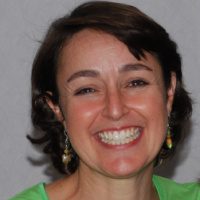
Julie Forsyth is currently the Chief Operating Officer for Partners for World Health (PWH). Before becoming COO, she served as Director of Operations. She has helped lead the dramatic growth within the organization over the past 5 years. Julie came to PWH with more than twenty eight years of experience developing, marketing, running and optimizing brands for a wide variety of organizations. Before joining PWH, Julie held a range of senior positions in traditional retail operations, strategic planning, management consulting, product development, marketing and e-commerce. She worked for internationally recognized companies including Macys, Price Waterhouse/Coopers, Talbots, Keds, Timberland, Coach and Burberry. In the non-profit sector, Julie is a former Executive Director of the YMCA/Darien Norwalk, and in Maine serves on the leadership council of Let’s Get Ready Maine and AVESTA Advancement Council. A Portland native, Julie lived “away” for 30 years, returning eight years ago with her family. She received her BA from Harvard and Radcliffe Colleges and her MBA from Boston University School of Management. Connect with Julie on LinkedIn.
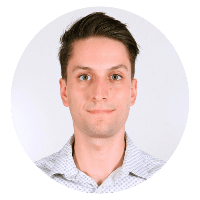
Wesley Mc Arthur is a Business Development Associate for Vector Global Logistics. He has been working in sales and business development for Vector for over two years. Connect with Wesley on LinkedIn.
